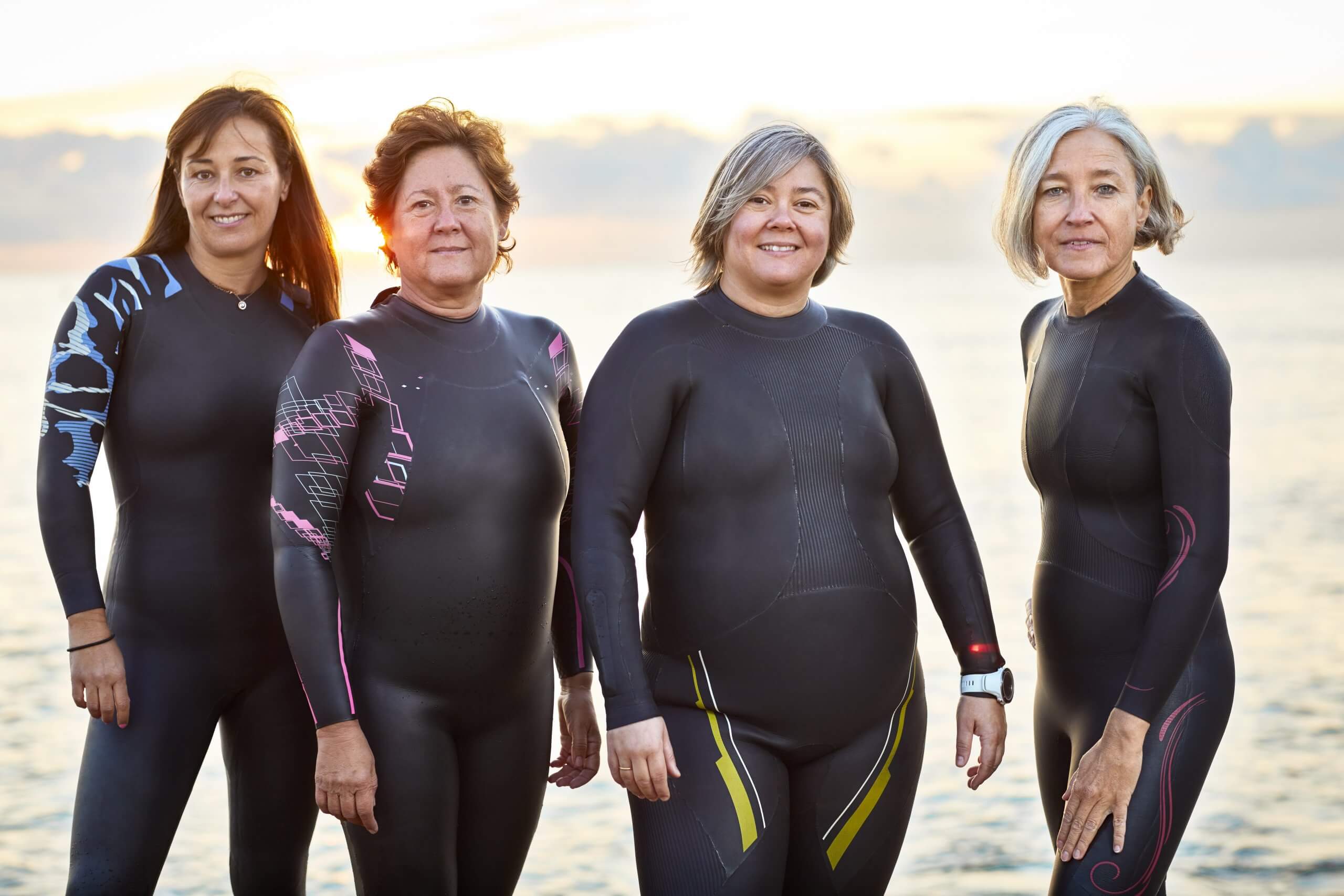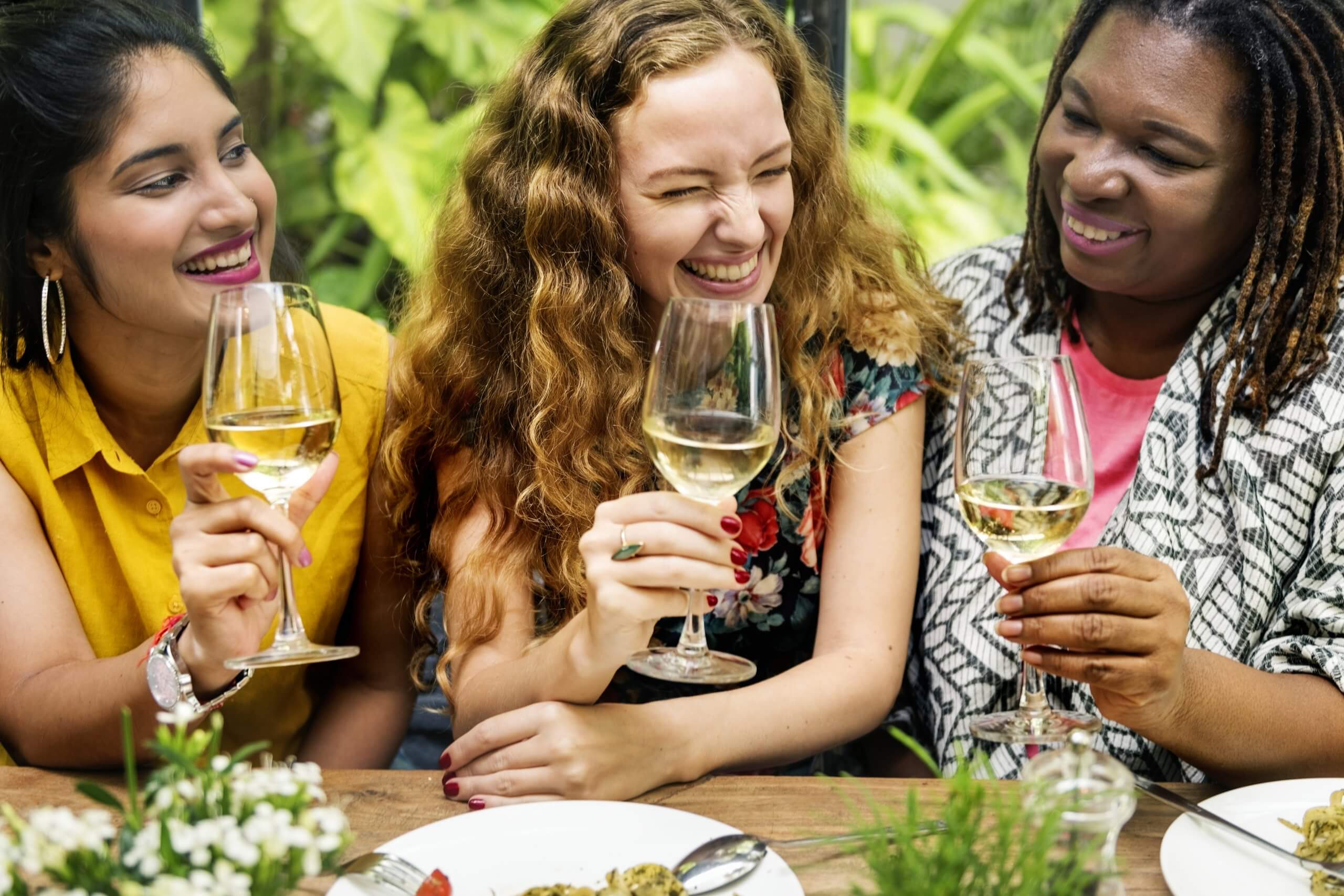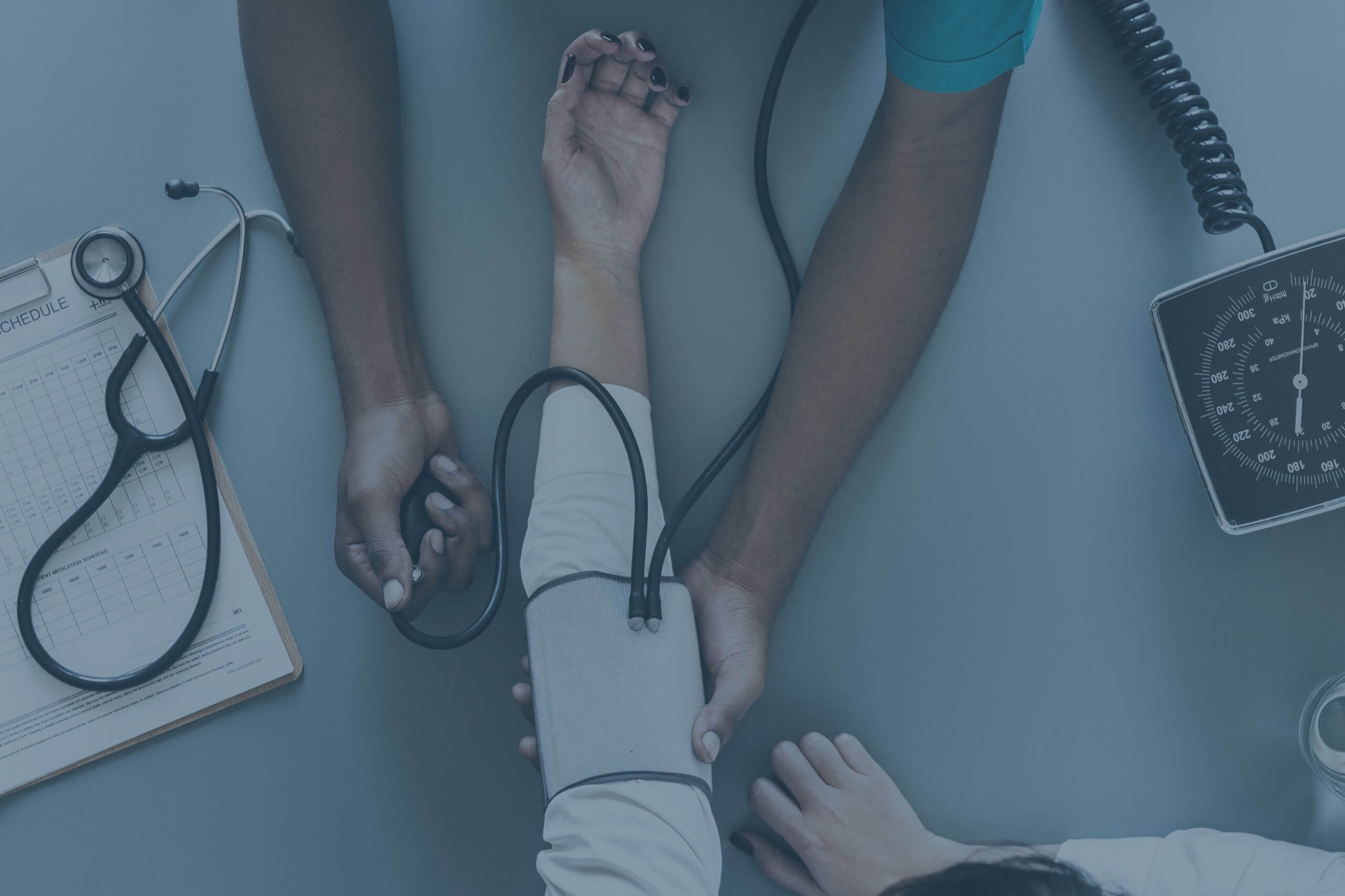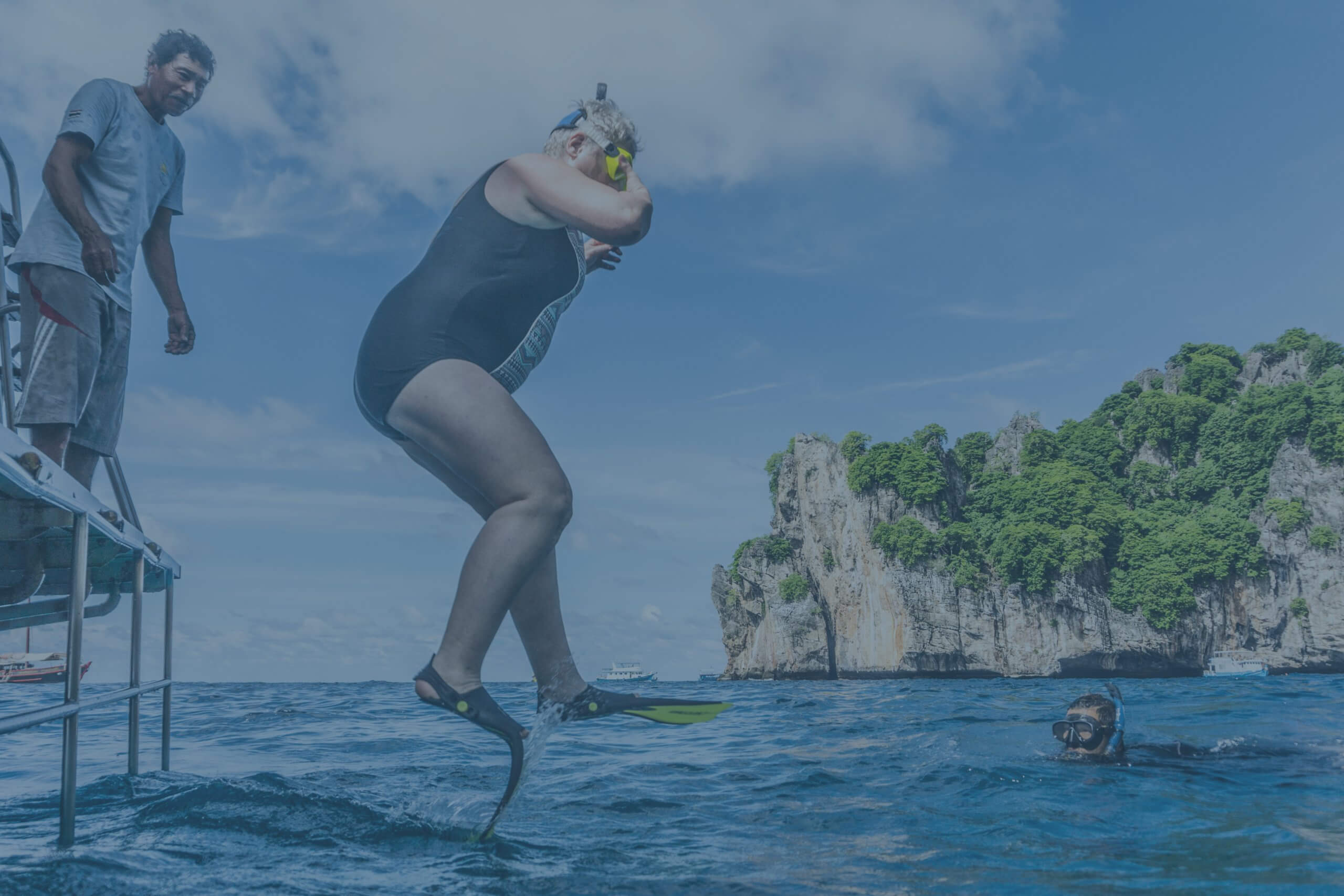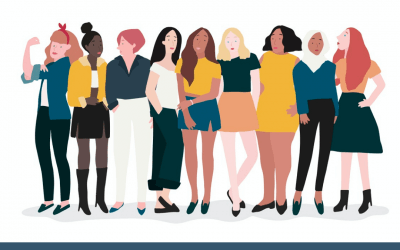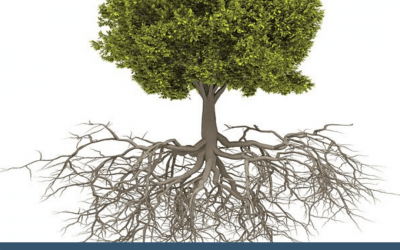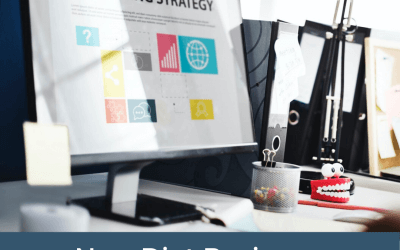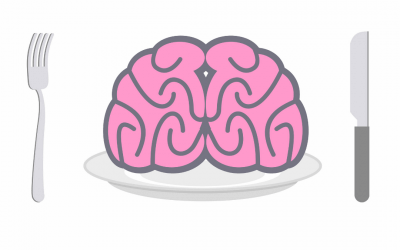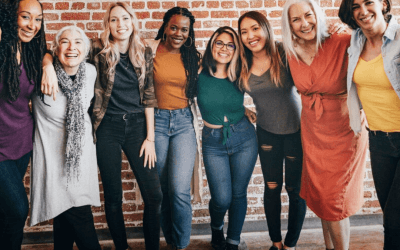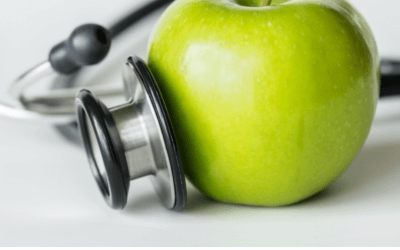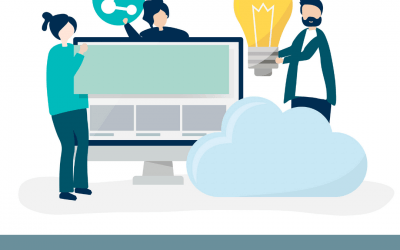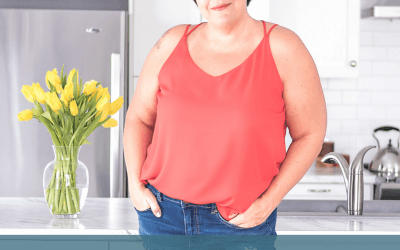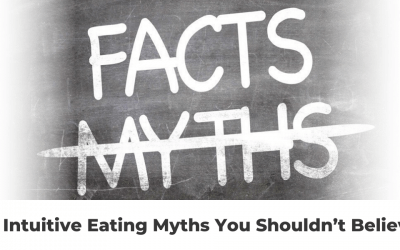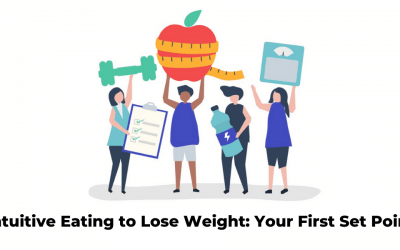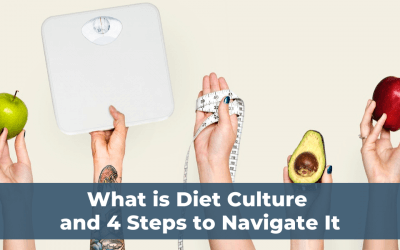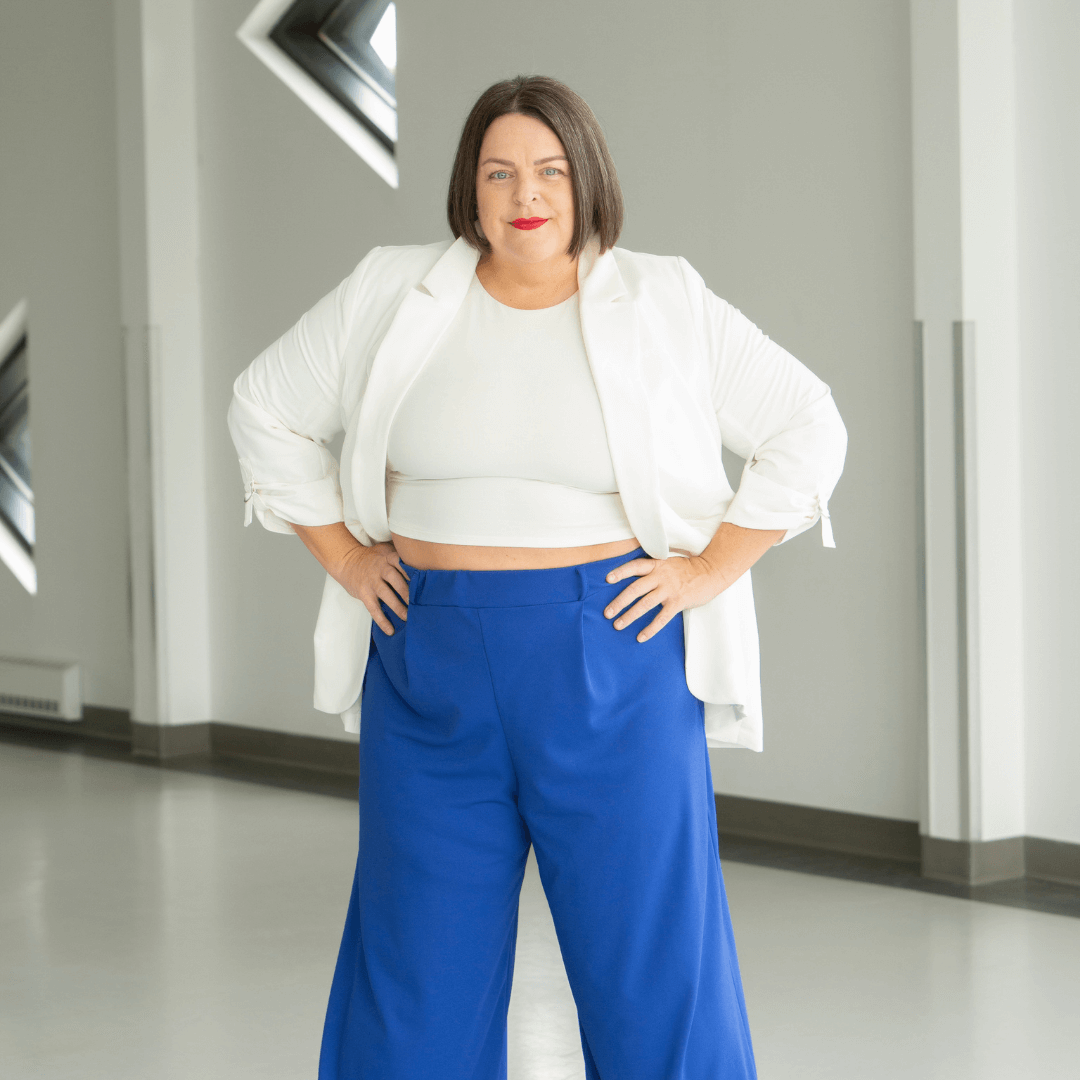
Welcome to
Beyond the Food Blog
A catalog of evidence-based articles written by Stephanie Dodier non-diet nutritionist, educator, and feminist business leader on all topics supporting the non-diet approach that will challenge everything you’ve been taught about food, health, and coaching.
Welcome to
Beyond the Food Blog
A catalog of evidence-based articles written by Stephanie Dodier Clinical Nutritionist on all topics supporting the non-diet approach to health.
Our Most Recent Articles
Feminism and Diet Culture
Statistics may vary to the exact % but one thing is clear: most women are dissatisfied with their body.
Research released by Dove, for their ‘Self-Esteem Project’, found that 96% of women in the UK reported feeling anxious about the way they look, compared with 86% in China, 72% in Brazil, and 61% in the US. Only 4% of the women in all the countries surveyed would consider themselves ‘beautiful’, and by the time girls reach 17, 78% will be ‘unhappy with their bodies’.
Women don’t diet because they enjoy dieting. Women who diet do it because they think they have to. These women think they are their body, thus, their bodies’ ability to meet the diet culture expectations define their worth.
Helping women leave and recover from diet culture is a feminist issue.
Why a non-diet approach for women?
The intersection between diet culture & women history
Women socialization to diet culture
Women internalization of diet culture
Non-diet Approach for women Professional Training
Non-diet Approach for women mentorship
If you would like to listen to the article in audio format the Going Beyond The Food Show – Pro Series Season 1 Episode 6
Links mentioned in the episode…
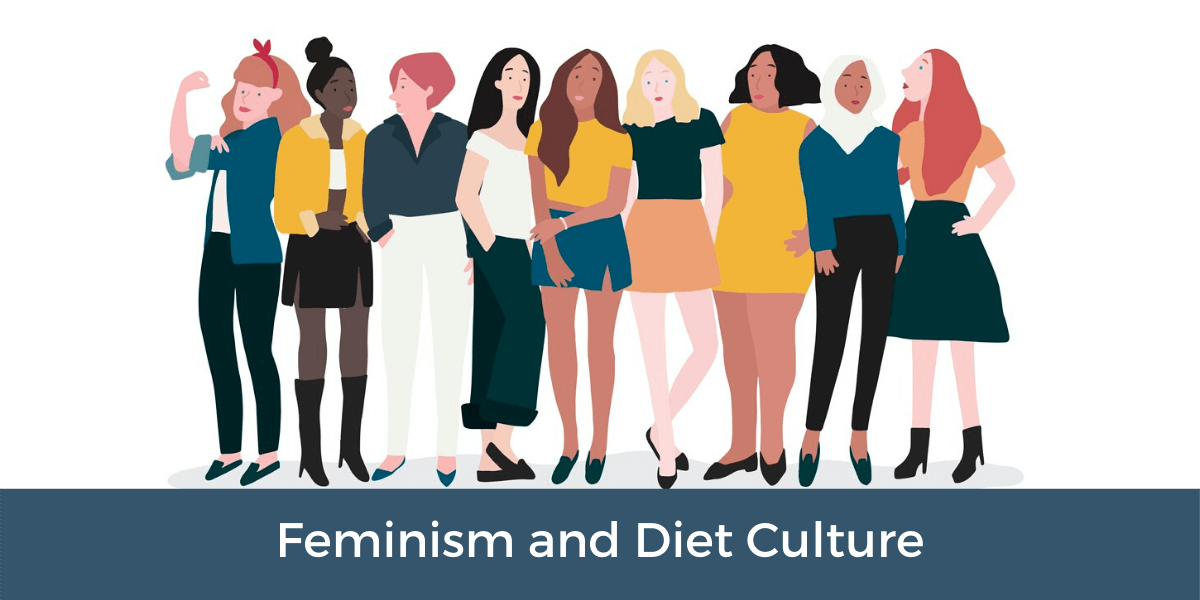
feminism and diet culture
Why a non-diet approach for women?
When women first seek to stop dieting, they think they need to “fix” their “food issue”. After years of dieting they’ve been told in many different ways that the issue was them, not the food. That if they could eat “normally” they would finally achieve their “normal body”. Sounds familiar?
It’s normal that your future client thinks like this… that’s all they’ve ever known. They’ve spent their life wondering why they struggle with food and if they could only “fix what’s wrong with them and food,” life would unlock their dreams.
The truth is: they have no issues with food. In fact, as we discovered in S1 EP 1 Intuitive eating Mentorship – First do no harm for us, as practitioners, to validate their thoughts about food and them being the issue can cause more harm. The way they engage with food now is the result of the restriction of dieting. Dieting is the issue not food. But why do your clients diet? As we’ve learned in the last episode: fatphobia: the fear of fatness.
A weight-neutral approach to health
The non-diet approach helps clients stop dieting, make peace with food and body image. It’s a weight-neutral approach to health that helps people reconnect to their innate power and become their own expert at their bodies.
Although the non-diet approach is gender-neutral, I believe that a segment of the healing approach should address the specific forces pulling at each gender/ sex: Cis-women, Cis-men, Trans, Genderqueer, non-binary, etc… I believe that each gender should have non-diet professionals that understand the specificities and struggle for each group for the best care.
The Going Beyond The Food Method™️ is for people that identify as women. I created this methodology based on my experience as a cis-woman over the last 45 years. As a person in a women’s body who has been exposed to the force of patriarchy and its attempt to control me as a woman and my body.
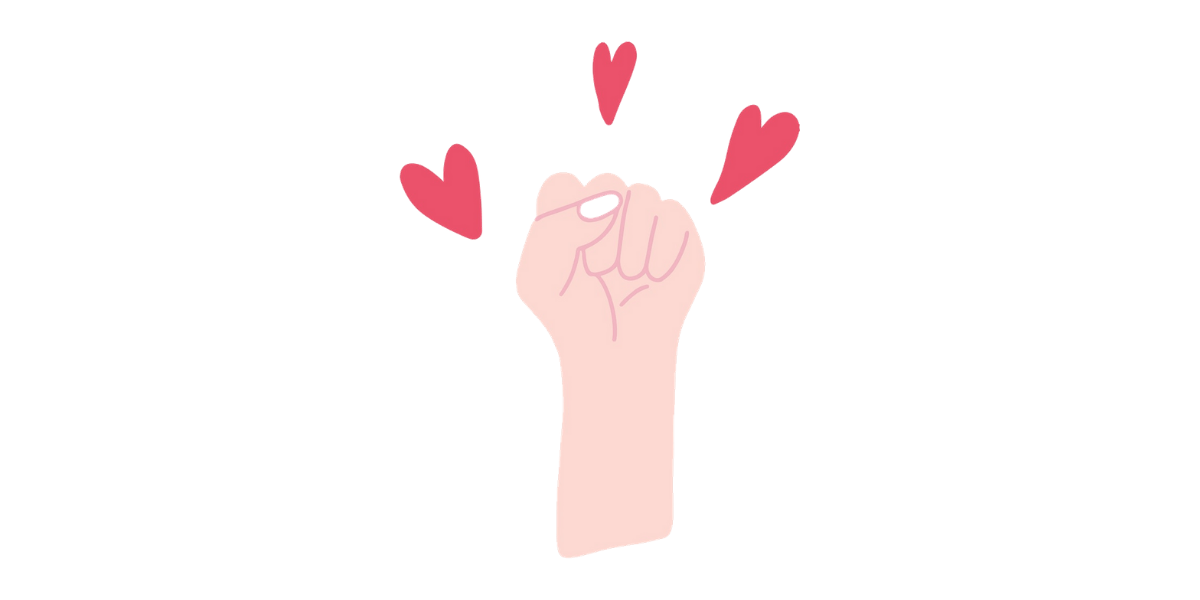
feminism and diet culture
Feminism & diet culture
First, let’s take a step back and understand patriarchy. Patriarchy is a social system in which men hold primary power and predominate in roles of political leadership, moral authority, social privilege, and control of properties. Patriarchy views men as dominant and women as submissive.
One of the many ways in which patriarchy attempts to dominate women is by exerted forces that dictate how women handle their bodies: reproduction, sexuality, beauty, and yes, body size and shape.
Most recently over the last 100 years, Diet Culture has become the cultural form of oppression on women’s bodies. Diet culture judges women’s worth based on their physical body size and looks. It assigns moral values to the ability of women to meet up with their standards.
The diet culture keeps women focusing on their bodies. Dieting keeps women distracted on food, exercise, and trying harder at restricting instead of using their innate resources to achieving much more important things in their life. Given that the tools proposed to women to achieve their “ideal body according to patriarchy” doesn’t work, it keeps women thinking they are the problem and not the diet. Women keep doubting themselves, their abilities, their capacities, and their obsession with trying to make up for what they are told are a personal failure to achieve the “good enough body”.
It is my belief as a health professional that women must understand why they “chase” a smaller body to their healing and recovery. For women, to truly liberate themselves from diet culture and its chain, they must know why society created it in the first place.
The intersection between diet culture & women history
If you look through history, their beauty or body didn’t always control women. Instead, their ability to procreate and religion controlled women. It’s not until recently that women’s bodies became the center of attention.
The mid 19th century
The feminist movement was beginning to form as women gain access to education. Women involved themselves in the abolition movement and women continued asking for their own political power. As women become more vocal and demanding more power, patriarchy responded with pressure on women’s bodies to be smaller.
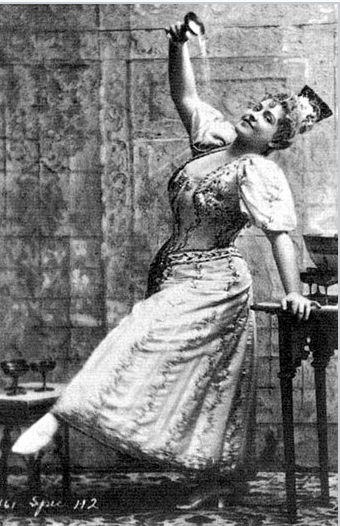
feminism and diet culture
The Gibson Girl
The Gibson Girl was born in 1880. This was the personification of the feminine ideal of physical attractiveness as portrayed by male artist Charles Dana Gibson. This body female ideal was heavily promoted and published via the new magazine and printing industry. So, ensure product advertisement ways to look like Gibson’s girl: beauty products, pills, cream, arsenic pills, etc…Diet culture was born. This period also introduced ready-made clothes and women needed to “fit” clothes when up to then clothes were made to fit women.
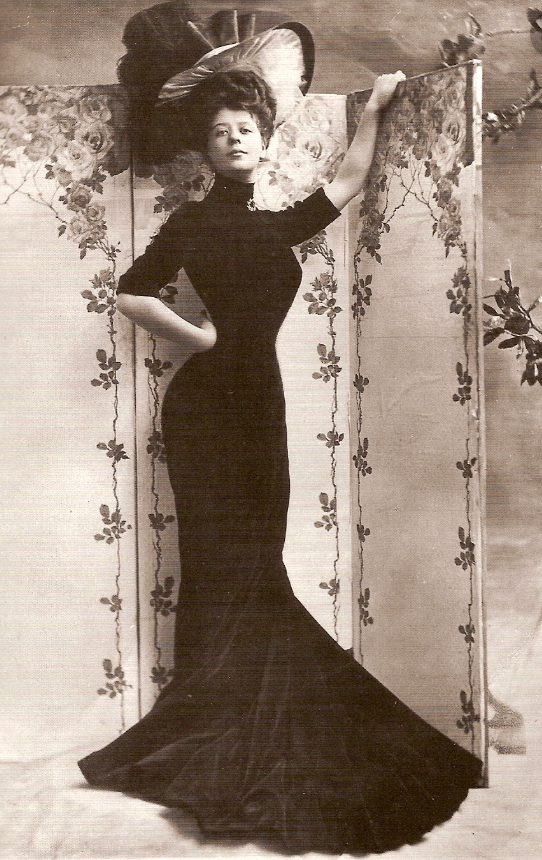
feminism and diet culture
The Flapper girl
As the suffragette movement began to gain the right to vote in many countries, the Flapper girl was born. Women became “liberated” from the Gibson girl corset only to find themselves binding their natural feminine curve into the linear look of the 1920’s. Thinness was a sign of “perceived freedom” for women. This solidified the diet culture.
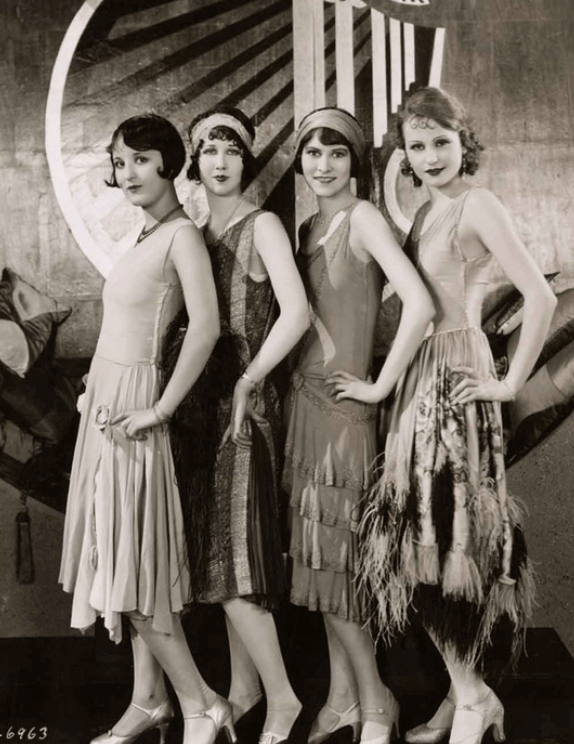
feminism and diet culture
Twiggy
With every gain in socio-economic power, women gained a smaller and smaller body ideal. Whereas the first-wave feminism in the early 90’s focused mainly on suffrage and political power, the second-wave feminism that began in the late 1960’s was focused on equality issues. That’s when Twiggy became the first supermodel; willowy, thin, adolescent physique.

feminism and diet culture
The 80’s
In the 80’s as women affirmed their new equality, came the low-calories, low-fat, and aerobic era with Jane Fonda as the leader. Calories counting began and this is when women became obsessed with dieting.
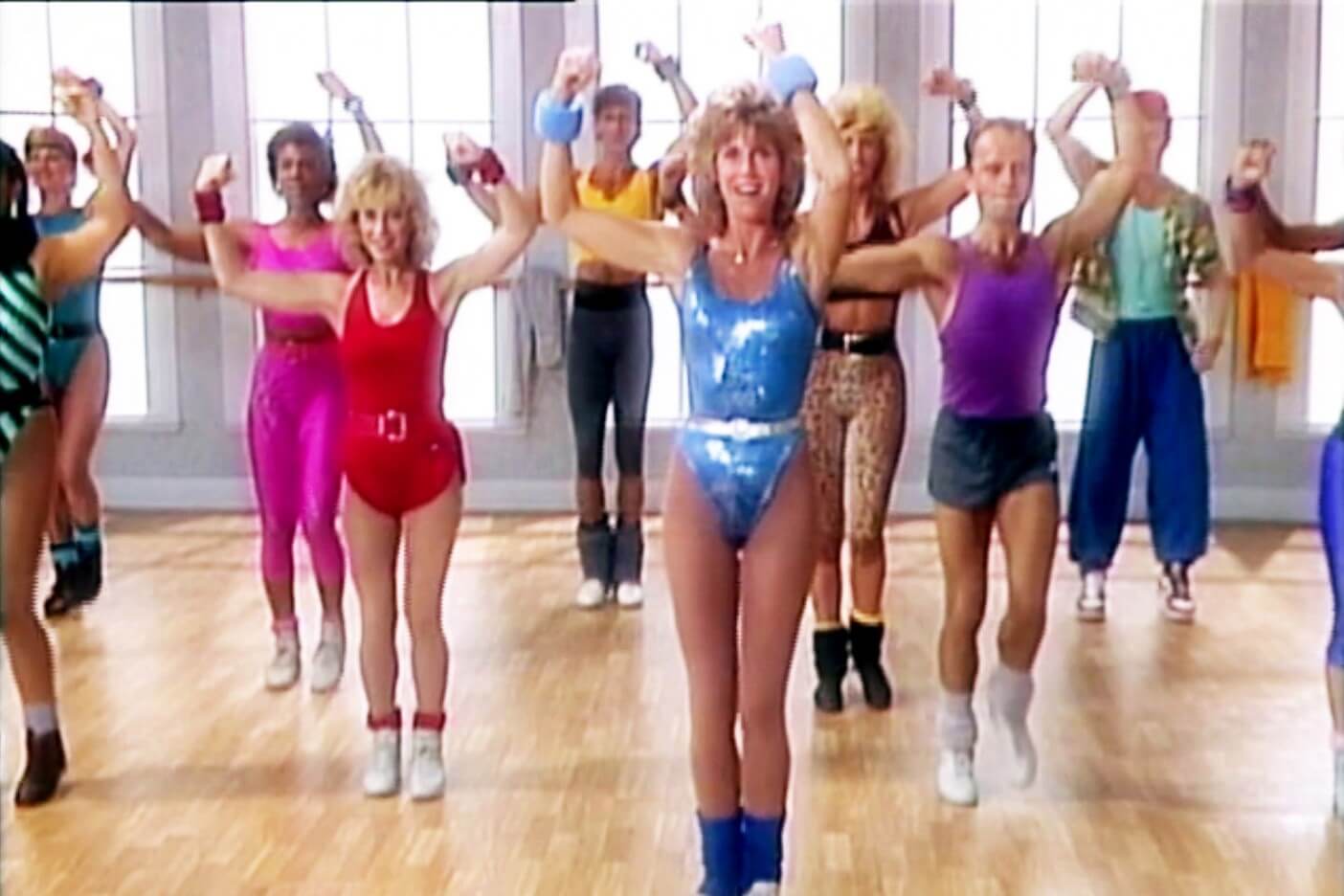
feminism and diet culture
And it continues up to today. The 90’s saw Kate Moss as the body ideal for all women. With an even smaller body than Twiggy, women’s ideal was body waifish, extremely thin described as “Heroin Chic”. The ’00s saw the Victoria Secret angels, and today we have the influencer healthy body ideal throne by the Kardashian.
“A culture fixated on female thinness is not an obsession about female beauty, but an obsession about female obedience. Dieting is the most potent political sedative in women’s history; a quietly mad population is a tractable one”
– Naomi Wolfe
Women socialization to diet culture
Socialization is the process of internalizing the norms and ideologies of society. It may lead to a desirable outcome and in certain aspects of life ensure our survival.
Socialization to diet culture and female body ideal happens at a very young for women. When were you gifted your first Barbie?
Among many societal behaviors, Their body, their beauty, and being a “good girl” defined women. Society conditioned women to please using their bodies. While society defined boys to be strong, intelligent, and non-emotional.
Most women who diet chronically today encountered their first diet in their early teens. They first observed their female caregiver being “dissatisfied” with their body and dieting. As these women entered their puberty and began awakening to being attractive, they engage with their first diet. Worse, some women experienced diet before the age of 10 as their parents wanted to prevent the “shame” of being in a non-conventional body.
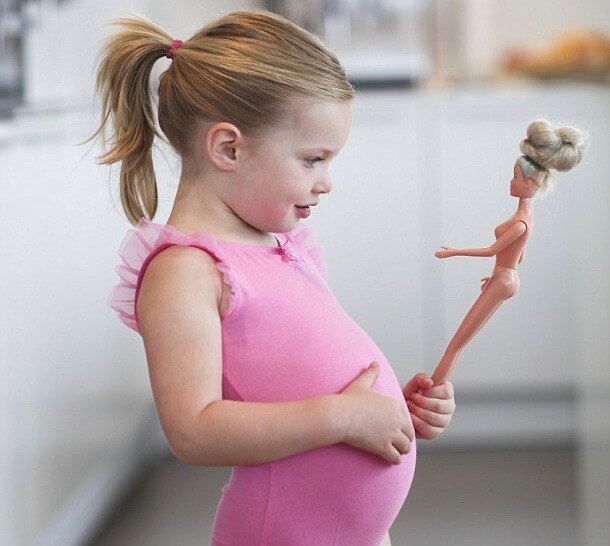
feminism and diet culture
Women internalization of diet culture
The process of internalization pertains to the person’s acceptance of a set of norms and values established by others and learned through socialization.
Women internalized diet culture in their teens leading to adulthood. This is when of having to please, as a woman, using among other things our body moves from outside of our own mind to being part of our own mind. At that point, diet culture has shaped who we are as a woman.
As we discussed in a previous article Non-diet Approach: Addressing the root cause, fatphobia is at the root as to why women diet. The process of diet culture internalization leads women to be fatphobic. They fear of being fat. They fear others judging their body as a fat body. It’s said that women fear weight gain more than illness.
Women’s fear of being in a non-confirming body is validated daily. Hundreds, if not thousands of times, marketing images and words, social media, conversation with other women, medical treatment, the beauty industry, etc… remind women that they should fear to be in a non-thin ideal body.
To cope with this constant pressure, women adapt. Diet Brain is a term I coined that best expresses how women adapt to diet culture socialization and internalization. To adapt, women become people-pleasers, we expect perfection for ourselves in the hope to offset our inability to be in a confirming body ideal. While the solution to achieve this thin ideal, “dieting” has a 91-95% failure rate, we blame ourselves for it not working so we adopt an “All or nothing” mindset when it comes to food and health.
This adaptation process is unique to people identifying as women and is the reason why Non-Diet Coaching Certification is essential for health professionals helping women recover from diet culture.
“Your dislike of yourself is a side effect of the POISON you are being fed. None of this messaging is real. Your inner bully has learned the lies society fed it, and is giving you fake news about your looks, your value, your worth, your right to be happy. I’m so sorry you have to deal with this crap. Diet Culture is just making you hate yourself for a profit”
– Naomie Wolfe
Dieting is a feminist issue
Opting out of diet culture as a woman is more than simply stopping dieting. It’s a feminist act. When we stop buying into the diet culture definition of what being a woman is, we reclaim our power back. We say no to being our bodies. We say yes to trusting and respecting ourselves first.
Helping women recover from the diet culture must include the education to how we got to be where we are today as women. That we were capable to feed ourselves, to care for ourselves, and to be more than our bodies. The socialization and internalization of diet culture are what created the beliefs that lead us to dieting and trying to fit in using our own body against ourselves.
One of the paths to reclaim our power from the diet culture can be with intuitive eating. Using our source of shame, that is food, can actually rebuild a relationship of trust and respect towards our own selves. As we reconnect to our innate body wisdom, we get to witness the power that is within us.
As we build confidence in our innate capacity to feed ourselves, we can continue to use diet culture source of shame to regain our power as women. Healing our body image and crafting a new way to be in our human body shell is not only necessary but very empowering.
“If your self-esteem is dependent on external result, you have given all your happiness and agency away. It’s an exhausting, and powerless way to live.”
Women empowerment
Individual autonomy is this idea that refers to the capacity to be one’s own person, to live one’s life according to reasons and motives as one’s own and not the product of manipulative or distorting external forces.
Leaving the jail of diet culture is a revolutionary act for women to not only be autonomous but to claim their power back from a patriarchal society that suppressed our empowerment.
In today’s society, the greatest punishment is to take away people’s autonomy and freedom by sending them to jail. Diet culture has taken women’s autonomy and freedom. Diet culture robs women of the capacity to be in their now body, to feed themselves naturally, to wear clothes they desire, to decide their own beauty standards, etc…
Helping women recover from diet culture is truly about empowering women to live their full life today… unconditionally. Choosing to accept your body is hard but doing hard “things” is what builds confidence in women… not body size. Saying ‘no’ to outside control and ‘yes’ to inner power is what builds self-esteem in women, not beauty.
Non-diet Approach for women Training
The non-diet approach is the exact opposite of dieting. It’s a weight-neutral approach to health and nutrition that empowers women to become the expert of their own body. That shifts women from being their body to supporting their body so they can live their full life… right now!
The Going Beyond The Food Method™️ is our proprietary methodology that helps women to recover from diet culture and learn the non-diet way of life. Firstly, our 4 pillars are Body Wisdom, Body Trust, Body Respect, and Body Neutrality. Secondly, our framework is composed of 5 steps process: Intuitive Eating, Body Neutrality, Self-Coaching, Emotional Intelligence, and Mindfulness.
You can learn and transform your life with the Going Beyond The Food Method with our two signature program.
Undiet Your Life Program was created for women to learn self-coaching, a powerful mindset self-coaching tool to unlearn diet culture & patriarchy socialization along side with Intuitive Eating and Body Neutrality.
Non-Diet Coaching Certification was created for providers and coaches wanting to deliver the Non-Diet Approach in their practice following the Going Beyond The Food Method.
Want to know if the Non-Diet Approach and The Going Beyond The Food Method can be of support to you? Get my starter pack and complete the three assessment: eating, body image and mindset.
You can also listen to our non-diet podcast.
Non-Diet Approach Certification program
The Going Beyond The Food non-diet coaching certification program is a space where you can receive support guidance to become the best non-diet professional. It’s a program that will refine your non-diet professional skills set to empower women and teach you the skills you need to build a successful business that can impact thousands of women.
It helps you develop as a powerful leader and help other women come back to their power. You learn how to harness your ability to support and help other women. As a result, you can impact thousands of other women and dismantle diet culture.
The Non-Diet Approach: What is it exactly?
But is the non-diet approach addressing the real root cause?
In the first three years of clinical practice, I thought I was addressing the root cause of my patient health concerns. I was asking a lot of questions and doing an in-depth assessment. My goal was uncovering the “real issue” that no other health professional had identified yet. This unidentified root cause was, as per my training in functional medicine, the reason why my clients were “still struggling”.
As I shared in Intuitive eating Mentorship – First do no harm although my patient had short term reliefs…. long term, their health wasn’t better. In fact, in many cases, it was worse.
So, was I really addressing the “real root cause”?
Why healing the root cause is so important
The Non-diet Approach Professional Training
If you would like to listen to the article in audio format the Going Beyond The Food Show – Pro Series Season 1 Episode 5
Links mentioned in the episode…
Non-Diet Coaching Certification Program
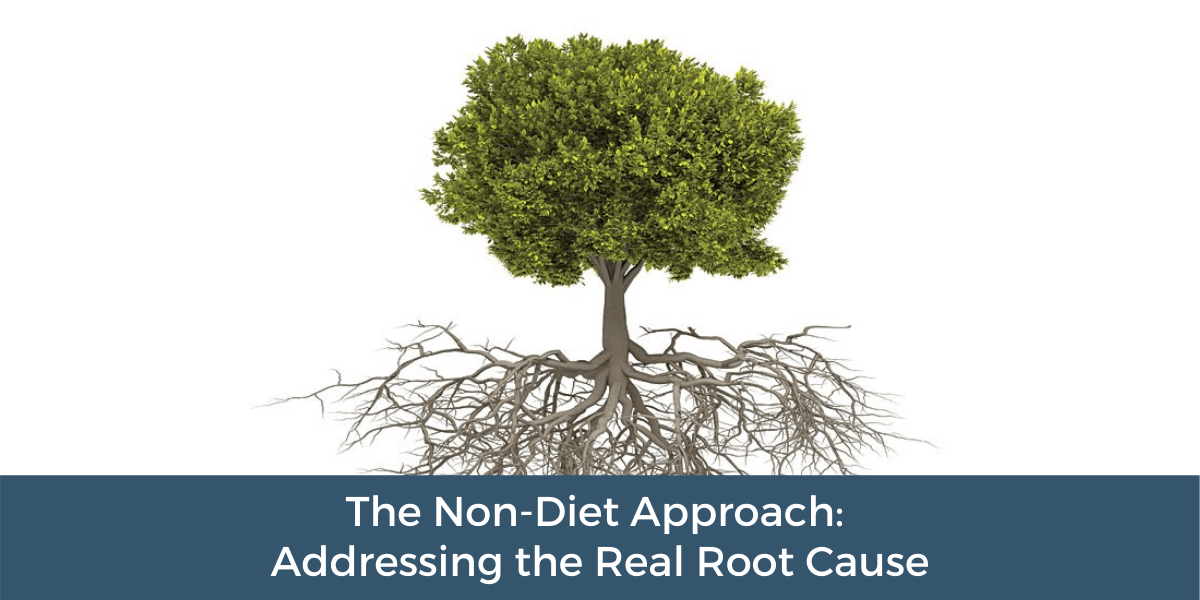
What’s the root cause?
In my training in holistic health & functional medicine, we are trained on addressing the underlying or root cause of chronic disease, taking into account the whole person including their environment, genetics, and lifestyle factors. Addressing the root cause is a fundamental philosophy, and honestly, the pride of alternative health approaches: resolving the root cause vs. just dealing with side effects.
Even beyond the health sector, the root cause is the cause of a problem. If adequately addressed, it will prevent a recurrence of that problem. By asking the question “why” a few times, the root cause of a problem is often identified as a procedural, or management, shortcoming.
For example, imagine you have a lot of weed growing in your lawn. If you remove the weed using a lawnmower, will that solve the problem? Temporarily, yes. Visually, your lawn looks good. However, you probably know that this is only at the surface level. After a short period of time, the weed will grow back. So, how do you fix this long term? If you replied “By removing the weed from the root,” then you are totally right!
As a nutritionist, people came to me to change their eating habits or to address health issues that they thought were caused by food. However, my training had taught me that the root cause was in the: what, when and how they ate.
What I couldn’t understand was why it wasn’t working? Why were my clients not able to adhere to the in-depth protocols? Why were they disappearing after a few sessions? And why, when I would see them a year or two down the road, they had reverted back to their old habits?
Why healing the root cause is so important
If I was healing the root cause, then this shouldn’t be happening. I knew this from my training. So, I started to research and quickly realize I wasn’t addressing the “real root cause” but still just the “ side effects”.
It’s understandable why we are inclined to deal with effects instead of the root cause. Effects are what’s most immediately observable, so it’s easy to act on them. Think here “size of body”. Upon doing so, you see an instantaneous change — an impression that you have progressed in your goals. When you go on a diet, you lose a small amount of weight immediately. That’s until the diet stopped working and you regain all the weight (most often more than the original amount of weight loss).
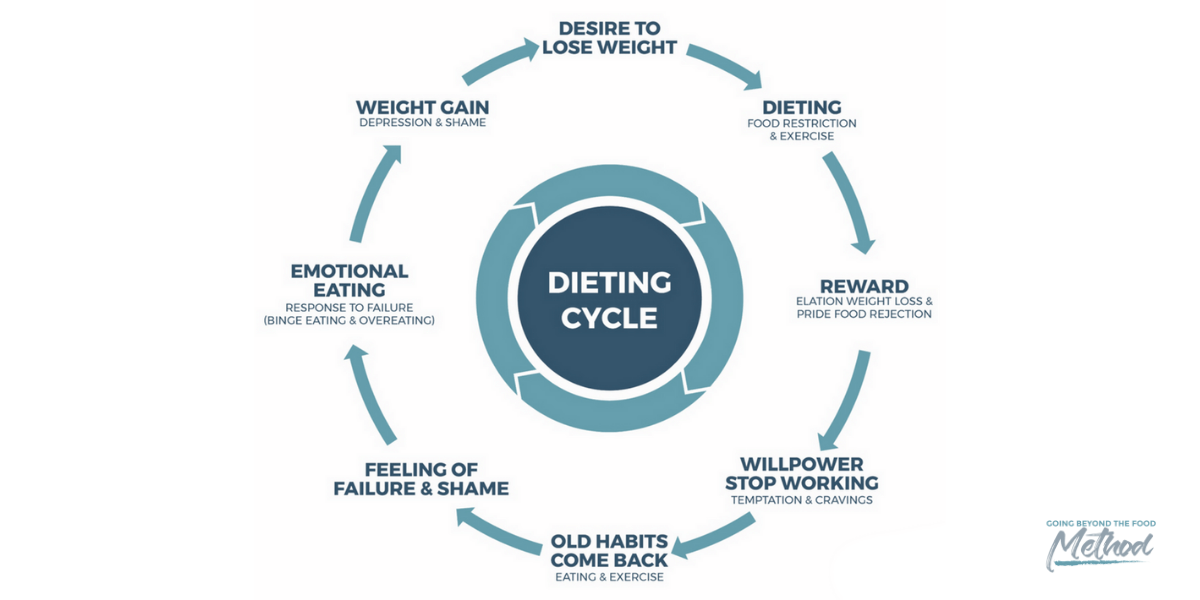
On the other hand, trying to uncover the root causes can be tedious, complicated, and at times, scary. Sometimes, to the extent where people run away when they realize the root cause problems that are underneath. Subsequently, addressing these root causes often requires a change of thinking and some pain and effort, but the results will be much permanent and higher-value than correcting side effects (symptoms as known in health).
As we touched in our S1 EP3 podcast episode Diet mindset professional training, we unpack how our certain traits of character are the results of dieting.
Here are just some of the real root causes:
- Perfectionism (Effect): Need to have “perfect” diet (Effect): Diet Cycle (Effect): Desire to lose weight (Effect): Body Dissatisfaction (Effect): beliefs about what body should look like (Cause): fatphobia/weight stigma (Cause)
- Low self-confidence (Effect): Need to lose weight (Effect): Perfectionist Body Fantasy(Effect): beliefs about what body should look like (Effect): fatphobia/weight stigma (Cause)
- Binge eating (Effect): food restriction (Effect): Dieting to lose weight (Effect) : fatphobia/weight stigma (Cause)
The root cause wasn’t in the what, when, and how they ate. It was in the why. In my first few years of practice, I stopped asking why too early in my investigation process. Even when I asked “Why do you eat like this?” “Why do you want to lose weight?”…I was blinded by my own fatphobia.
Fatphobia
Fatphobia is the fear and dislike of obese “fat” people and/or “obesity”. I was fatphobic and was profoundly afraid of gaining weight. In fact, I was professionally trained to believe that “fat” was the root cause of most chronic conditions. I was taught that everyone should be or want to be at a “normal BMI”.
Hence, I had to confront my own and discover the truth about body weight, BMI & health to be able to ask the right question with my patient and for my own recovery from diet culture.
Not only was my own fatphobia preventing from being the best health professional I knew I could be, but it also was keeping from accessing my best health. Fatphobia in research is also described as weight stigma. Research recognizes two forms of weight stigma:
Experienced weight stigma
This occurs when people observe or believe that others have made unfair negative assumptions about them or discriminate based on nothing more than their weight or body image.
Internalized weight stigma
This is the process by which people accept weight-based stereotypes and make them true about themselves. People who have internalized weight stigma are the harshest critic of themselves. They have come to believe that they are “less-than” because of their weight/ body image.
Research is pointing out that internalized weight stigma has the greatest impact on physical and mental health over experienced weight stigma.
“Some people fear that if people feel too good about their bodies and themselves, they will not be motivated to engage in healthful eating behaviors and physical activity. Studies show the exact opposite to be true: When people internalize weight stigma and feel bad about themselves because of their weight, they feel less confident in their ability to engage in healthful behaviors and are more prone to binge eating, avoiding physical activity, and other behaviors that contribute to weight gain.”
– Rebecca Pearl, PhD, an assistant professor of psychology at Perelman School of Medicine at the University of Pennsylvania in Philadelphia.
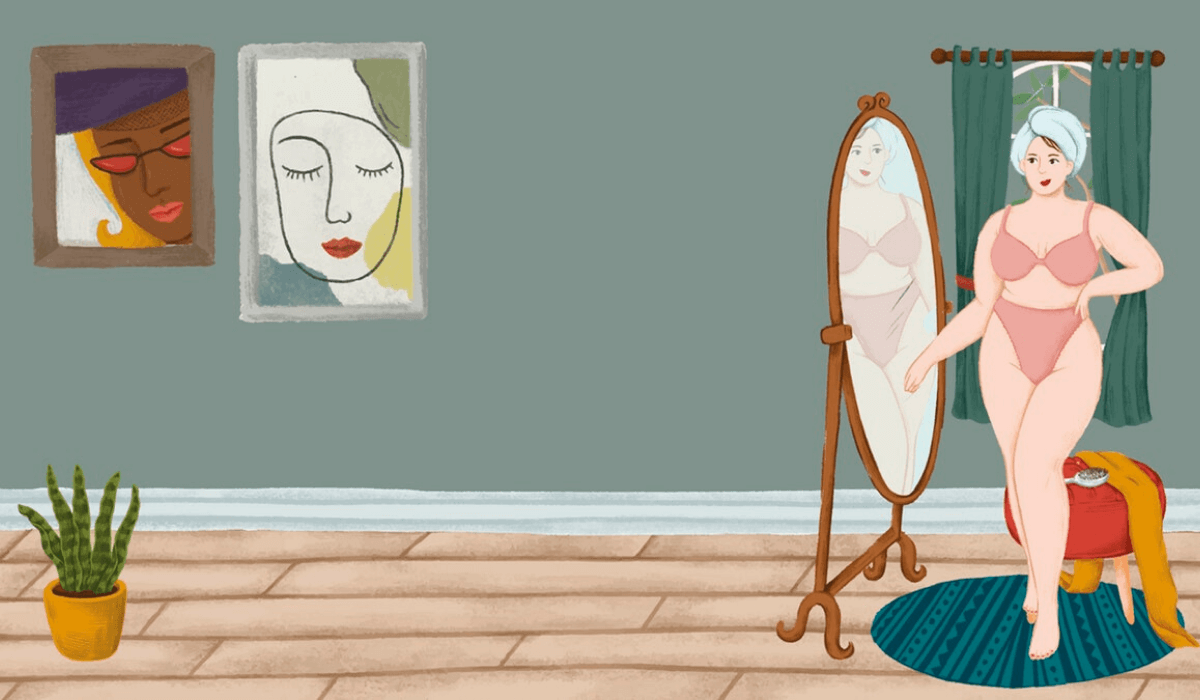
Weight stigma is the REAL root cause
Weight stigma is the negative attitudes and beliefs about people because of their weight. It leads to the labeling of people with stereotypes based on their weight. Unfortunately, it’s a common belief that weight stigma will motivate people who don’t meet body size ideals to change their behaviors, in order to avoid further stigma.
Weight stigma originated from the “old school” model of behavior changes through punishment or shaming. A great example of this today is the “before and after” picture we see so frequently on social media. They are unfortunately used by many health professionals.
Weight stigma is a centric element of diet culture. In fact, research has demonstrated that diet culture helps frame a larger body as a “health hazard”. I like to explain it to my students as the “goon” of diet culture. Without it, diet culture may stop existing.
Weight stigma has been researched extensively over the last 20 years. What research overwhelmingly shows is that weight stigma doesn’t encourage people to lose weight or improve their health. Instead, stigma leads to a greater risk of depression, poor body image, and self-esteem. It also leads to increased stress, disordered eating behaviors, and avoidance of physical activity.
Weight stigma has also been linked to many common health problems that were first associated with “obesity”. Is “obesity” or the stigma associated with “obesity” the true culprit? As you can imagine, experts and researchers are divided on this question. Since we acknowledge that weight stigma is causing the health issue, then diet culture will need to be condoned publicly… can you see the issue?
You can read more Cyclic Obesity Weight Based Stigma Model.
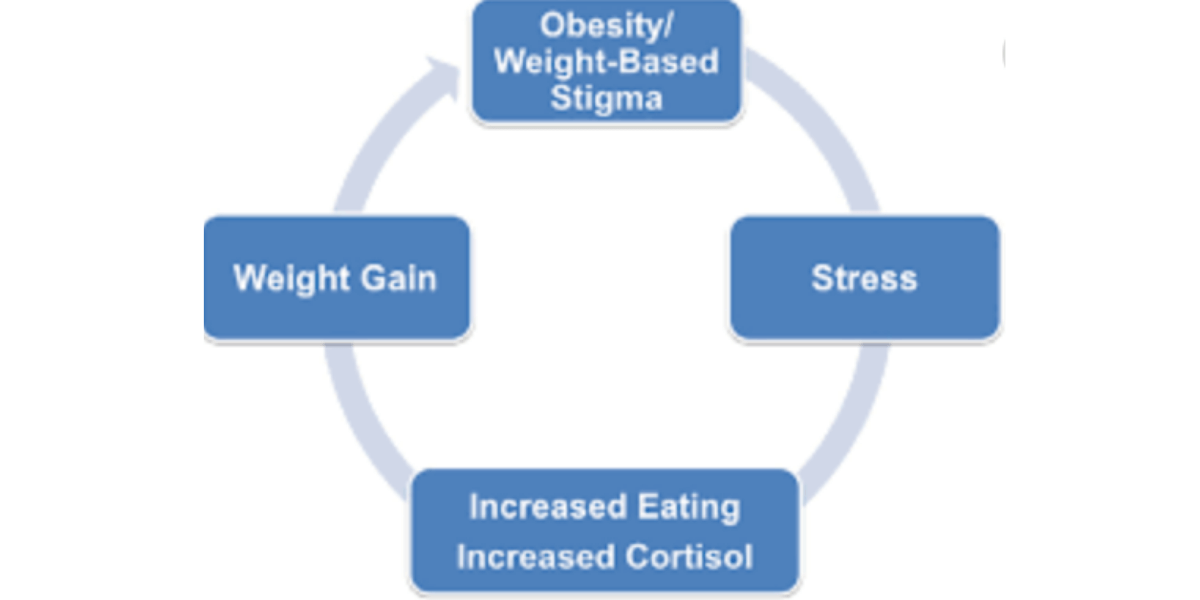
The Solution: Body Image healing
The only way to address the real root cause is to include body image healing in your practice/ program.
Making peace with my own body and healing my own body image was the path to releasing my own fatphobia. Doing so unlock my ability to end weight stigmatization in my own practice.
What most health professional doesn’t realize is that our individual body image is not only how we see ourselves when we look in the mirror. It’s also multidimensional. It encompasses:
- Perceptual body image: how you see your body
- Affective body image: how you feel about your body
- Cognitive body image: how you think about your body
- Behavioral body image: the way we behave as a result of our perceptual, affective, and cognitive body image.
Research is showing that a distorted body image leads to lower self-esteem, distorted relationship to food, depression, anxiety, hormonal disruption, and many other side effects. Many of our clients and patients come to see us for this in the first place.
Thomas F. Cash, PhD, is a true pioneer in the psychology of physical appearance research. He also developed today’s most effective treatment approach to body image issues, as well as many of the measures used in body-image research. Likewise, the body image healing cognitive-behavioral model is at the center of our proprietary non-diet approach, The Going Beyond The Food Method™️ .
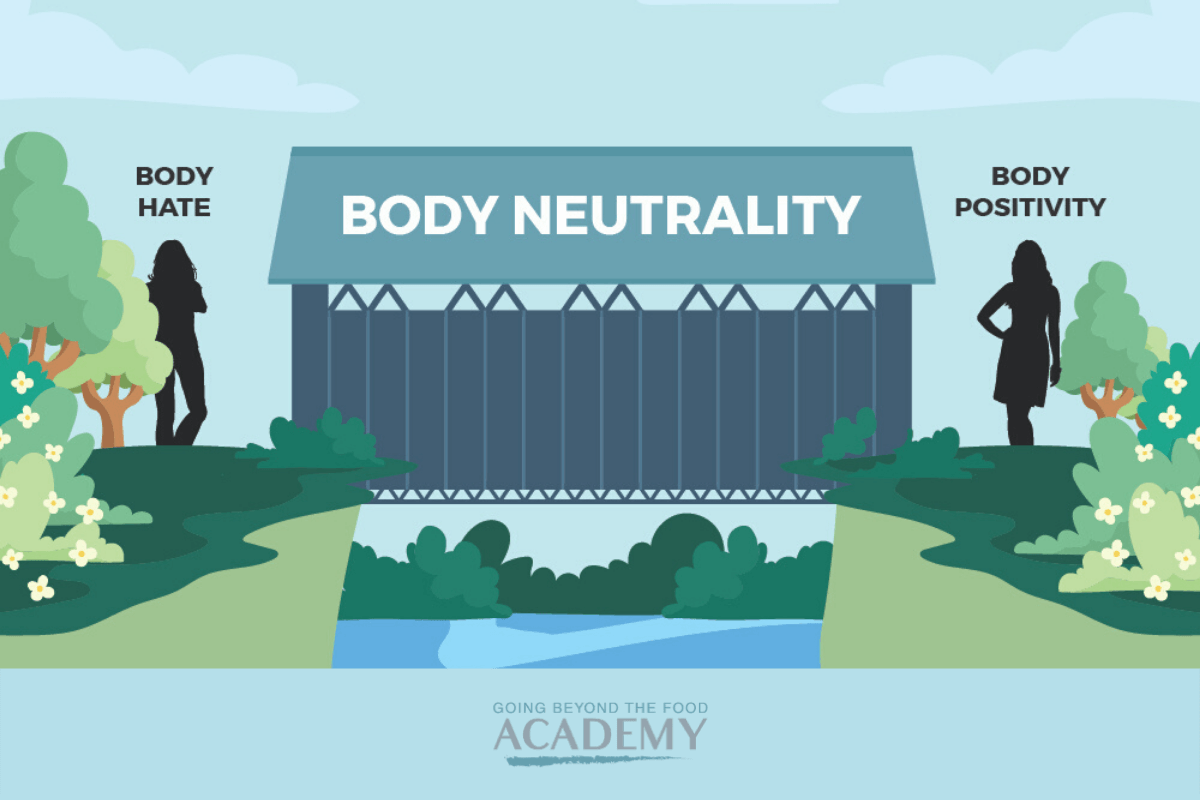
Body Neutrality
In our non-diet clinical approach, we teach our clients the body neutrality framework and not body positivity. It includes body image professional training, the body neutrality framework.
Body Neutrality empowers women to embrace themselves as they are, including the parts they don’t like about themselves. Its focus is to avoid self-hate while simultaneously relieving from the pressure of having to love their body. Most importantly, the goal is to respect and accept your body for what it is – and that’s it.
Body Neutrality is the middle ground between positivity and negativity (shaming). Embracing body neutrality over body positivity allows our clients to experience negative feelings about their bodies, but without the pressure that comes with having to be positive all the time.
Body Neutrality helps women detach their self-worth from their bodies (good or bad). It’s about crafting a relationship of functionality with our bodies and engaging with it from a place of self-care instead of control.
Health can be weight-neutral
The World Health Organization defines health as “a complete state of physical, emotional, and social well-being, not merely the absence of disease or infirmity.” A weight-neutral approach to health is based on the idea that your health status or risk level can’t be determined solely by your weight.
It acknowledges that your weight is determined by a complex set of genetic, metabolic, physiological, cultural, social, and behavioral determinants. Many of these factors are either difficult or impossible to change.
Instead of focusing on a weight-oriented outcome, weight-neutral programs teach you to take charge of the factors within your control. These factors include your thoughts and behaviors. In short, taking charge of these factors will help you improve your well-being, regardless of your weight.
Weight-neutral approaches to health like the non-diet approach have significantly decreased body dissatisfaction, disordered eating, and depression. They’ve also increased sustainable, enjoyable self-care behaviors such as eating and moving well in the long term.
A 2013 study by the Journal of Obesity found no link between body weight and the way we feel about ourselves. Yet, the findings show a link between how we feel about ourselves and the healthy activities we engage in. Meaning, the better we feel about our bodies the more likely we are to take care of them by eating well and being active, allowing us to create a positive cycle. Likewise, dissatisfaction with our bodies can discourage us from taking part in certain activities, eating properly to fuel our bodies and can eventually lead to weight gain.
The non-diet approach
The non-diet approach to health and nutrition recognizes that weight stigma is a contributor to one’s health. As professionals, we must address how our clients and patients relate to their body as the root cause before we can effectively address the effects ( eating and health habits).
The non-diet approach to health is the exact opposite of dieting. It’s a weight-neutral approach to health that instead focuses on a weight-oriented outcome. This approach focused on all the other factors that can impact one’s health beyond body weight. In other words, the ultimate goal is to support the patients to become their own experts at their bodies.
The Going Beyond The Food Method™️ is our proprietary methodology that helps women to recover from diet culture and learn the non-diet way of life. Firstly, our 4 pillars are Body Wisdom, Body Trust, Body Respect, and Body Neutrality. Secondly, our framework is composed of 5 steps process: Intuitive eating, Body Neutrality, Self-Coaching, Emotional Intelligence, and Mindfulness.
The non-diet approach professional training center
We have created a number of free non-diet approach training resources to help you begin learning more about this revolutionary health approach. Join my non-diet professional community by requesting our non-diet client assessment tools
You can also listen to our non-diet podcast.
You can access non-diet approach training here
The non-diet coaching certification program
The Going Beyond The Food non-diet coaching certification program is a space where you can receive support guidance to become the best non-diet professional. It’s a program geared to refine your non-diet professional skills set and teach you the skills you need to build a successful business that can impact thousands of women.
It will help you develop as a powerful leader and help other women come back to their power. You will learn how to harness your ability to support and help other women. As a result, you can impact thousands of other women and dismantle diet culture.
Ready to get started with the Non-Diet Approach?
You can access all of our services on our work with us page. We have a number of programs and service levels enabling us to serve most women:
Free Resources and Masterclasses: Get started and get to know us better!
Private coaching with Stephanie and her team Stephanie and her team of Certified Non-Diet Coaches are waiting to support you in a one-to-one setting with an individualized plan.
Undiet Your Life group coaching program is for women to learn how to eat intuitively, become body neutral, and learn self-coaching at their own pace while being supported in a group setting by Stephanie and her team of Certified Non-Diet Coaches.
Non-Diet Coaching Certification for professionals ready to integrate the Going Beyond The Food Method™️ in their practice and for women wanting to become Certified Coach and build a business coaching other women beyond the food.
Non-Diet Business Coaching & Marketing
Any non-diet business coaching must include a segment on non-diet marketing.
For many, the words marketing is “yucky” or even “salesy”. Many of my new intuitive eating business students at first will tell me “I hate that part of my job”. Is that you, too?
If you are a health professional and have a private practice, then marketing is a vital part of your business. This is even more relevant for non-diet approach health practice.
To help you fall in love with marketing so that you can thrive in your business, this article will discuss…
Understand the non-diet business coaching framework
The best non-diet marketing strategy
3 pillars of non-diet marketing
If you would like to listen to the article in audio format the Going Beyond The Food Show – Pro Series Season 1 Episode 4
Links mentioned in the episode…
Non-Diet Certification Program
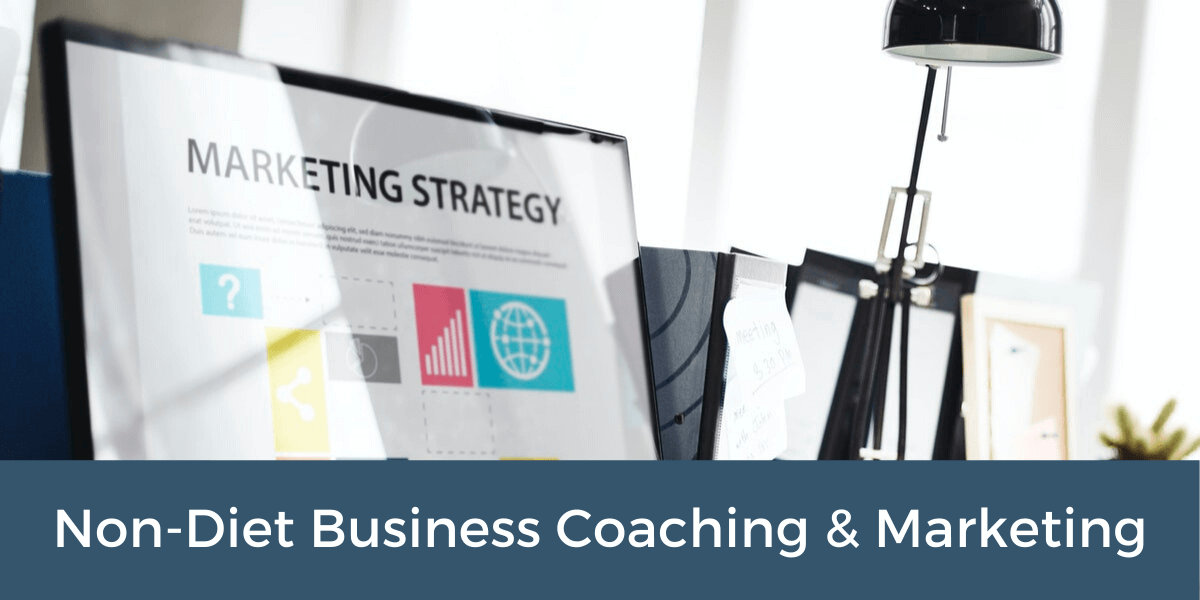
Understand the Non-Diet Business Coaching Framework
Let’s lay down the groundwork first about the non-diet approach before we get into the marketing aspect.
The non-diet approach to health is the exact opposite of dieting. It’s a weight-neutral approach to health that instead of focusing on a weight-oriented outcome. This approach focused on all the other factors that can impact one’s health beyond body weight. In other words, the ultimate goal is to support the patients to become their own experts at their bodies.
The Going Beyond The Food Method™️ is our proprietary methodology that helps women to recovery from diet culture and learns the non-diet way of life. Firstly, our 4 pillars are Body Wisdom, Body Trust, Body Respect, and Body Neutrality. Secondly, our framework is composed of 5 steps process: Intuitive eating, Body Neutrality, Self-Coaching, Emotional Intelligence, and Mindfulness.
The non-diet business coaching framework teaches women health practitioners on how to build successful non-diet businesses. I share the basics of this framework in the first two podcast episodes of the Going Beyond The Food Show Non-Diet PRO. The Intuitive eating Mentorship episode and Intuitive eating Business episode.
Marketing to our future client can appear to be challenging at first. as I argued in my article Diet mindset professional training, our future clients have been used and abused by diet culture and have a very low tolerance to traditional fear-based marketing tactics. Hence, non-diet marketing should be based on love, education, and nurturing. We help people build and grow a profitable anti-diet business that makes good money inside the Good Money Mastermind
The Best Non-Diet Marketing Strategy
Marketing is the art of making change happen.
The success of non-diet marketing resides in the overall non-diet business strategy you have created for your business. So, let me repeat this very important point again: a marketing strategy is part of this overall business strategy. Do you have one of these?
An effective non-diet marketing strategy will help tell a compelling story about your offer/product in a way that will help your niche market (future client/patient) connect to your offer/product with a strong desire to commit (purchase). As a result, the commitment of resources leads to transformation for your client and equal sales and revenue in your business.
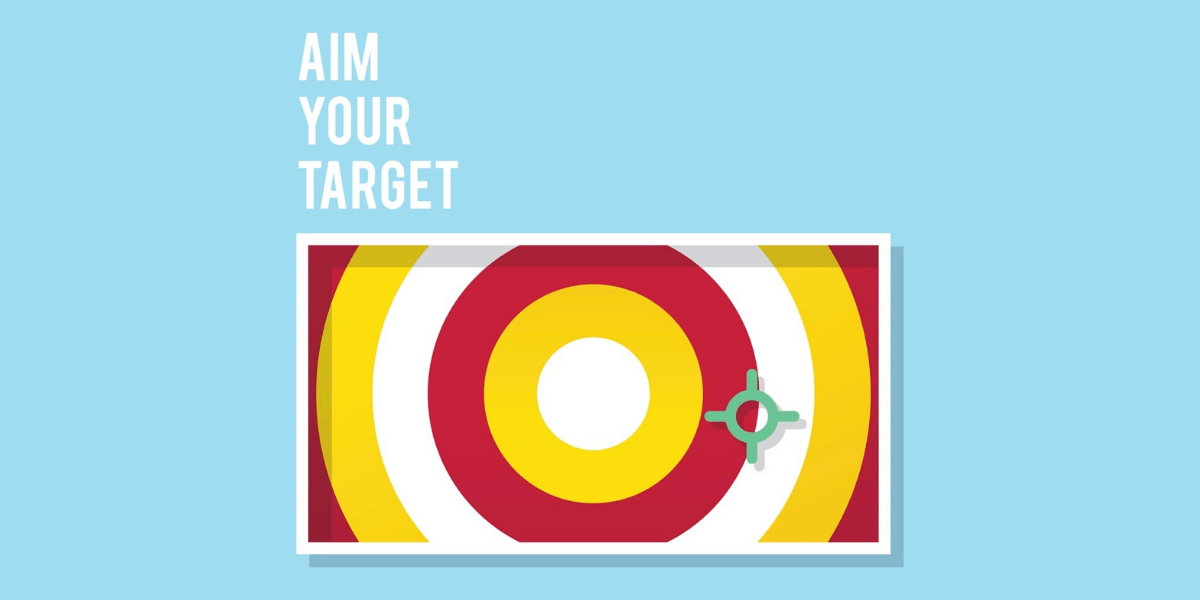
The 3 pillars of non-diet marketing
I will be covering the 3 pillars of an effective and profitable non-diet marketing strategy we teach inside the Good Money Mastermind and inside the Non-Diet Coaching Certification.
Pillar 1: Ideal Client Readiness
Trying to please everyone is the #1 marketing mistake that I observed in the health & wellness business sector. This is why the second element of a successful business strategy should include a comprehensive analysis of your ideal client and niche market. After that, you can create a unique marketing initiative that connects with your future clients.
Trying to convince people they need to change is the #2 marketing mistake I observed in the health & wellness business sector. That’s because not all your future clients are ready for your non-diet message now. If your future clients are still deeply entrenched in diet culture, then it will be a complete waste of your time and resource to market to them. Therefore, they need first to be open to a new approach.
Time and time again, women non-diet health entrepreneurs make these mistakes because they operate from fear instead of love. Fear of missing revenue and excluding potential clients is the main denominator of this fear.
By trying to please everyone, you actually prevent your niche clients from connecting with you and most importantly, take action towards their own transformation. Consequently, you prevent your business from being successful.
Therefore, your marketing strategy needs to ensure you connect to your unique niche market and with those in your niche ready to take action towards their own transformation.
Inside our Non-diet Coaching Certification Program, we teach a unique blueprint that blends in the transtheoretical model of transformation with basic marketing techniques.

Pillar 2: Emotional Connection
Our future client has been used and abused by diet culture and the weight loss industry. They have bought a lot of weight loss products out of desperation, and as we know, nothing has worked. Hence, your future clients need not only a different approach but also a different type of marketing.
Emotional marketing refers to marketing and advertising efforts that primarily use emotion to make your audience notice, remember, share, and buy (commit). It taps into the innate human desire to FEEL. Certainly, this is critical to a women-based audience.
The goal is to validate the way they FEEL now and show them how they can FEEL different later (after committing to your product). This type fo marketing helps out future clients buy from their hearts. This is because studies shows that people rely on emotions, rather than rational, to make decisions.
Emotional marketing inspires people to act. Similarly, it encourages more interaction between you and your brand long term which is critical to developing a sustainable non-diet business. Out of 1,400 successful marketing campaigns, those with purely emotional content performed twice as better as those with only rational content.
The most effective way to connect emotionally with your ideal client is to tell stories.
Pillar 3: Nurturing
The last pillar of a successful non-diet marketing strategy is to create a relationship of trust and credibility with your ideal client. That’s because the vast majority of your future clients will be doubtful given their experience thus far with diet culture. I know I was…. You?
Inside the non-diet coaching certification mentorship program & The Good Money Mastermind, we refer to this step of the program the “Non-Diet Marketing Funnel”. Think a liquid funnel here…. it’s the journey your client will go through as they enter your world.
Although we as non-diet health professionals are very familiar with a weight-neutral approach to health, our future customer is not. We have to face the facts: we live in a society that is fatphobic and heavily entrenched in weight loss approaches. In other words, we are the infancy stage of a non-diet world…
Hence, we need to educate our future clients to the non-diet approach. With each new interaction with potential clients, we need to educate and educate some more. And when you think you are done educating… educate some more lol! Likewise, you need to move your ideal client along your non-diet marketing from not knowing about the non-diet approach to understanding the basics of the non-diet approach. This needs to happen before they commit (purchase) to anything with you.
As your ideal client moves further down into your non-diet funnel, they will start trusting you and see you as an expert in this approach. As a result, they will be more willing to take a risk with what seems to them as a “completely crazy” approach to their problem: to ditch dieting, learn to eat intuitively, and accept their body.
Non-Diet Business Coaching Training Center
Would you like to see an example of nurturing in the non-diet world? If not done yet, join my non-diet professional community by requesting our starter pack for training for intuitive eating. I’ll send you the nurturing funnel I have built for professionals.
We also have created for you a number of free non-diet professional training resources to help you begin your research in the field of non-diet approach to health. You will find non-diet online training, webinars, podcasts, and articles.
You can access all of our services on our work with us page. We have a number of programs and service levels enabling us to serve most women:
Free Resources and Masterclasses: Get started and get to know us better!
Private coaching with Stephanie and her team Stephanie and her team of Certified Non-Diet Coaches are waiting to support you in a one-to-one setting with an individualized plan.
Undiet Your Life group coaching program is for women to learn how to eat intuitively, become body neutral, and learn self-coaching at their own pace while being supported in a group setting by Stephanie and her team of Certified Non-Diet Coaches.
Non-Diet Coaching Certification for professionals ready to integrate the Going Beyond The Food Method™️ in their practice and for women wanting to become Certified Coach and build a business coaching other women beyond the food.
Non-Diet Business Mentorship
The Good Money Business Mastermind is training program for an non-diet business and non-diet professional mentorship program. A business mentorship specifically designed and curated to support service provider in the anti-diet culture niche. Make good money helping people liberate themselves from diet & wellness culture!
This is what I was seeking but couldn’t find years ago.
Diet Mindset: How to unlearn diet culture thoughts
Diet mindset professional support to unlearn the diet culture thoughts training was not available when I started my transition to a non-diet approach to nutrition and health as a clinical nutritionist; had to figure it out on my own. Piece it all together…
In this podcast episode First Do No Harm: The Intuitive Eating Mentorship Journey I argued that the current model of practice for a nutrition professional top-down approach is causing more harm to a particular segment of our clients: women on the diet roller coster.
The solution: The bottom-up approach. Start first with addressing the diet mindset so we can move to coach nutrition and health later in the journey. Enter diet mindset professional training!
In this article, we will cover:
Diet Mindset Professional Training
Self-Coaching for Intuitive eating
If you would like to listen to the article in audio format the Going Beyond The Food Show – Pro Series Season 1 Episode 3
Links mentioned in the episode…
Non-Diet Coaching Certification
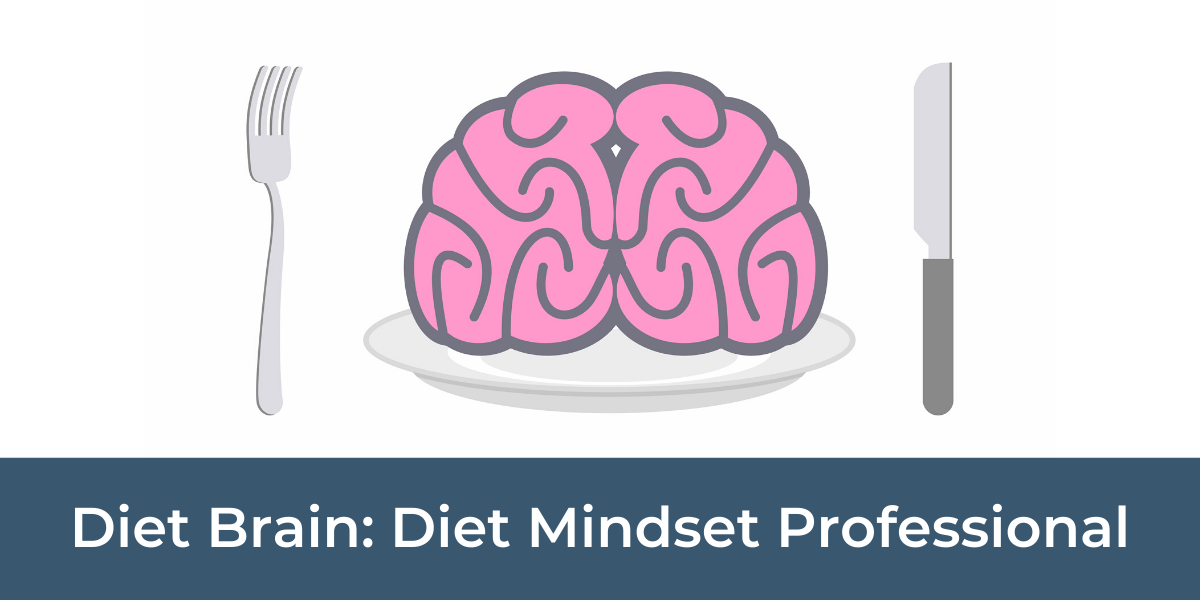
Diet Mindset Professional Training
In my professional studies as a clinical nutritionist, we barely touched upon the psychology of eating or diet mindset professional training. We jumped right into the WHAT to eat emphasizing greatly why it was so important to our health with a lot of facts and data.
So, I went into private practice and model what I had learned. Spending hours creating a complex protocol. Very quickly, I realized that wasn’t going to work… clients were overwhelmed and scared of the complexity of what they would have to do. I went to what I was taught: trying to convince them with studies, facts, and data as to why restricting this and that food was essential to their health. That didn’t work either.
Why wasn’t it working? Back then, I had no answer but today after years of independent studies I can tell you why: intellectual knowledge is not what motivates humans to change or make different choices. Especially not with food. The answer diet mindset professional training.
How human make food choices
So, if data points and fear-mongering isn’t an effective tool to help people change their eating habits, what is?
Of course, the primary driver to food choices is hunger however, what we choose to eat is not only our physiological and nutritional needs. Many other factors influence our food choice according to research:
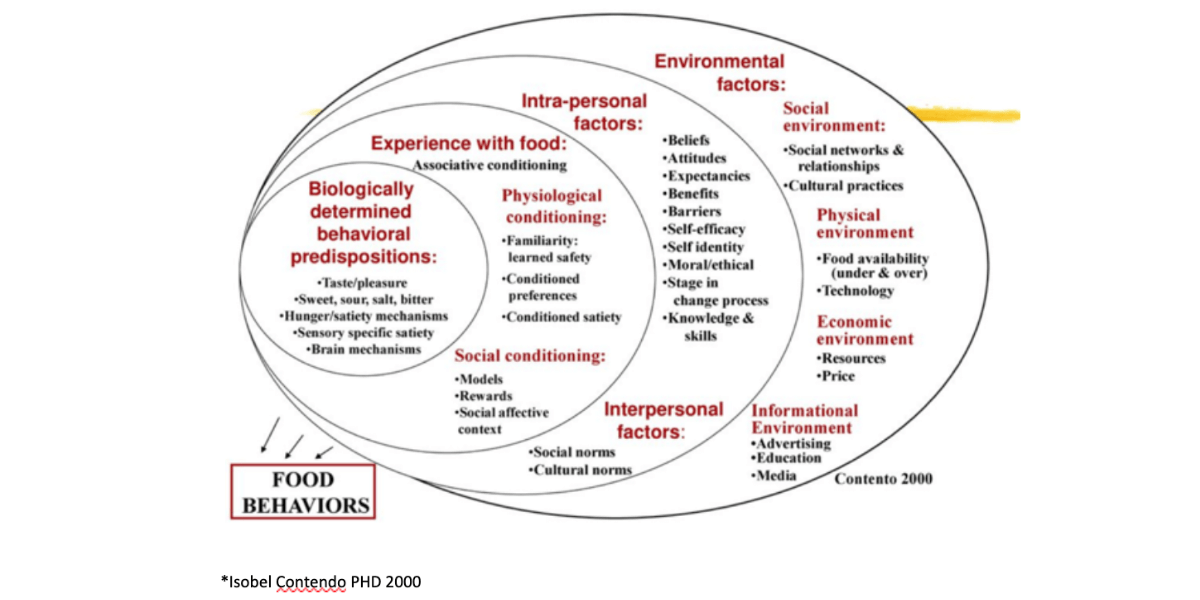
Biological Determinants
For example, our innate eating cues hunger, fullness, and satisfaction which is what is recognized as eating cues in the world of intuitive eating coaching. You can also include here Set Point theory which I discussed in depth with Chris Sandle on our Going Beyond The Food Show podcast series about weight loss.
Economic Determinants
In sum, here we can think of cost, income, availability of food which is truly out of our control as health practitioners. These are major issues with the newest version of diet culture: the Wellness Diet.
Physical Determinants
For example, access, education, skills (e.g. cooking skills), and time availability which are mostly out of our control as health practitioners.
Social Determinants
This aspect of our food choices such as culture, family, peers, and meal patterns are mostly out of reach for us as health practitioners except one that is particularly relevant to our segment of women who have been chronic dieters: weight discrimination.
There is emerging evidence that experiences with weight stigma may lead to different eating behavior. For example, individuals ate more food after exposure to a weight stigmatizing condition. Additionally, in a study, 79 percent of women reported coping with weight stigma on multiple occasions by eating more food.
A properly structured non-diet approach to health engages clients and patients in learning coping skills to help reduce the impact of weight stigma.
Psychological Determinants
This is the world of mind and emotions. Elements such as mood, stress, and guilt are one area that as non-diet health professionals should be included in our approach.
Today, it is widely recognized that food influences our mood, and that mood has a strong influence on our choice of food. For this reason, these determinants are the first 3 pillars of the Going Beyond The Food Method™️ .
Attitudes, beliefs, and knowledge about food
This is where we include intellectual knowledge about food but also include all the constructed food beliefs pass down to us from the weight loss & wellness industries in order to sell their products.
How the diet mindset develops
What’s unique about our eating behaviors, unlike many other biological functions, is too often subject to sophisticated cognitive control.
We consciously manipulate our food choices beyond the need of our bodies to achieve other external gains/ goals in our life. One of the most widely practiced forms of cognitive control over food intake is dieting (cognitive dietary restraint).
In most studies on the topic of food choices, it’s most often observed that women and men behave differently with food. In this study, women reported significantly higher restraint, more guilt after eating in various types of social situations, and more overeating in reaction to unpleasant emotional state mood.
Women’s bodies are imposed on different beauty standards than men’s bodies. Diet Culture reinforces the thin ideals to women leading 91% of women in western societies to dislike their bodies and using dieting (cognitive food restraint) to meet diet culture expectations of their body size and beauty.
With repeated failed attempts at dieting, dieting has a 91%-95% failure rate over 5 years period, women’s brain & body develops coping mechanism as a mean of surviving diet failure and weight stigma. This is why we need diet mindset professional training!
Common thought errors or cognitive distortion
When it comes to how we think, the dieter’s brain adapts using what we know as cognitive distortion or thought errors.
Let’s take a step back first to make sure we all understand how the human brain functions.
When faced with an event or a trigger, labelled in the model below as circumstances then given an interpretation. This interpretation is based on our long-held beliefs, past experiences, values system including diet culture. We then form an opinion, a thought which then ignites an emotion. The emotions we feel then creates the actions or behaviours we take. The collective action we take then creates our result.
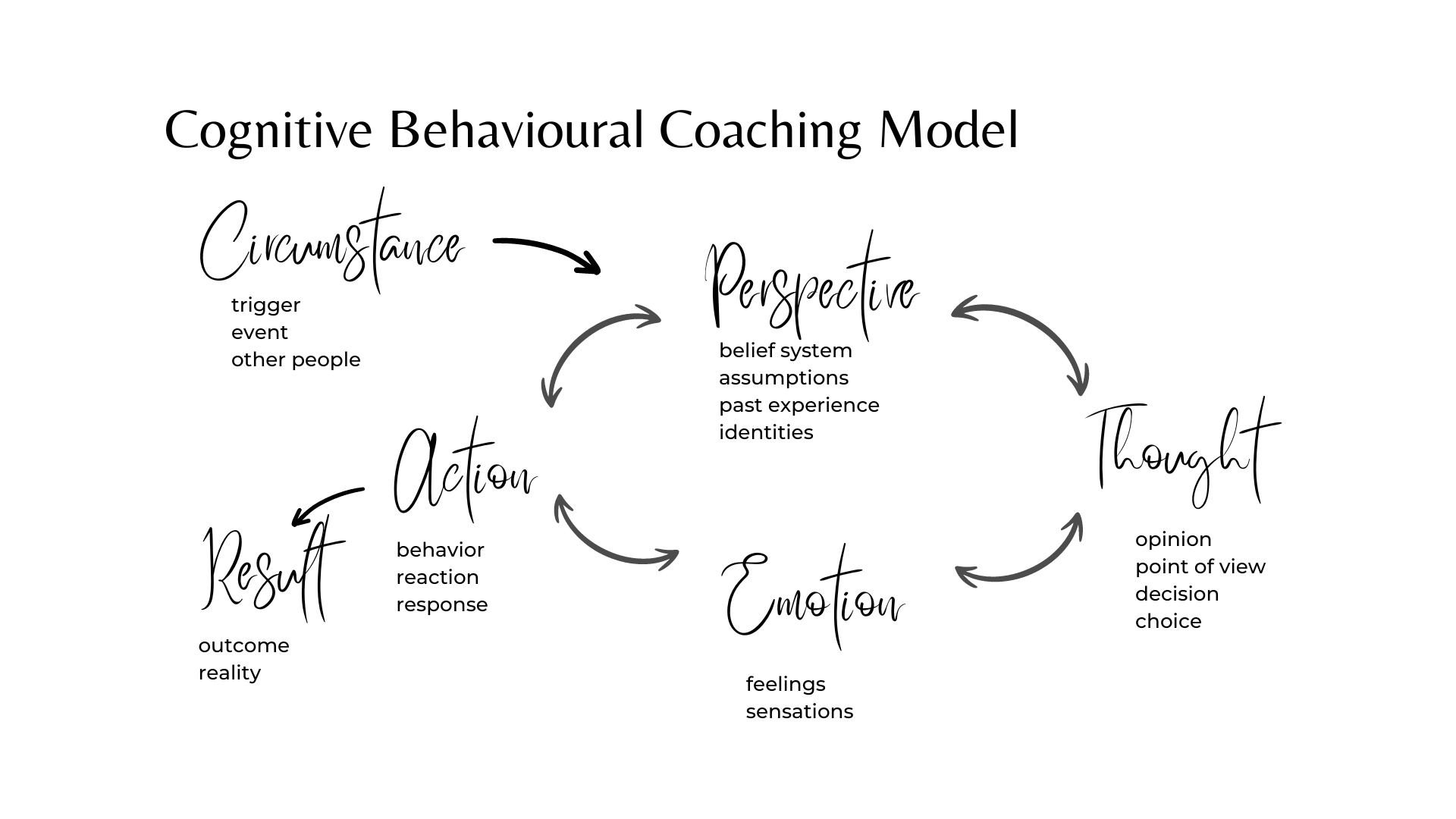
Cognitive Behavioral Coaching Model
Over time, the brain, or mind, adopts a “way of thinking” as a means to survive what we perceive as a difficult situation. These flaws in thinking are known as cognitive distortions or thought errors. This is what keeps women in the cycle of dieting and body shaming even though it has proven to be a very ineffective way of living life.
- Mental filtering
- Jumping to conclusions
- Personalization
- Black and white thinking
- Catastrophizing
- Overgeneralization
- Labelling
- Emotional reasoning
- Magnifying/ Minimizing
Over the years of working with women in a non-diet model of care approach, and my personal journey in recovering from 25 years dieting career, I have observed a pattern in cognitive distortion. I coined the term Diet Brain to better express this pattern.
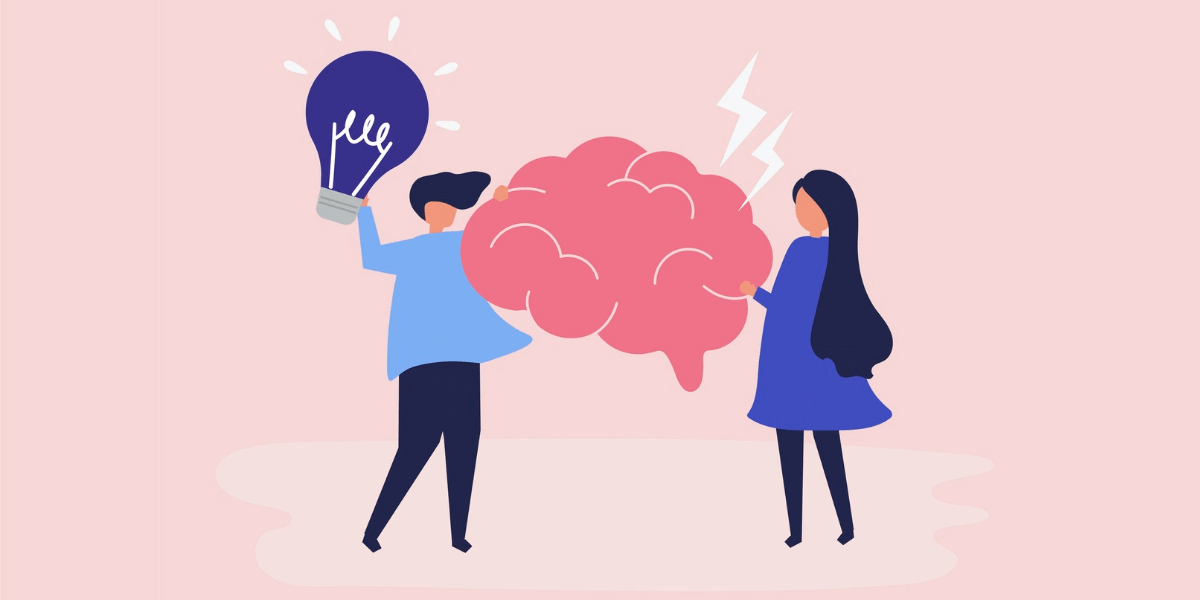
Diet Mindset & Diet Brain
Diet brain, the term I coined a few years back, is the collective of 4-main thought errors. In my clinical observation and personal experience overcoming each one, this pattern that is present in most women chronic dieters I have worked. What are these traits?
All or nothing / Black and White thinking
This can be best described as the on the diet / off the diet lifestyle. The good and bad food dichotomy as dictated by diet culture. With time, it spread these faulty thought patterns to every aspect of our life: exercise, work, career, relationship, how we raised children….
Perfectionism
Simply put: Everything must be perfect to off so we can be worthy of love, acceptance. At first with diet, food, and exercise but as failure cumulated, it becomes a way of life to prevent potential rejection due to “unperfected body”.
This cognitive distortion leads to a perfectionist fantasy. We make our current life so miserable by thinking that solving your problem (aka body size and appearance) will provide us with the happiness we are seeking that we actually never live (and enjoy) our current life.
Mental filtering: It’s my body’s fault
The body and its size take the blame for everything that’s wrong in your life. From health to a relationship, to opportunity, to emotional state… it’s all the body’s fault. Women then consistently compare themselves with others based on beauty and body size.
People-pleasing
This is when women move to external validation because internal validation is absent. As they believe that they are unacceptable, they will attempt to please and comfort everyone around them as a means of avoiding rejection and gaining acceptance.
These four most common cognitive distortions most present with women chronic dieters then strongly influence their eating patterns, ability to practice self-care, and create health-promoting habits.
The non-diet approach will first help the client and the patient with their mindset and emotions before engaging in nutrition education. In our diet mindset professional training, we teach the framework of self-coaching.
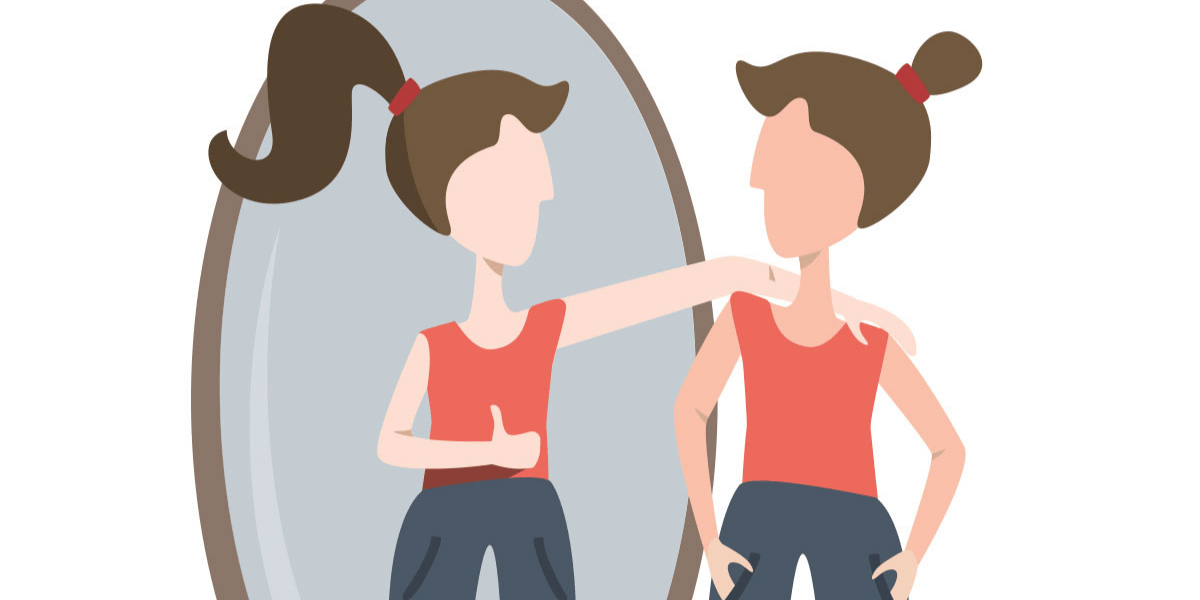
Self-Coaching for Intuitive Eating
Self-Coaching is a framework that supports first becoming aware of our thought, observing them without judgment and last to change our thinking. It’s also an effective approach supported by neuroplasticity. Neuroplasticity is the brain’s ability to reorganize itself by forming new neural connections throughout life.
We’ve developed a unique framework that supports the long-term goal of helping women recover from diet culture and become intuitive eater and body neutral. This is the best tool for diet mindset recovery for a professional approach. Self-coaching for intuitive eating is applied in 3 steps:
Step 1: Self-observation
The process of self-coaching cultivates the first skill which is about being an observer of our inner world – our thoughts and our emotions. This process helps raise the level of interception that clients will need as they begin to explore their innate eating cues with intuitive eating.
Step 2: Non-judgement
Self-coaching is about exploring your inner world with a “lense of curiosity” instead of judgment. Asking the question “I wonder why I think like this or do this” instead “I’m so stupid because I do this” is empowering and creates deep mental clarity. You can then decide how you want to think about X or what you want to do about Y.
Step 3: Conscious response
The last step of self-coaching is about choosing conscious responses or thoughts that work best for you and your specific situation, problem, or challenge. Self-coaching is ultimately about deciding consciously instead of reacting unconsciously.
Self-coaching as a thought in an intuitive eating mentorship program is about teaching our clients to connect to their innate wisdom and their power. It leads to emotional intelligence by taking charge of your mind and emotions.
That’s the feminist approach to food and health.
Get Started with Diet Mindset Unlearning Professional Training
We have created for you a number of free non-diet professional training resources to help you begin your research in the field of non-diet approach to health. You will find non-diet online training, webinars, podcasts, and articles.
You can access the non-diet coaching professional training here:
Non-Diet Professional Mentorship
Our Non-Diet Coaching Certification is a high-level business mentorship program for health professionals who want to take their business to a non-diet model of care. This program includes diet mindset professional training.
A 6-month journey of business and personal growth exclusively designed for female health entrepreneurs mastering their own journey beyond the food with intuitive eating and body neutrality, while also learning to market their intuitive eating business with a heart so they can have a massive impact on women’s health.
Intuitive Eating Business
The thought of starting an intuitive eating business can be scary and overwhelming.
Even for those that currently have a health business and want to transition to a non-diet business is frightening. Will I be able to sustain my income?
How can I make money off if I’m not selling meal plans, diet programs, detoxes, and cleanse?
If I’m not creating complex protocols for my clients: why would they pay me?
These are the type of questions this article aims to answer and many others.
What is the business of intuitive eating?
Being an Intuitive Eating Coach
Intuitive Eating Coaching Outcome
Who do we serve in an intuitive eating business
First Step to start an intuitive eating business
What is a Non-Diet Mentorship program?
If you would like to listen to the article in audio format the Going Beyond The Food Show – Pro Series Season 1 Episode 2
Links mentioned on the episode
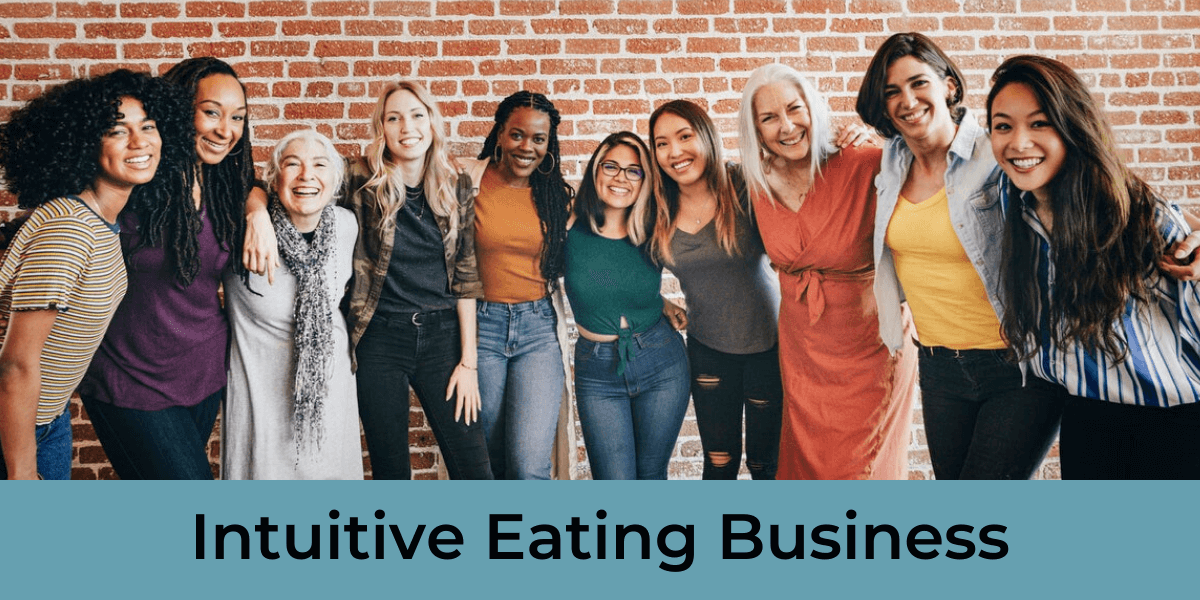
What’s an intuitive eating business?
An intuitive eating business is when you exchange money in order to support someone with intuitive eating. This support can come in many different ways:
- Teaching them an intuitive eating framework
- Coaching their learning or progress as an intuitive eater
- Supporting them in their intuitive eating journey
- Encouraging to move forward when they struggle
- Answering their questions
- Inspiring them to move forward in the face of adversity
- Creating products that will support people who want to become an intuitive eater
This business is not a formulated typical health business and does not hold the same value system considering that most health businesses are created to support diet culture ideology.
The most prevalent difference in a diet culture-free business resides in its approach to healing. An intuitive eating business is anchored in what I describe as a “bottom-up” approach versus a “top-down” approach. The goal is to empower you to become your own expert at your body. A typical health business that is rooted in diet culture is built around the provider being the expert and telling you how to engage with your body. Very disempowering.
An intuitive eating business is based on self-compassion, trust, respect of the individual innate body wisdom, and ability to heal themselves.
As of today, the most frequent intuitive eating business model is the coaching business model. You exchange money with your service as a coach.
Intuitive Eating Coach Business
As an intuitive eating coach, you are healing your client/ or patient… they heal themselves. Your clients/patients have all they need to heal their own relationship with food and body. For many, that’s a departure from their professional training… it’s ok to feel unsafe at first.
An intuitive eating coach is a health professional who guides clients/patients in their recovery from Diet Culture. Moreover, your job is to guide clients on the path of becoming an intuitive eater by listening to their concerns and helping them with problem-solving. Recognizing what we spoke about in the first episode of season 1 of Undiet Your Coaching Podcast, that the human relationship to food is by far more complex than just simple food choices.
Problem-solving with your client as an intuitive eating coach will not require you to provide a complex meal plan or macro ratio. Instead, helping them master their mindset particularly shifting away from diet mindset towards a compassionate mindset.
You will help your client move from an external cue to know what to eat, when to eat, and how to eat towards internal cues. As well as helping them feel their hunger, fullness and find satisfaction in what they eat. Instead of teaching your clients to suppress their cravings and how to “fill up on aid food”, you actually help them be in their body at the moment.
You help them understand that all food is good. That being healthy doesn’t mean being restrictive and feeling deprived. That they no longer need to earn their food. You empower your clients, give themselves permission to eat.
Intuitive Eating Coaching Outcome
Your goal is to coach your clients in building confidence in their own eating cues to be their own internal nutritionist. Instead of helping your client live a “normal life” in a very restrictive dietary protocol and how to make cauliflower brownie, you help your client give themselves permission to eat.
With compassion, you guide your client to cope with emotions differently. Helping them build resilience and emotional intelligence. Helping them learn to process their emotions without food.
As your clients build trust and respect with their innate body wisdom, you help them detach from being their bodies and their appearance. In addition, helping them reconnect to their innate worth as women. Guiding your client away from shame towards neutrality. Helping them embrace self-care beyond their physical bodies.
Finally, you help educate your client to a weight-neutral health approach guided by health at every size principle. Moving their body with joy and practicing gentle nutrition.
Being an effective intuitive eating coach requires you to be an intuitive eater first with a willingness to grow and learn from your clients. You must possess intuitive eating professional skills but also, mindset coaching skills, behaviour modification skills. Also, mindfulness and body image resilience skills.

Serving versus Selling
Let’s talk about what everyone thinks about but doesn’t want to talk about. It’s going to get uncomfortable for some…
It’s ok to be making money coaching intuitive eating, to exchange your coaching services for money. There’s nothing wrong with wanting to be successful in your intuitive eating business. It’s ok to monetize your professional skills.
Ready for this one: The more revenue you create, the more money you make in your intuitive eating business means more people freed from diet culture. Yup, it truly is.
Now, how you monetize your services and create business revenue does matter. You can build a business in a masculine, patriarchal way or you can choose to embrace your female energy that empowers everyone even those who do not purchase from you.
You can serve instead of selling. Serving means engaging with our clients without expectation. You offer value by creating free content, teaching your audience the very basics of intuitive eating, providing free resources to everyone. You become a resource helping people break down their own barriers, fears, and supporting them with an empowering message. Guiding them to the next level resources available.
The opposite of serving is the hard sell, aggressive to close mentality that comes across as pushy and self- focused. When you are focus on selling, you create free resources guard to disempower people so they are led to believe that the only way for them or resolve their problem is by buying your product.
Serving is based on love. Selling is based on fear. Serving leads to selling without selling.
Who do we serve in an intuitive eating business
We must recognize that the intuitive eating model of nutrition is not accepted by the traditional model of healthcare. As a result, intuitive eating services are mostly never covered by traditional insurance providers. Our services are typically private care, meaning an out of the pocket expense.
This is why most intuitive eating professionals have to be entrepreneurs alongside their profession. You can provide service for someone else’s business but in most cases, you will need to be running your own business.
This means that you need to embrace entrepreneurship and learn about setting up and maintaining a business, marketing your intuitive eating business as well as getting and retaining clients.
Let’s make something clear here: a professional health certification isn’t how you will learn to run a business. The vast majority of health certifications do not include business training and if they do, it’s not focused on a non-diet business model but instead a model that supports diet culture.
That’s why I created the Non-Diet Coaching Certification program. If we want to be successful in dismantling diet culture, I need you to know how to successfully operate a business.

First Step to start an intuitive eating business
The first place to start is with a business strategy. That’s you creating a brand-new business of transitioning your current business to an intuitive eating business model, you need a business strategy.
The strategy is what will turn your passion into biz and blow you to impact thousands of women. It’s the roadmap you will look up to as you work day-to-day in your business. Your business strategy consists of the following:
- Why
- What
- Who
- Where
- When and the…
- How much
The first layer of your business strategy that we teach is the why… not the what. This is where most business strategies go wrong. The business you create needs to be in alignment with your personal values, your personal goals, and how YOU want to lead your personal life.
To be an effective heart-centred intuitive eating business owner, you must care for yourself first. Make sure your business supports YOU not the opposite.
Non-Diet Business Coaching
Today, I own and operate a very successful intuitive eating business. It’s not always been like this. In this first episode of the PRO Series podcast, I share the story of my own professional and business evolution.
It took time and resources for me to get where I’m today. For over 4 years, I searched and trained in various professional training programs to create the Going Beyond The Food Method. I shared more on this in this podcast episode.
Although I had 15 years of retail business operation experience, I also had to learn the health business model. I had to educate myself, get coached in my blind spot, be mentored. Over the last 10 years, I invested approximately $60,000 in my business.
- I hired an experienced nutrition business coach before even graduating -8K
- The year following my graduation, I committed my first health business mastermind -10K
- 4 years ago, I hired an online business coach to help me transition my business online – 10K
- Over the next years, I have purchased 26k in online business skills courses to learn email marketing, funnel, summit, branding, etc…
Non-Diet Coaching Certification Program
The Going Beyond The Food non-diet coaching certification program is a space where you can receive support guidance to become the best intuitive eating professional. It’s a program geared to refine your professional skills set and teach you the skills you need to build a successful business that can impact thousands of women.
It helps you develop as a powerful leader and help other women come back to their power. You learn how to harness your ability to support and help other women. As a result, you can impact thousands of other women and dismantle diet culture.
I believe that the only way for us to be able to end diet culture oppression of women is by us women coming together and helping each other as women back into our power via intuitive eating and body neutrality. This is a woman issue…that must be resolved by women.
As women, we need to step up and change the future for the young generation of girls. We need to teach them that they aren’t defined by their bodies, we need to crush DC so it never gets its dirty hands on the upcoming generation.
The liberation of the upcoming generation will only come through our generation’s liberation from diet culture and patriarchy.
Currently, the traditional model of nutrition, coaching, and even health care is not set-up for this…it’s entrenched in diet culture. Most of the wellness industry is deeply entrenched in diet culture. The alternative health industry claims to be about the root cause… but never looked at the reason why women engage with food and body.
Bottom line we need a new approach
We need women who can help other women change their relationship to food and body, empowering women to become their own experts at their bodies, to help women build confidence in themselves and their power to know what’s right for them.
Women who will support other women. We need emphatic, compassionate women who have the skills to connect with other women and a passion for change.
My job is to ensure these women are doing their job so well while creating a sustainable business so they can keep impacting more women for years to come. Furthermore, my job is to ensure that these women are successful so they crush diet culture for the generations to come.
Ready to get started building an Intuitive Eating Business?
You can access all of our services on our work with us page. We have a number of programs and service levels enabling us to serve :
Non-Diet Coaching Certification for professionals ready to integrate the Going Beyond The Food Method™️ in their practice and for women wanting to become Certified Coach and build a business coaching other women beyond the food.
Good Money Business Mastermind A business mentorship and a collective of ambitious, driven and empowered anti-diet culture providers and coaches on a mission to dismantle diet culture and make GOOD money doing it!
Free Resources and Masterclasses: Get started and get to know us better!
Intuitive Eating Mentorship For Professional: First Do No Harm
I help women with intuitive eating mentorship programs today but it wasn’t always so…
8 years ago, I was 2 years into my nutrition practice, Carolyn walked into my office. And she had just been diagnosed with high blood pressure and high cholesterol. She desired to be “healthier”.
I proceeded to take a diligent intake. And this intake process included a food journal, detailed health history as well as a symptomology assessment. Based on my assessment I concluded that a “whole food diet” would support her goals. Along with other lifestyle modifications.
Not only how I was teaching nutrition different but also my approach. So Carolyn would add foods to her plate instead of removing foods. Carolyn left my clinic with her food list, food journal and “ideal plate” handout in hands.
Then two weeks later she was back for a follow-up. Within 10 minutes, she was in tears.
“I’m so sorry Stephanie I wasn’t able to follow what you told me to do and thought this time would be different. My urges to binge on processed food at night are back in full force. “
“I ate my kids’ food in secret. What is wrong is wrong with me??”
Are we causing harm to our clients?
Shifting to a non-diet approach to health
The Going Beyond The Food Method™️
Non-Diet Professional Training
If you would like to listen to the article in audio format the Going Beyond The Food Show – Pro Series Season 1 Episode 1
Links mentioned on the episode
PRO Series – Free Training & resources
Non-Diet Coaching Certification
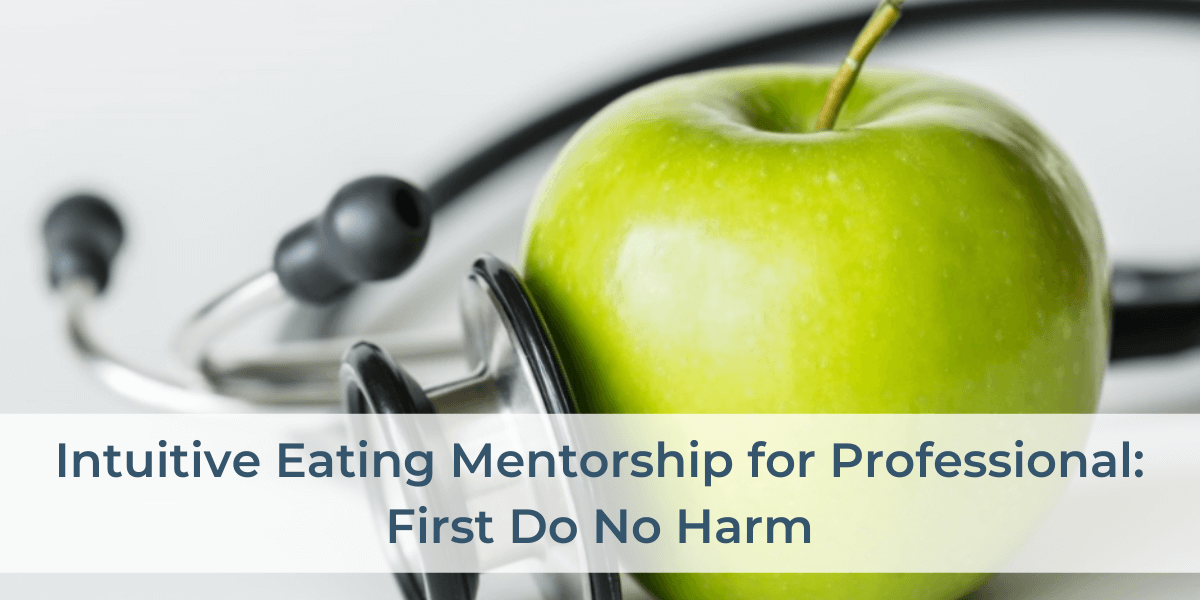
Are we causing harm to our clients?
We do not know what we do not know.
I was aggravating an underlying condition for Caroline. Not only did Carolyn had a disordered relationship with food but also with her body image due to years of chronic dieting. And all of my assessment tools and training never accounted for this condition. I was neither taught to assess how patient-related to food or to consider past dieting behavior in my assessment.
Fast forward 8 years later. When I reflected back on my first few years of practice not only most of my female clients were in fact in a disordered relationship with food but I also was.
Most nutrition experts engage in disordered eating
In 2012, an international study in 14 countries found a whopping 77 percent of nutrition students felt that eating disorders were a concern among their peers. And the reasons behind this are complicated: theories run from an obsessive overexposure to information about food and exercise, to pressure within degrees to be an “ideal nutritionist.”
Individuals that develop disordered eating may at first initiate a quest for a healthier lifestyle but then dysfunctional, compulsive beliefs about food emerge that then impair health, work, and social functioning.
If you are curious to know if have a disordered relationship to food then you should complete our free professional Non-Diet Coaching intake forms. Assess yourself and share your results with us!
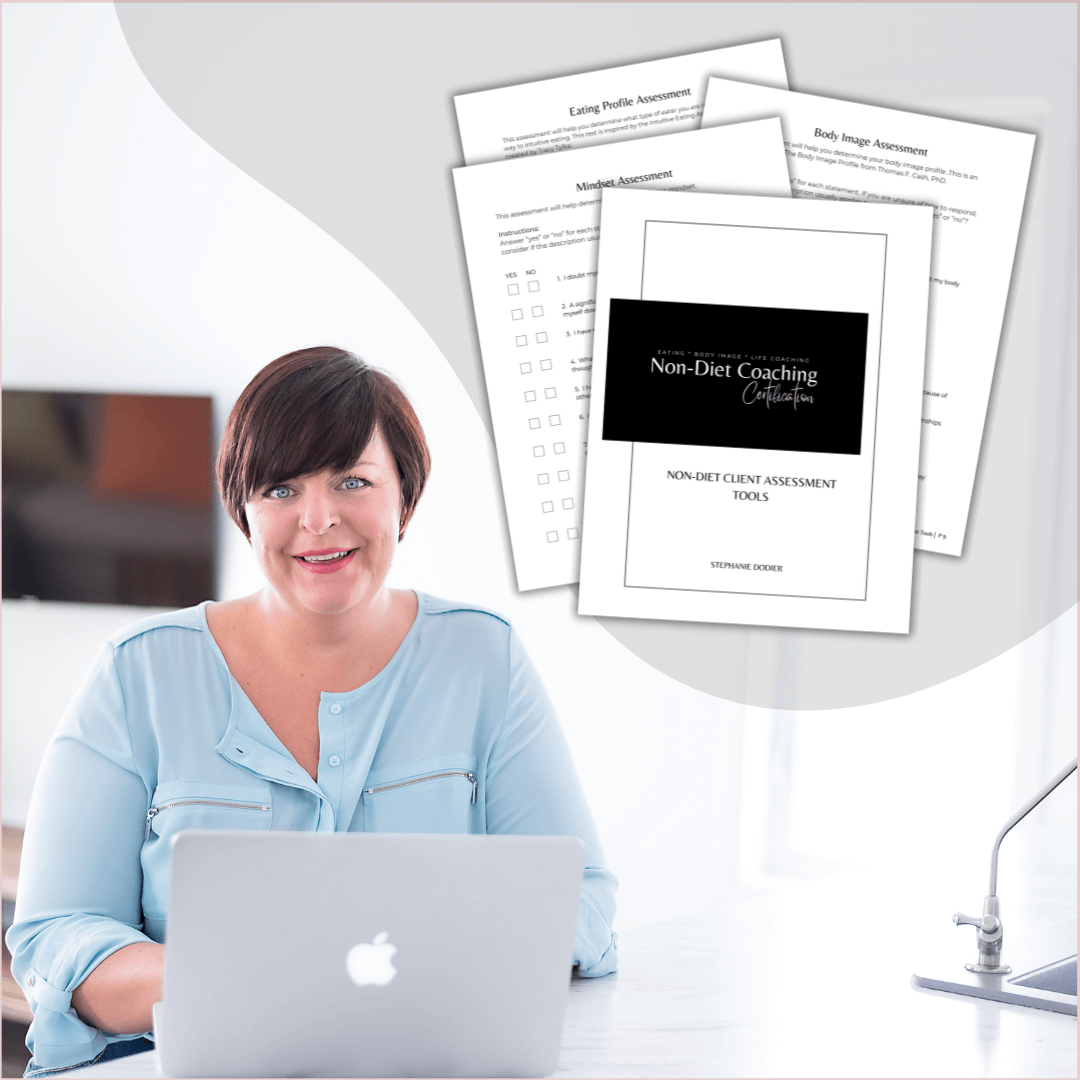
Shifting to a non-diet approach to health
Carolyn was the most impactful client-practitioner I have had to this day.
Not only did she triggered in me a must needed professional shift but also a personal transformation. So my quest for another way of serving my client and healing myself began with her.
7 years ago when I searched for support, training and non-diet coaching certification nothing existed. Instead, I read the Health At Avery Size® research and book by Dr. Lindo Bacon. And then began applying a weight-neutral approach to health in my practice.
Over the next 4 years, I collected both a variety of professional and personal skills. This collection of tools is today known as The Going Beyond The Food Method™️. And this non-diet methodology is currently taught in Undiet Your Life Coaching Program
The Going Beyond The Food Method™

The Going Beyond The Food Method™️ is a way of working with clients and patients which removes that emphasis and pressure to eat for weight loss or health. Instead, it embraces the Health At Every Size® weight-neutral approach to health, intuitive eating, body neutrality, mindfulness, and a self-coaching mindset.
This non-diet methodology respects the fact that each human has innate body wisdom. And that our the body knows what we need and what is best for us including food, eating, movement, weight, and self-care.
A practitioner who uses our methodology is focused on helping women rebuild a relationship of trust, respect, and neutrality with their bodies.The client is empowered to identify what will be best for her to optimize their own health and wellbeing.
At the core, a holistic based approach recognizing the 4 human bodies: mental, emotional, spiritual and physical human bodies. This non-diet approach for health coaches, nutritionists or any other health experts is a gentle process. And it focuses on skills building.
Ultimately, it’s about helping women conquer back their power and thrive unconditionally!
Intuitive Eating Mentorship
The Going Beyond The Food Mentorship program is an intuitive eating mentorship program, an anti-diet training and body image professional training. And it’s designed to support health professionals desiring to shift their practice to a non-diet model.
This is what I was seeking but couldn’t find years ago.
As a professional, a non-diet approach to health and nutrition can be scary as it empowers your client and patient to be their own health expert.
Non-Diet Coaching Professional Training
“If we are not going to hand out meal plans and “good and bad” food list, what will we do?”
That is a very common question and also a great starting point to understand which professional skills set will be required in a non-diet approach.
Food choices and healthy habits aren’t only derived from intellectual knowledge but also from our emotions and thoughts. This applied not only to healthy habits but to every habit we choose to do as a human.
As a non-diet practitioner, you will need to help with your clients with the mindset and emotional intelligence tools. We teach self-coaching for intuitive eating.
Chronic dieters and women who dislike their bodies are in their head instead of their bodies. You will need to help them come back into their body and to connect to their bodily sensation including their eating cues. Mindfulness is the perfect tool to cultivate body attunement.
Intuitive Eating Training
Intuitive eating is a well- researched and complete framework to help you reframe the before, during and after relationship to food with women. As a certified Intuitive eating counselor, I have studied directly with Evelyn Tribole and now included this empowering framework with all my clients in our non-diet online training.
As a non-diet professional, your skills wouldn’t be complete without a tool you can use to help your clients to heal their relationship with their body image.
Body Neutrality is the framework I have selected to teach in our program. It helps women understand that we aren’t defined by own physical bodies. This body image professional training goal is to respect and accept your body for what it is – and that’s it.
Non-Diet Business Coaching
Shifting your business to an anti-diet business model requires some small business adjustment mainly in the content of your professional services, health programs, and marketing.
Your intuitive eating business skills will require you to move to a serving message from selling messages. Your future client or patient will need to be educated about what is a non-diet and weight-neutral approach to health.
The 5-step process to build a successful Anti-Diet Business
1. Determine the non-diet business format that will support your personal goals
2. Define & refine your ideal clients and their needs
3. Create a non-diet service offer.
4. Market your offer or product using our exclusive non-diet transformation funnel system.
5. Deliver your product.
Bonus – Scale & Diversify

How to Get Started
We have created for you a number of free intuitive eating mentorship training resources to help you begin your research in the field of non-diet approach to health.
You can access this non-diet professional training by clicking here.
You will find non-diet online training, webinars, podcasts, and articles.
One last thing
Here’s the truth: As long as you teach any labelled diet (Keto, paleo, GF, DF, ….) and or handout food list and meal plan, you aren’t teaching sustainable health or nutrition. Point.
If the above is you, just about now you’re likely pissed at me. That’s ok sister! I get it. I was on the receiving end of this exact discourse about 4 years ago and I was mad but it planted a seed in my mind… and here I’m today!
It’s not your fault. As far as I know, today…no nutrition school or health coaching program currently offers Intuitive eating as part of their curriculum. So how were you supposed to know??
But now you know…. So, what will you do? Continue to arm people teaching diets or learn intuitive eating for yourself and slowly, gradually integrate it in your practice and help your client real sustainable changes.
It’s your choice. If you choose to opt-out of diet culture, we can help you in your journey.
We do not know what we do not know.
Most nutrition experts engage in disordered eating.
Individuals that develop disordered eating may at first initiate a quest for a healthier lifestyle but then dysfunctional, compulsive beliefs about food emerge that then impair health, work, and social functioning. If you are curious to know if have a disordered relationship to food then you should complete our free professional intuitive eating intake forms. Assess yourself and share your results with us!
Intuitive Eating Resources
I rounded up my best free intuitive eating resources, body neutrality resources, and Health at Every Size resources. It includes books, blogs, podcasts, programs, and courses.
Intuitive eating and body neutrality are increasingly becoming popular among women for a number of good reasons. For one, it’s been proven to lead to positive health outcomes. In addition, both are a healthy approach to health that puts you in control of your eating behaviours and body image.
Health at every size is the overarching weight-neutral health principle that drives the foundation of both intuitive eating & body neutrality.
This blog post is aimed at helping you discover intuitive eating resources to support you in your journey Going Beyond the Food: which means ditching diet culture, making peace with food and your body.
The meaning of Health at Every Size
My top 4 free intuitive Eating resources
Health at Every Size resources
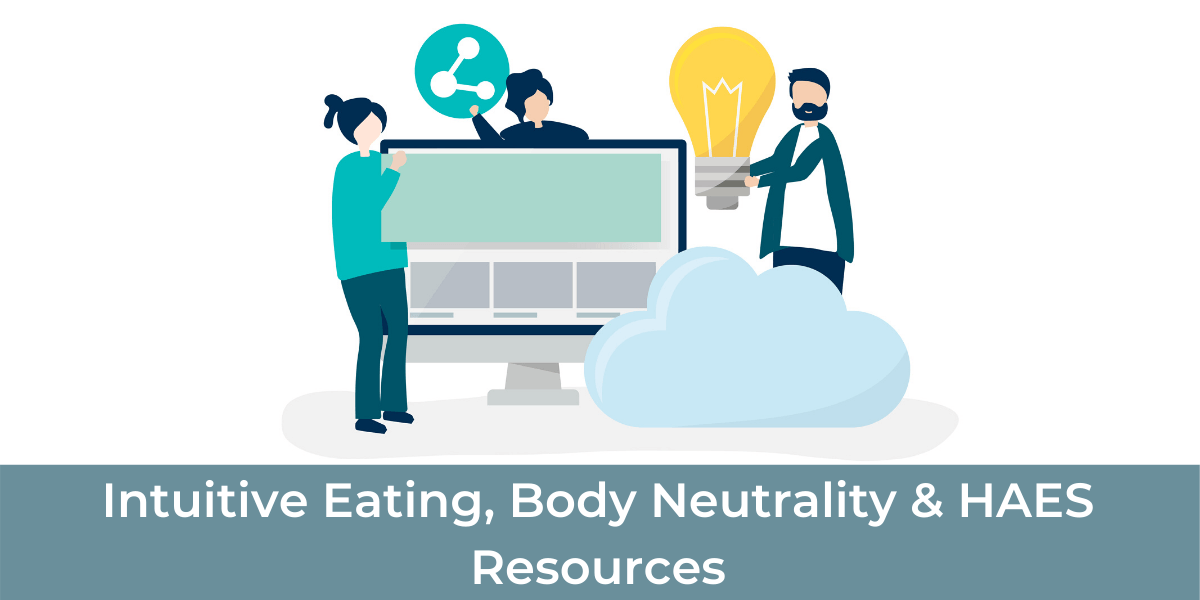
What is Intuitive Eating?
Intuitive eating is an evidence-based approach to eating that allows you to be the expert of your own body. And this self-care eating framework enables you to develop a healthy relationship with food and your body.
Moreover, it teaches you to trust your ability to meet your own needs, distinguish between physical and emotional hunger, and ultimately develop body wisdom.
Most importantly, eating intuitively is well–researched and proven health framework supported by more than 100 intuitive eating studies as of 2020.
What is Body neutrality?
Body Neutrality definition is about empowering you to embrace yourself as you are. That’s including the parts you don’t like about yourself. And its focus is to avoid self-hate while simultaneously relieving you from the pressure of having to love your body.
And the framework of Body Neutrality recognizes that not everyone is going to love every part of themselves all the time because that’s an unrealistic expectation, to say the least.
In short, the goal is to respect and accept your body for what it is – and that’s it.
What is Health at Every Size?
Health at Every Size definition is a philosophy and an approach to health. Linda Bacon, Ph.D wrote the book Health at Every Size: The Surprising Truth About Your Weight.
The book demonstrated through health at every size research and studies that health behaviours influence health more than weight.
Above all, the HAES movement promotes the simple truth that all bodies are good bodies. It shifts the focus away from dieting for weight control.
Instead, it steers you toward self-care practices that support your body’s natural wisdom and vitality.
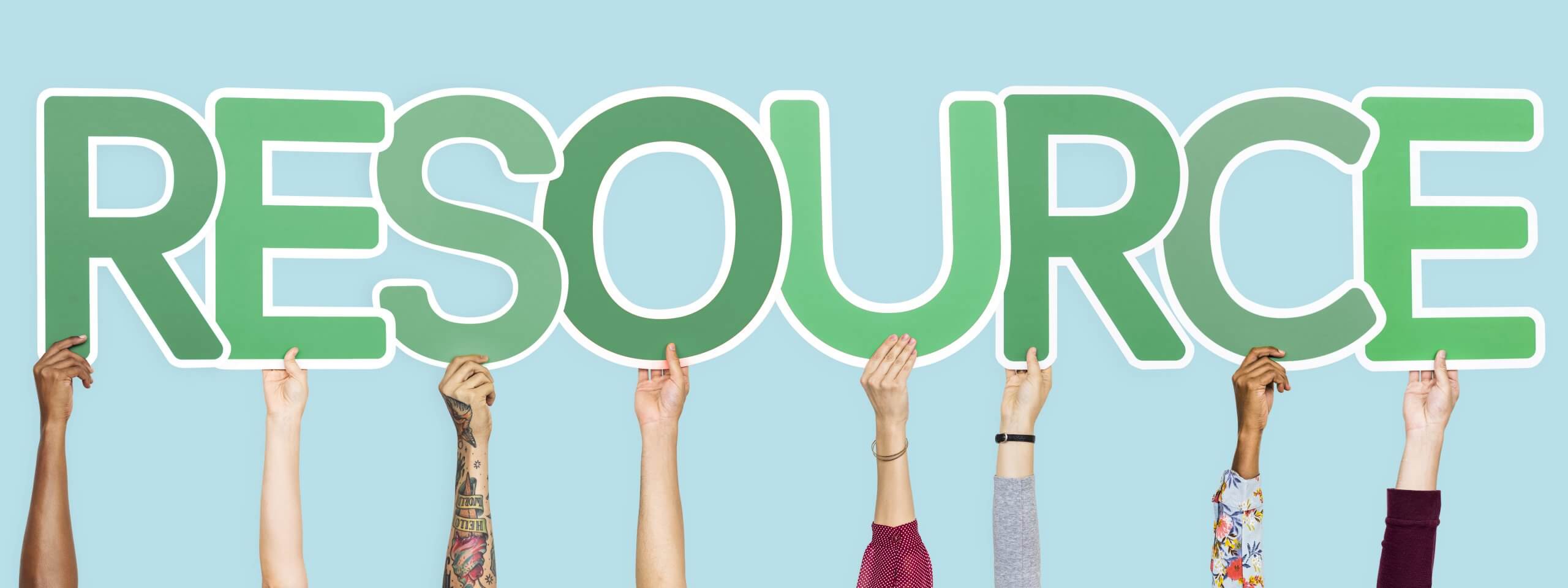
My top 4 free intuitive eating resources
#1 The Going Beyond The Food Show
This is my intuitive eating podcast. A collection of 200+ episodes that cover all topics about intuitive eating, body neutrality, and health at every size.
I suggest you get started at show 199 and move your way up!
#2 Health at Every Size Manifesto
A free HAES guide is provided by Dr. Linda Bacon. And it explains the Heath at Every Size approach to health and provides sustainable research-based evidence that demonstrates that health is accessible at any body size.
#3 Beauty Redefined
Beauty Redefined is a non-profit, dedicated to promoting positive body image online and in live speaking events. This website is run by identical twins Lexie Kite, Ph.D. and Lindsay Kite, Ph.D.
These two experts teach body image resilience through research-backed online education available on their website, and social media. Visit their blog and TEDx Talk.
#4 Get Started Guide
I created this free guide to help women understand the basics of intuitive eating. Most importantly, this guide is followed by a series of educative articles to help you to get started on this new journey.
Get the FREE guide here.

Intuitive Eating Resources
There are 3 levels of resources for you if you are ready to learn intuitive eating.
#1 Intuitive Eating Books
Evelyn Tribole is the ultimate intuitive eating expert, my teacher, and my mentor. She has dedicated her career to training health professionals with the intuitive eating framework.
All of our programs at Going Beyond The Food are certified by The Original Intuitive Eating Pro®.
#2 Structured Online Intuitive Eating Program
The Intuitive Eating Project is a 5-week online program.
In addition, it is a self-study program to teach you Intuitive Eating in an easy step by step, supported by an online community, and dozens of videos, guides and integration exercises. And it’s lead by myself, Intuitive Eating Expert, Stephanie Dodier CNP.
#3 Intuitive Eating Program Private Counselling
Two options for you:
#1 If you want to work with a local intuitive eating certified counsellor, then, you can visit this directory to locate someone to work with you 1-on-1.
#2 You can visit this intuitive eating coaching page on my website. Not only will you be able to read more on my coaching programs but also submit your application if you would like to work with me 1-on-1.
Most importantly, my 1-on-1 coaching is inclusive of body neutrality and health at every size alongside with intuitive eating.

Body Neutrality Resources
Are you ready to get started making peace with your body? Then, there are 3 levels of resources for you.
#1 Body Neutrality Books
I would suggest starting reading books. Things No One Will Tell FAT Girls by Jess Baker is a lived-experience book combined with research. This book was a game-changer!
The second book you should read is definitely The Beauty Myth: How Images of Beauty Are Used Against Women by Naomi Wolf. This is a classic that redefined the relationship between beauty and female identity. Body image issue is a feminist issue! Must read for all women.
#2 Body Image Courses & Programs
I would suggest two online programs. Both of these programs are a step by step structured program to heal your body image and make peace with your body.
#1 Beauty Redefined Body Resilience Program. A 8-week program to build body resilience by helping you navigate body shame, objectification, and unreal ideals.
#2 The Body Image Accelerator, this is my baby. A 5-part online program to help you accept your body using the body neutrality framework.
#3 Body Image Private Counselling
Two options for you:
#1 Jess Baker is a Recovery Support Specialist with a long history working as a Psychosocial Behavioral Specialist. With both formal education background and lived experience I’m pleased to recommend Jess. You can find more about working with her here.
#2 Would you like to work 1-on-1 with me? You can visit this intuitive eating coaching page on my website. Not only will you be able to read more on my coaching programs but also submit your application if you would like to work with me 1-on-1.
My 1-on-1 coaching is inclusive of body neutrality and health at every size alongside with intuitive eating.
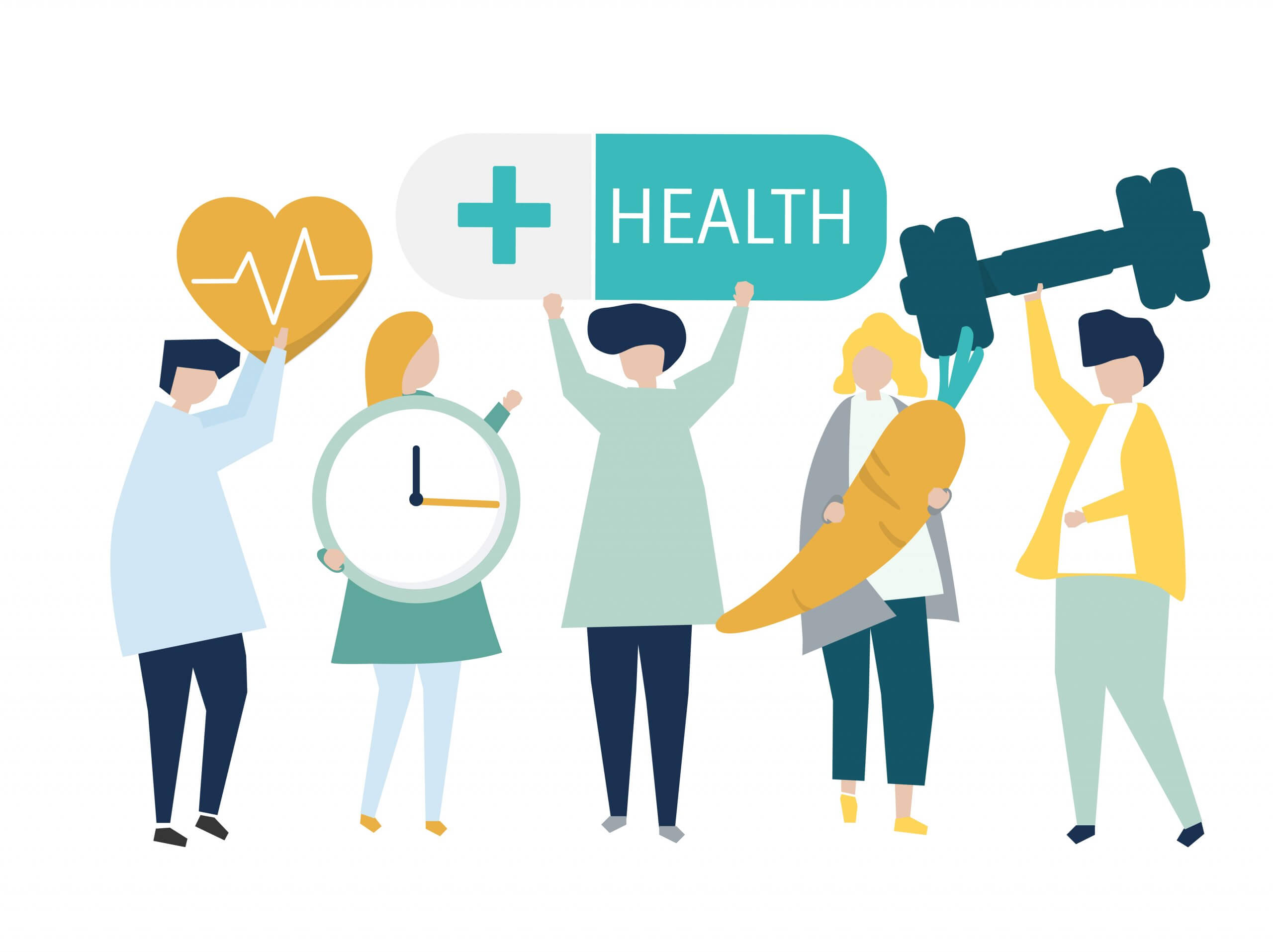
Health at Every Size Resources
Ready to relearn health and adopt a weight-neutral approach to health? I have a few options for you. Three levels of resources for you:
#1 Health at Every Size Books
The first place to get started is to read Dr. Linda Bacon’s Health at Every Size: The Surprising Truth About Your Weight. Think of this book as the bible of the weight-neutral approach to health.
Next, I would suggest my colleague, Christie Harrison’s book Anti-Diet. Her book is very well researched and structured for you to understand why health is available to you now!
#2 Health at Every Size Course
If you are looking for a step by step structured program to teach how to support your health in a weight-neutral holistic methodology…
Going Beyond The Food Health Mastery is a 9-module curriculum. And this program will teach you how to support your body towards the best health without having to lose weight. Not only without restricting food or taking any supplements! This program is taught by myself, Stephanie Dodier CNP.
#3 Health at Every Size Private Counselling
Want to work with a Health at Every Size care provider? You can visit this directory to locate someone to work with you 1-on-1.
[sc_fs_multi_faq headline-0=”h2″ question-0=”What is Intuitive Eating? ” answer-0=”
Intuitive Eating definition is an evidence-based approach to eating that allows you to be the expert of your own body.
This self-care eating framework enables you to develop a healthy relationship with food and your body.
Teaches you to trust your ability to meet your own needs, distinguish between physical and emotional hunger, and ultimately develop body wisdom.
I hope this helps sister!
Intuitive Eating Coaching
All women that come to intuitive eating coaching have failed… failed at many diets.
I love when women’s diets do not go according to plan… I get really excited because I know they are on the brink of huge transformation.That’s when you are forced to make a choice… stay in your comfort zone repeating your old patterns to jump on the next “new” diet…OR move forward past your dieting comfort zone and towards something different.
That’s when I come in… helping you feel the fear of trying something different and still move forward with courage.
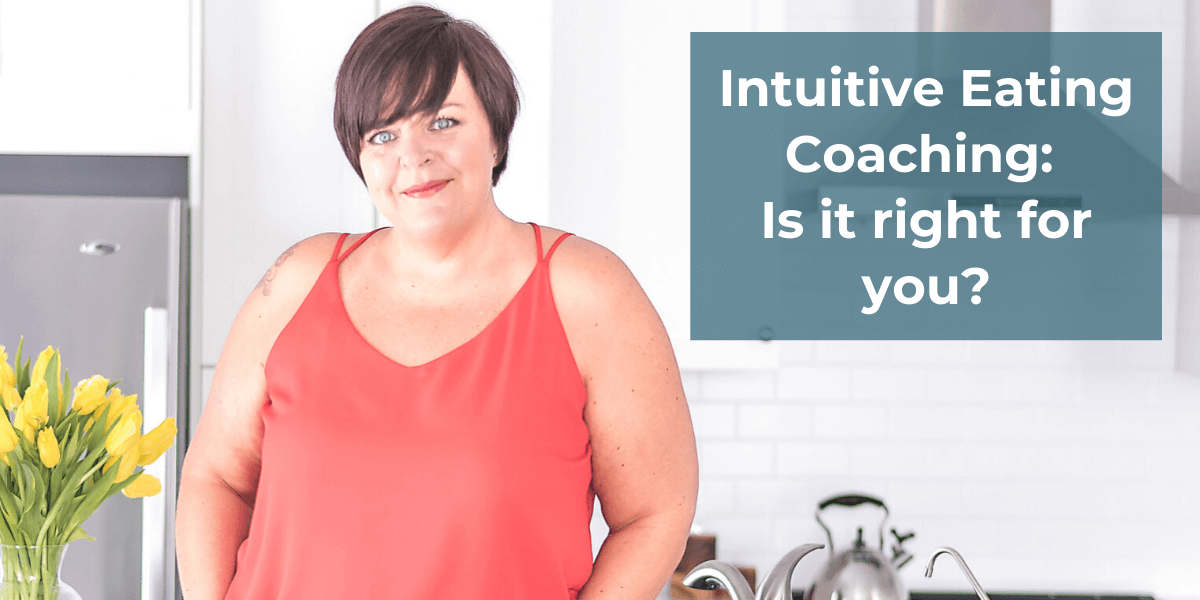
What is intuitive eating coaching?
How do you teach intuitive eating?
Can intuitive eating really work?
What is intuitive eating?
Intuitive eating is a proven and well-researched self-care eating framework that teaches us to have a healthy relationship to food, empowering you to trust your ability to meet your needs, distinguish between physical and emotional hunger and ultimately develop body wisdom.
The intuitive eating definition is a framework to recover from years of chronic dieting and diet culture. And it’s focus is on rebuilding a relationship of trust and respect towards your body while supporting your health and happiness.
Our unique approach, The Going Beyond The Food Method uses the frameworks of body neutrality alongside to intuitive eating and cognitive behavioral coaching. We integrate body image coaching along with intuitive eating specifically body neutrality has a a focus to avoid self-hate while simultaneously relieving you from the pressure of having to love your body. I shared the foundation of this approach since 2016 in my intuitive eating podcast, “The Going Beyond Food Show”
What is intuitive eating coaching?
That’s when me and my team comes in.
Over the last 8 years I have created the Going Beyond The Food Method, created and develop the curriculum of Undiet Your Life Coaching Program. Over in the last 3 years I focus my work on creating The Non-Diet Coaching Certification a program uniquely developed to train health professionals in the Going Beyond The Food Method. A number of graduates from the Non-Diet Coaching Certification are part of my coaching team at Beyond The Food along side with me as the lead Certified Non-Diet Coach.
As your partner, your Certified Non-Diet Coach a non-diet coach will support you in understanding and removing what is in the way of you becoming an intuitive eater. And what is in the way of your life without food and weight obsession Beyond The Food.
Your Non-Diet Certified Coach will challenge you to say “no” to going through the old patterns and enthusiastically say “yes” to the possibilities that are available to you with intuitive eating and body neutrality.
The journey of intuitive eating coaching
The journey begin by taking an overview of your life and dieting history and identifying areas that need action and/or attention. Then your Certified Non-Diet Coach will complete a series of assessment on your eating habits, body image and mindset.
Then you Certified Non-Diet Coach will assist you in establishing clear, concrete, measurable goals and support you in deploying a plan to achieve these goals. There is no old habits, patterns you cannot shift when coached by a professional coach. You are capable of so much more than you know or are currently creating.
At Beyond The Food we do not believe there is a one-size-fits-all approach when it comes to 1-on-1 coaching. We create a unique strategy for you, individualized based on your past, specific needs and goals. Your Certified Non-Diet Coach responsibility is to guide you and supporting into solving the roadblock as they come along the path to your goals and keep your moving forward when you want to quit.
We listen with understanding and 100% confidentiality. Our relationships with my clients are intimate, honest, and rewarding. As we move closer to your goals being acheive the relationship with your coach will naturally evolve in a way that best supports you.
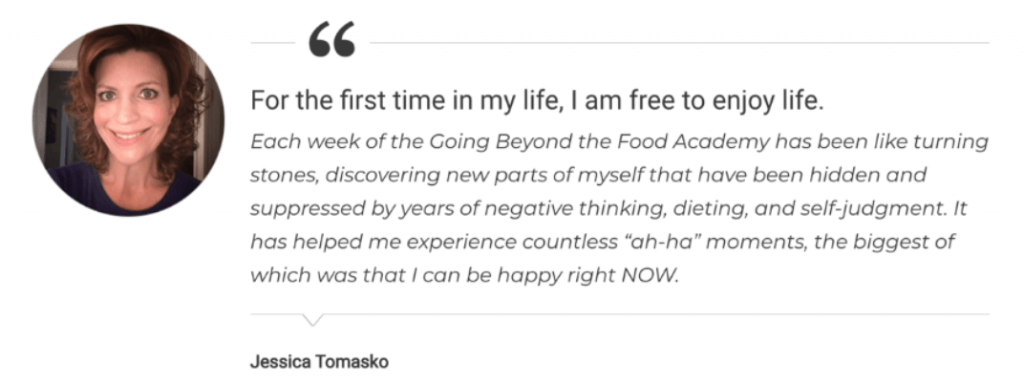
How do you teach intuitive eating?
Our work together is organized following my proprietary methodology The Going Beyond The Food Method™️. As an intuitive eating coaches, the outcome of our work together is a neutral relationship of trust and respect towards your body and its innate wisdom.
Our approach is unique for many reasons. We teach intuitive eating & body neutrality through the lenses of a lived experience combined with a holistic and science-based lens.
If you’d like to get a sense of my journey, as the founder of Beyond The Food Method read this article I wrote: Intuitive eating before and after: my story.
Can intuitive eating really work?
Here’s the most fascinating aspect of intuitive eating and body neutrality, it’s that you can’t fail. You can’t fail because it’s not a diet! And because I’m confident in myself and not afraid to sign my own praise… here’s why women love my coaching:
“This experience was life-changing and worth every penny!”
So first thing, know that I’m sharing my experience being an executive coach myself… and I’ve worked with dozens of global coaches personally and professionally. Coaching with Stephanie was life-changing forever and worth every penny you’ll put into it. – Anna Buber Farovich
“My work with Stephanie led me through a massive transformation!”
Stephanie is kind, inspiring and her knowledge and experiences helped me to sort out some issues I was not sure about and led me through a massive transformation both personally and in my business.- Hanka Valaskova
“Stephanie has really changed my life. I’ll never go back to the way it was…”
I’m in the Board of Directors and have a very busy lifestyle, but Stephanie’s coaching on perspective on life, lifestyle and dealing with our food issues has really changed my life. I don’t think I’ll ever go back to the way it was.–Eithne Wait
You can access more videos, audio and written testimonials here.
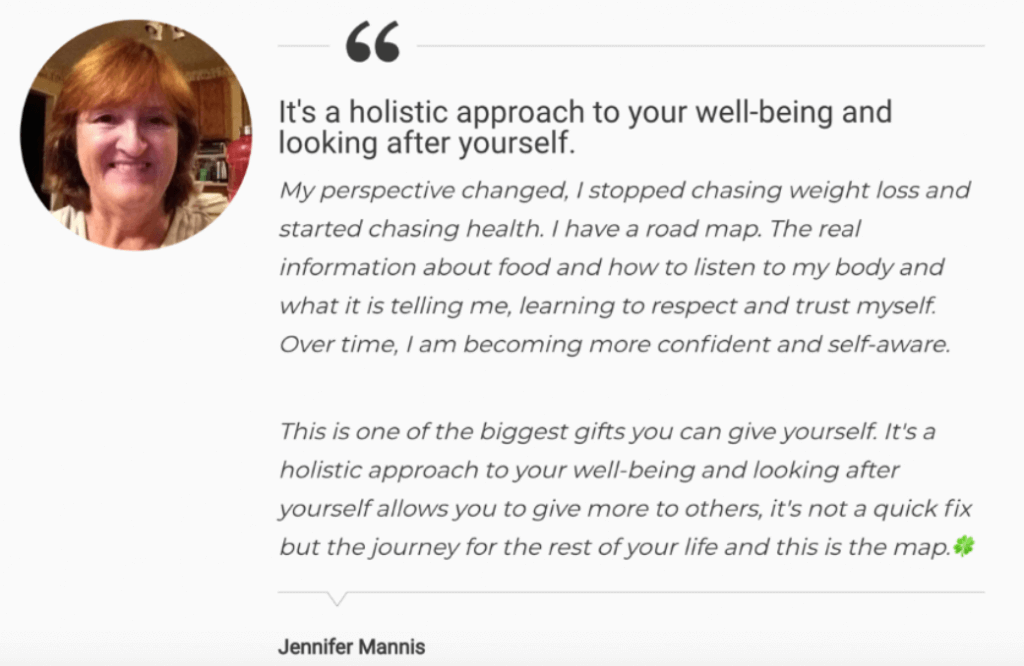
How do I get started?
You can access all of our services on our work with us page. We have a number of programs and service levels enabling us to serve most women:
Free Resources and Masterclasses: Get started and get to know us better!
Private coaching with Stephanie and her team Stephanie and her team of Certified Non-Diet Coaches are waiting to support you in a one-to-one setting with an individualized plan.
Undiet Your Life group coaching program is for women to learn how to eat intuitively, become body neutral, and learn self-coaching at their own pace while being supported in a group setting by Stephanie and her team of Certified Non-Diet Coaches.
Non-Diet Coaching Certification for professionals ready to integrate the Going Beyond The Food Method™️ in their practice and for women wanting to become Certified Coach and build a business coaching other women beyond the food.
How can I know if I’m the right fit for intuitive eating coaching?
If you’ve been on and off diets for longer than you like to admit, think your life will start when you finally lose the weight, while you eat emotionally, binge and hate your body: This is for you!
I had the opportunity to coach Ashley Dorough from The House of Dorough in the context of her blog and she filmed part of our session. I would encourage you to listen to the part of her first session. If you’d like to see more videos visit her IGTV account.
Part 1 – Is this your story too? -Click to watch
Part 2 – Why it’s beyond
I’m really busy now how will I find the time?
Well, that’s part of the journey. Discovering what is holding us back from having the time to take care of ourselves. The truth is, there’s never going to be enough time. Diet brain keeps you stuck in your patterns and cycle because you are waiting for the right time when you can do it all perfectly.
Listen to Ashley describe her self-care story… and my coaching.
Will I lose weight during the intuitive eating coaching process?
Well, that’s part of the journey. Discovering what is holding us back from having the time to take care of ourselves. The truth is, there’s never going to be enough time. Diet brain keeps you stuck in your patterns and cycle because you are waiting for the right time when you can do it all perfectly.
Listen to Ashley describe her self-care story… and my coaching.
Will I lose weight during the intuitive eating coaching process?
First, know that it’s completely normal for you to want to lose weight. We live in a society that is filled with weight stigma and thin ideal. That’s diet culture. Intuitive eating and body neutrality goal aren’t to help you lose weight. If you are focused on weight loss, it will actually undermine the process. While some people lose weight, others don’t. Our journey together is not about weight loss.
Listen to Ashley asking me “Is it ok if I want to lose weight?” … and my coaching.
If would like to access more science-based information on this topic visit these 2 articles on my intuitive eating blog: Health beyond dieting and Intuitive eating & BMI.
I have tried so many diets will intuitive eating coaching work?
Good news, it’s not a diet. Diets have a 91-95% failure rate on 3-5 years’ timeframe so no surprise it didn’t for you either. Dieting leads to weight gain. This process is completely different from dieting because the goal is not weight loss, it’s about learning to appreciate our body and rebuild a relationship of trust and respect with ourselves and our body.
Listen to Ashley and me answering the question “If it’s not about weight loss then what is it about?”
Why can I just do one session with you?
How long did it take you to get here? 1 hr or 10, 20, 30 years? I know for me it took 25 years and hoping to undo it all in 1 hour kept me stuck. The fear of commitment is in part the way in which your Diet brain operates to keep you stuck. Committing your time, energy and resources, your own transformation is part of the learning. If this is too much for you now, consider the environment of intuitive eating group coaching where we use the same methodology but no direct interaction with me.
The Ultimate Guide to Intuitive Eating and Diabetes
At first glance, integrating intuitive eating and diabetes management may seem counter-intuitive. And for many reasons, most approaches to managing diabetes are based on weight loss and carbohydrate life-long restriction.
But there’s a major problem with these two approaches: a massive failure rate and unsustainability long term. As of today, diabetes is a noncurable disease, requiring that requires a treatment plan that can be maintained for the rest of your life. Unfortunately, dieting has a failure rate in a 2-5 years period.
And that’s when a weight-neutral approach to diabetes comes in!
Diabetes and weight-neutral approach to health
Switching from judgment to curiosity with food
Free Audio Guide to intuitive eating and diabetes
Intuitive Eating free mini-course
Diabetes Specific free resources
Diabetes and weight-neutral approach to health

A weight-neutral approach to health is based on the idea that your health status or risk level can’t be determined solely by your weight.
Moreover, it acknowledges that your weight is determined by a complex set of genetic, metabolic, physiological, cultural, social, and behavioural determinants. Many of these factors are either difficult or impossible to change.
Instead of focusing on a weight-oriented outcome to the management of diabetes, weight-neutral programs teach you to take charge of the factors that can help diabetes within your control.
So taking charge of these factors among many others will help you improve your well-being and management of diabetes regardless of your weight.
Here are just a few of these factors:
1. Stress management
Stress is an important contributor to pathological conditions in humans. And hormonal changes that occur during acute and chronic stress situations can affect glucose homeostasis. In fact, a large body of evidence supports an association between stress and hyperglycemia (diabetes).
2. Weight stigma
The experience of discrimination and stigma around one’s body has a direct influence on health behaviours and stress levels. And research is pointing at weight stigma as a major contributor to health outcomes including diabetes.
3. Movement
Consistent gentle & enjoyable body movement has proven time after time to reduce blood sugar dysregulation. Moreover, the recommendation from the American Diabetes Association is clear on the benefit of all forms of diabetes.
4. Body Dissatisfaction
Internalize weight stigma leads people to become increasingly dissatisfied with their bodies and make poor health decisions.
And a 2013 study published by the Journal of Obesity found no link between body weight and the way women feel about themselves. However, the findings show a link between how women feel about themselves and their health behaviours. In other words, the better they feel about their bodies, the more likely they are to take care of themselves leading to a better health outcome.
What is intuitive eating

When people ask what eating intuitively means, this is the definition that usually comes to mind: “a self-care eating framework that uses your body’s internal cues of hunger, fullness, and satisfaction to guide your eating behaviour.” It’s literally trusting your gut! Note that this intuitive eating definition emphasizes self-care and not weight loss.
Intuitive eating, an evidence-based approach to eating that allows you to be the expert of your own body. So this approach enables you to develop a healthy relationship with food and your body. And it teaches you to trust your ability to meet your own needs, distinguish between physical and emotional hunger, and ultimately develop body wisdom.
And eating intuitively is a well research process and proven health framework supported by more than 100 intuitive eating studies as of 2019.
Nutrition and Diabetes
There is no doubt that what we eat influences our blood sugar. And it’s a known fact that carbohydrates will increase our blood sugar level . However, not all carbohydrates have the same influence on the level of blood sugar.
Furthermore, studies are showing that individuals’ blood glucose levels respond very differently to different foods. So this is what we call bio-individuality. In other words, there’s no one “diabetic diet” for every person diagnosed with diabetes. And while there are definitely generalities with eating and lifestyle that can be helpful, there isn’t a one fit all approach.
An individual needs to explore what works for them and what doesn’t for them. So as life unfold the individual reaction to certain food will also vary and change with time.
This is how intuitive eating is the perfect approach to diabetes.
Switching from judgment to curiosity with food
Intuitive eating is part of a Health At Every Size™️ approach to diabetes and a global weight-neutral approach to health.
Intuitive eating will teach you to become curious about how certain food makes you feel. And to pay attention to how your blood sugar is post-meal, be attentive to how you feel after eating, and your overall level of energy.
Being an intuitive eater will allow you to engage with food objectively without judgment. So it puts you back into power when making your food choice. And it helps you build trust and respect for your body instead of fear and hatred.
Intuitive eating is really about switching to love instead of fear when it comes to food and diabetes.
Audio guide to Intuitive Eating and Diabetes
This audio guide (podcast) is a collaboration with two of my colleagues. Both are experts in the treatment of diabetes under the lens of Health At Every Size and Intuitive Eating.
Rebecca Scritchfield is a Washington DC-based Registered Dietitian Nutritionist and Certified Exercise Physiologist. And she has been practicing weight inclusive, HAES care since 2008. Also, Rebecca is the author of the book Body Kindness and the host of the Body Kindness podcast.
Glenys Oyston is a Los Angeles-based Registered Dietitian Nutritionist. And she has been practicing a HAES® philosophy since 2010 and has provided extensive diabetes education for the past five years. Also, Glenys is the co-host of the Dietitians Unplugged podcast.
What we cover in this free audio:
- Is weight loss the solution to treating diabetes ?
- 5 most frequent myths about diabetes debunk
- The Health At Every Size approach to treating diabetes
- Where to find resources to integrate a non-restrictive approach to preventing and treating diabetes.
Diabetes Specific Resource
Dr. Lindo Bacon has written a guide to help people navigate the journey of integrating the Health at Every size principle in their approach to diabetes management. You can access this free Health At Every Size guide here.
My colleagues Rebecca Scritchfield & Glenys Oyston both registered dietitians who know that self-care for diabetes doesn’t have to involve restriction and weight loss have created an education & support group. The Health at Every Size® (HAES®) Care for Diabetes education and support group can be accessed here.
Get started – Next steps
Are you are ready to learn more about how you can approach your health with a weight neutral lense?
You can access all of our services on our work with us page. We have a number of programs and service levels enabling us to serve most women:
Free Resources and Masterclasses: Get started and get to know us better!
Private coaching with Stephanie and her team Stephanie and her team of Certified Non-Diet Coaches are waiting to support you in a one-to-one setting with an individualized plan.
Undiet Your Life group coaching program is for women to learn how to eat intuitively, become body neutral, and learn self-coaching at their own pace while being supported in a group setting by Stephanie and her team of Certified Non-Diet Coaches.
Non-Diet Coaching Certification for professionals ready to integrate the Going Beyond The Food Method™️ in their practice and for women wanting to become Certified Coach and build a business coaching other women beyond the food.
13 Intuitive Eating Myths You Shouldn’t Believe
These intuitive eating myths come as no surprise since intuitive eating has been named the #1 nutrition trend for the year 2020.
Since it is such a departure from dieting it’s bound to have lots of misconception, fear-mongering (Thank you, diet culture!) and yes false beliefs surrounding this practice.
These myths cause confusion and doubt. As a nutritionist and expert, I get all sorts of questions like:
“Is intuitive eating healthy?”
“Will eating intuitively make me gain weight?”
“Will intuitive eating work for me?”
In this article, I dispel the biggest 13 intuitive eating myths that I’ve come across since I started my own intuitive eating journey. And in the process of debunking these intuitive eating myths, I hope to help you better understand what eating intuitively means and what it can do for you.
Here’s a quick summary of all these intuitive eating myths:
Myth 1: Intuitive eating is unhealthy.
Myth 2: Intuitive eating will make me gain weight.
Myth 3: Intuitive eating means I’ve given up on myself.
Myth 4: Intuitive eating is simply the “eat when you are hungry and stop when you’re full” diet.
Myth 5: You can be a good intuitive eater or a bad one.
Myth 6: You can count macros and still be an intuitive eater.
Myth 7: Intuitive eating means you eat whatever you want, whenever you want.
Myth 8: Intuitive eating is for healthy-minded people. I won’t do it right and I’ll gain weight.
Myth 9: Intuitive eating doesn’t solve my “over-eating problem.”
Myth 10: Intuitive eating doesn’t lead to weight loss.
Myth 11: Intuitive eating will make you binge on food that you shouldn’t be eating.
Myth 12: Intuitive eating is impossible because of food addiction, and certain foods are addictive.
Myth 13: Intuitive eating is only for people with eating disorders.
Before we dive into these myths, let me first explain what intuitive eating means.
What is Intuitive Eating?
The best and most accurate intuitive eating definition I can give is this: “a self-care eating framework that uses your body’s internal cues of hunger, fullness, and satisfaction to guide your eating behavior.”
Note that this is an eating framework, not a diet program. Unlike diets that dull your sensitivity to your body’s eating cues, intuitive eating encourages you to listen to your body and helps you develop trust in your body’s innate wisdom. Intuitive eating is supported by 100’s of studies showing the health benefits of intuitive eating.
Now let’s look into the 13 intuitive eating myths one by one:
Myth 1: Intuitive eating is unhealthy.
This comes mainly from the fact that intuitive eating allows you all kinds of food, even the ones you may consider “unhealthy.”
Fact: Yes, when you eat intuitively, you can all the foods, because part of the intuitive eating process is to give yourself unconditional permission to eat. This means if you start intuitively, you will likely eat the food that you’re currently restraining. Perhaps that’s carbs if you’re doing keto or animal products if you’re vegan.
Now, one interesting fact to understand is that the World Health Organization defines health as “a state of complete physical, mental, and social well-being, not merely the absence of disease or infirmity.”
This means that health is not just all about the food you eat.
Health is also the quality and quantity of sleep you get, your mental health, emotional stability and balance, spiritual health, movement, etc.
Researchers have found that food restriction has negative physical and psychological side effects. This means food restriction affects your mental health.
For instance, studies reveal that women who go on a diet and restrict food have higher levels of cortisol in their bodies. Cortisol is a hormone that our body releases in response to stress. This hormone is linked to higher levels of inflammation, high blood pressure, change in blood lipids, and other negative factors that can adversely affect your health. Also, the restriction has been associated with depression and anxiety.
We also know that scientific studies associate weight cycling with morbid health conditions, meaning that being caught in an endless cycle of restricting and overeating leads to negative health consequences.
So is intuitive eating healthy? The answer is a big YES because it prevents all the negative side effects associated with dieting!
Not only that…Many of the intuitive eating benefits such as lower cholesterol levels, decreased stress, and improved mental health is backed by scientific evidence!
Myth 2: Intuitive eating will make me gain weight.
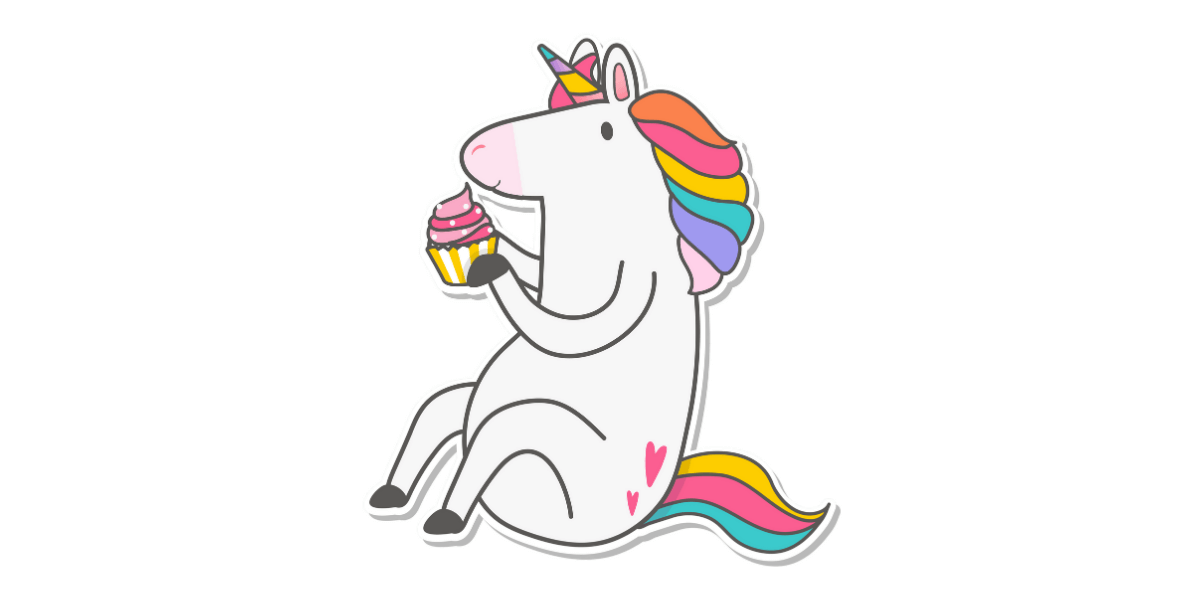
Another version of that myth is intuitive eating causes weight gain.
Now, before I go any further, I want to validate the desire for weight loss that you might have. These are real and consistently encouraged in the society that is laden with weight stigma. Weight stigma is also known as weight bias, weight-based discrimination, and also stereotyping based on a person’s weight.
So it makes perfect sense that you are afraid of gaining weight or that you desire to lose weight.
Fact: Intuitive eating DOES NOT cause weight loss or weight gain all the time. The truth is, none of us knows what the body will do as a result of changing the way you eat. If a dieting coach or guru predicts that you will lose 20 pounds in four weeks as a result of their new diet, that is BS.
We don’t know what’s going to happen with your body when you start becoming an intuitive eater. No one knows except your own body!
But we know that, when you start eating in accordance to your body’s natural hunger and satiety cues, this eating behavior will send information to your hypothalamus, that gland in your brain that regulates the hormone production around appetite and weight regulation.
Your hypothalamus establishes your set point, which is the weight range which your body believes to be healthy for you. Intuitive eating will take you to that weight range.
Now, that weight range may not be what you want. It may not be the “ideal” BMI for you. But your body’s innate wisdom knows it’s best for you.
(You can read my blog post about your body’s setpoint if you want to have a better understanding of the topic. Also, here’s a study that shows that Health At Every Size has more positive outcomes than dieting for weight loss.)
Intuitive eating will not either make you lose weight or gain weight. It will only support doing your body what is best for you.
Myth 3: Intuitive eating means I’ve given up on myself.
Another version of that is “Intuitive eating is lazy” or “Intuitive eating is just an excuse to eat whatever you want and not have to practice dietary control.”
Fact: If you think this myth is true, it means that your self-worth is based on how you engage with food. Likely your self-image is tied to the size of your body or looks and food is the weapon of choice to control your body appearance.
The truth is we were all born worthy. Along the way, someone came and led us to believe that we needed to earn our worth. Perhaps a few years later, dieting came into your life and then you associated a thin body with worthiness.
Then, after a few years of dieting, you associated your eating habits with how worthy you are. Thus, in your mind, eating “everything” meant you weren’t worthy.
Also, people judge those who eat intuitively as “lazy” because they associate their self-worth with dieting or eating “healthy.”
But does intuitive eating mean you’ve given up on yourself and that you’re lazy? Quite the contrary. It means that you are actually trusting yourself and that you have removed your self-worth from the way you look and the way you eat and reconnect to your innate power.
Myth 4: Intuitive eating is simply the “eat when you are hungry and stop when you’re full” diet.
Fact: This seems to be one of the most common intuitive eating myths, because the diet culture is prevalent in our society. When you have this myth in mind, that’s your diet brain speaking to you. It makes you believe that you must control what you eat in one way or another and that you are innately not smart, wise, or good enough to know what you should eat. Your diet brain makes you fall for the next diet or repeat the same diet.
The truth is, intuitive eating is not just another diet. Rather, it’s an entire eating framework. It’s a philosophy that changes your entire relationship with food. There’s more to it than just what you eat, when you eat, and how much you eat.
Intuitive eating is about the entire relationship, what comes before and after. This means changing your perception around how you should engage with food and what it means to be engaged with food. I’ve broken down how to eat intuitively in 5 easy steps.
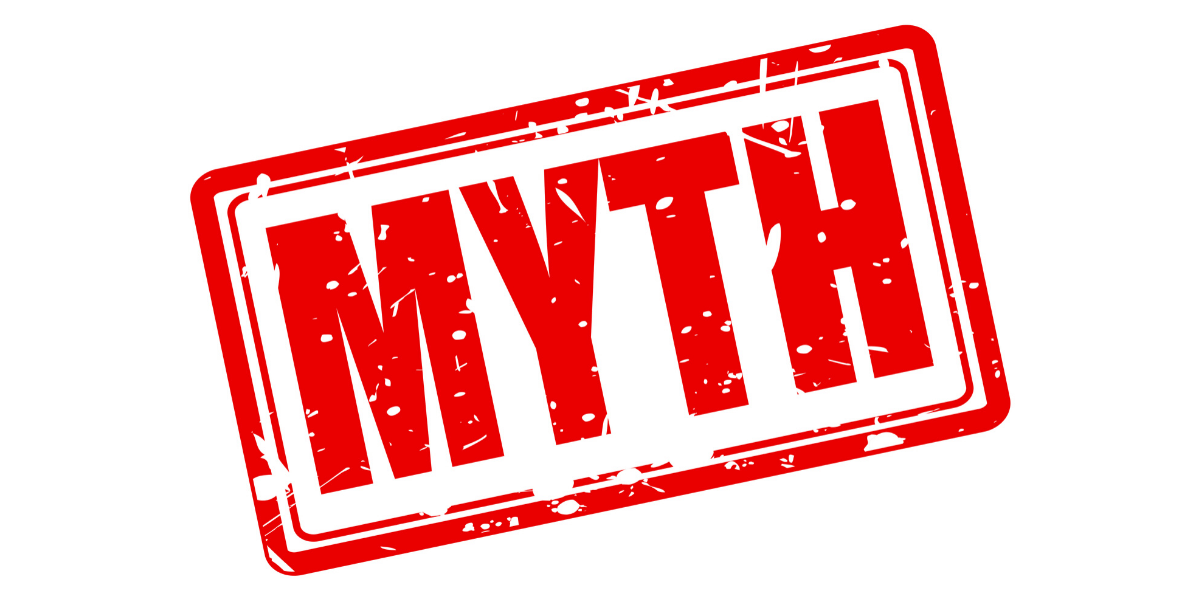
Myth 5: You can be a good intuitive eater or a bad one.
In other words, intuitive eating works for some people and it doesn’t work for others.
Fact: We know that diets don’t work.95% failure rate within 1-5 years. As a result, you have worked really hard at a process that doesn’t and adopting on the way perfectionistic behaviors and an all-or-nothing mindset. With each diet, your brain gets rewired to see food, exercise, lifestyle, health, behavior as good or bad or “all in or all out.”
The longer you diet, the longer you maintain this all-or-nothing frame of mind. I’ve worked with women who are typically 40 plus and that have been dieting at least 10, 15, 20, 30 years. What I’ve found is that this all-or-nothing mindset has spread throughout their entire life.
That’s why Going Beyond the Food Academy is a life-changing process. The first step of the program is to learn tools to shift your mindset away from “diet brain.” Subsequently, this changes the way you interact with your whole life.
Is it possible for you to be good or bad at intuitive eating? The answer is no because intuitive eating is a process, not an end goal. It’s a way of being.
Myth 6: You can count macros and still be an intuitive eater.
As intuitive eating becomes more popular, I’ve been seeing other versions such as keto-intuitive, flexible eating with intuitive eating, vegan intuitive, intuitive cheat day, etc.
Fact: People are getting tired of dieting. Their bodies are getting run down. Their emotions are all over the place. People are looking for another way. And so, diet culture is repackaging and renaming their diet programs so they could fit into intuitive eating because that’s what people want.
However, none of those programs is intuitive eating.
Their diet culture version of intuitive eating is the same old diet programs with “intuitive eating” attached to them. They do this so you’ll feel better about their programs and get you to be more attracted to their products.
Any rule around food is not intuitive eating. When you have rules as to what you should be eating, that means you don’t trust your body. Can you count macros or be keto-intuitive or a flexible eater and still be an intuitive eater? The answer is no.
Myth 7: Intuitive eating means you eat whatever you want, whenever you want.
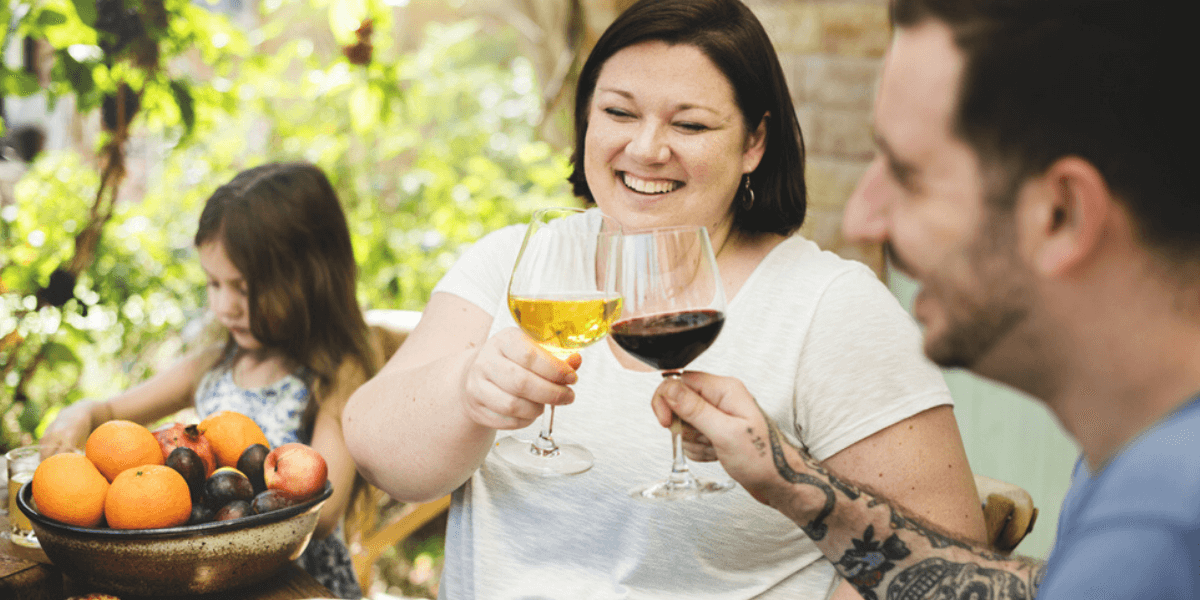
Another version of this myth is “You can’t eat healthy on intuitive eating. Intuitive eating means intentionally eating unhealthy food.”
Fact: In a way, this is true. But then so what? Why is it a problem to eat what we want whenever we want?
Human’s love dichotomy. Labeling good or bad food makes us feel safe… It makes us feel like we are in control which cannot be further from the truth.
When you transform your eating pattern from dieting to intuitive eating, you have to lift all the rules around food.
There’s a period of time, the honeymoon period, from the moment you begin to when you become at peace with food where you’re trying to figure out what it means for you to eat when you want and whatever you want.
I call it in my program the elastic band period, where you go from restricting to finally achieving food freedom. Imagine pulling an elastic band towards you and then releasing it. What would happen? The elastic will go completely the other way. Then, it will rebound to restriction and go the other way again.
Every time it does a loop, it’s going to have less force in it. Then with time, it’s going to stabilize and be back to normal. That’s what happens when you become an intuitive eater.
When you release the rules, your reptilian brain is like “Holy crap. You mean we can eat the carbs we’ve been restricting for years? Let’s eat it all!” That’s what happens.
But it doesn’t last long, because intuitive eating teaches you to respect your body. When you eat too much of the food that was forbidden before, you likely not feel your best. Ever tried to eat donuts at every meal for a week?
You have to satisfy your reptilian brain and to really prove to your body that there are no more rules. Then your body will stabilize itself.
Myth 8: Intuitive eating is for healthy-minded people. I won’t do it right and I’ll gain weight.
Another version of this myth is, “Intuitive eating works only for certain people. I’m different.”

Fact: Intuitive eating is not another diet or a new scientifically-created way of eating. It’s innate in all of us. We were all born intuitive eaters.
Just observe a baby. When she feels hungry, she cries. When you feed her, she stops crying. Then, she stops feeding when she’s full and falls asleep. The cycle begins anew she feels hungry again.
Intuitive eating is simply going back to the way you were born.
Now, why would you feel it’s not for you? Your diet brain is partly responsible for that. It’s saying, “You know, girl, you’ve been dieting for years. Look where you are today. You’re not doing this right. You have to have a lot of restriction and control. Otherwise, you’ll lose control. You’re not good enough to do intuitive eating.”
Is intuitive eating only for certain people? Absolutely not. It’s for everyone because we all have it within us to be an intuitive eater. But if you want to be 100% sure, take the intuitive eating quiz.
Myth 9: Intuitive eating doesn’t solve my “emotional eating problem.”
Fact: There is only one truth around that. Intuitive eating does prevent emotional eating. Now, here’s the thing. I didn’t say solved it. I said to prevent it.
If you find yourself saying that eating intuitively won’t solve your emotional eating problem, again, it’s your diet brain speaking. You have been programmed to seek an external solution to an internal problem. You internally developed the behavior of using food as a soothing or regulate your emotions. This behavior is what we commonly refer to as emotional eating.
And now, you want a quick fix, a formula to come along and tell you how to prevent that. That’s the model of dieting. It’s all external. It’s just about food.
Intuitive eating will not solve the problem of emotional eating… but you will. It’s really up to you. Through the process of intuitive eating, you will figure out why you’re using food to cope with your emotions. Here’s another scoop for you: emotional eating is normal. Emotional eating is a gift when understood properly.
Myth 10: Intuitive eating doesn’t lead to weight loss.
Another version of that is “Intuitive eating can work for weight loss.”
Fact: Intuitive eating is not a weight loss program. The purpose and the goal of intuitive eating have nothing to do with weight management.
Now, because intuitive eating is becoming more and more popular, diet culture has latched onto this trend. It sells intuitive eating as a way to lose weight.
But I’m going to tell you this: if you see intuitive eating being marketed as a weight management program, then it is NOT really intuitive eating.
“… but I need to lose weight” the root causes of the desire to lose weight is what needs to be addressed for most women.
Myth 11: Intuitive eating will make you binge on food that you shouldn’t be eating.
Another version of that is “I’ll eat intuitively, but I’ll just eat junk food.”
Fact: If that’s what your body needs, then yes, you’ll binge on food you shouldn’t eat.
It may make you uncomfortable because you might believe that your body does not know what it needs. Thus, you might be thinking that you need to rely on someone or something else to tell you what your body needs.
The part of the intuitive eating journey is coming back to a respectful relationship between you, the spirit, and your body. This means that you do support your body through healthy behavior. In response, your body supports you through life.
When you experience a desire to binge or overeat, it’s because your body is trying to tell you something. The body is trying to point out to you that you are in a state of imbalance, that is something inside you is not okay, and it needs to comfort itself through food.
So does intuitive eating lead you to binge on food you shouldn’t eat? The answer is no. But it does make you more aware of the messages that your body tries to send you.
Myth 12: Intuitive eating is impossible because of food addiction, and certain foods are addictive.
Now, among the intuitive eating myths, this is a loaded one. Before anything else, if you are currently holding the belief that there is such a thing as food addiction or sugar addiction, I would refer you to episode 153 of The Beyond The Food Show. We had a food addiction specialist actually do a complete analysis of my eating pattern and my eating history. I shared all the results publicly with everyone via the podcast and a video interview.
She came to the conclusion that the Going Beyond the Food Method was extremely effective in healing or helping people to overcome what they believe to be sugar addiction or food addiction.
Fact: The belief that food can be addictive is debatable. At this time there is no study demonstrating human addiction to food and sugar.
The only study showing demonstrating evidence of sugar addiction in a rat model and researcher came to the conclusion that sugar addiction in the rats was only present when sugar was restricted.
If you’re currently thinking you are addicted to food and or sugar, I highly recommend that you seek help immediately.
Is intuitive eating impossible because of food addiction? The straight answer is no. But if you struggle with food or sugar addiction, there’s a deeper level of work that you need to do before you can actually become an intuitive eater.
Myth 13: Intuitive eating is only for people with eating disorders.
Fact: No. In fact, it is not, because intuitive eating is the natural way that humans engage with food. We were all born with this propensity.
Now, intuitive eating is used in the treatment of eating disorders. Why? Because it’s very effective. People who suffer from eating disorders are actually not connected to the innate cues of hunger and fullness and satisfaction. They use food in a disordered way to meet their unfulfilled needs.
When your eating behavior is causing harm to you physically, emotionally, or mentally, that’s when you need to seek professional guidance and help immediately.
Intuitive eating is not only for eating disorders, although it is used to treat eating disorders. It is for ALL of us.

Bonus: Myth 14: Intuitive eating has no scientific basis.
Fact: This is by far the easiest of all intuitive eating myths to debunk. Intuitive eating is a proven and well-researched eating framework. As of today, there are well over a hundred intuitive eating research studies published, most of them peer-reviewed, that demonstrate the efficacy of intuitive eating.
To this day, there is not one scientific research that shows any kind of danger associated with this eating framework.
Intuitive eating has a scientific basis. There will be more research around it as more and more people become intuitive eaters.
Ready to Begin Your Intuitive Eating Journey?
Now that I’ve debunked all these intuitive eating myths for you, I hope you have a better understanding of what eating intuitively really is. So how do you feel about intuitive eating now? Are you ready to start becoming an intuitive eater?
Here’s what I recommend that you do: First you can access all of our services on our work with us page. We have a number of programs and service levels enabling us to serve most women:
Free Resources and Masterclasses: Get started and get to know us better!
Private coaching with Stephanie and her team Stephanie and her team of Certified Non-Diet Coaches are waiting to support you in a one-to-one setting with an individualized plan.
Undiet Your Life group coaching program is for women to learn how to eat intuitively, become body neutral, and learn self-coaching at their own pace while being supported in a group setting by Stephanie and her team of Certified Non-Diet Coaches.
Non-Diet Coaching Certification for professionals ready to integrate the Going Beyond The Food Method™️ in their practice and for women wanting to become Certified Coach and build a business coaching other women beyond the food.
Intuitive Eating to Lose Weight: Your Set Point First
“I’m done with dieting… I’ve had enough. I can’t go on one more diet!”
You’ve probably said that at one point. You start looking for an option. Then you find intuitive eating, and it sounds interesting! No more food restriction. You follow your hunger and fullness cues instead of counting calories. You want to try intuitive eating to lose weight… because food freedom sounds oh so appealing and exciting after years of dieting!
More and more women are turning to intuitive eating these days. It’s “cool” to be anti-diet, and even cooler to be an intuitive eater. Intuitive eating has been proposed as the next big “diet trend” in the next decade ahead…and that’s a big problem!
Typically, when we refer to “diet trend,” we refer to ways of eating to achieve weight loss. That’s what we expect, and for most of us, that’s what we seek. We think we need to lose weight. Notice that the keyword here is NEED. We want to lose weight and we don’t want to diet anymore so intuitive eating seems to be the perfect option.
It’s normal to want to lose weight
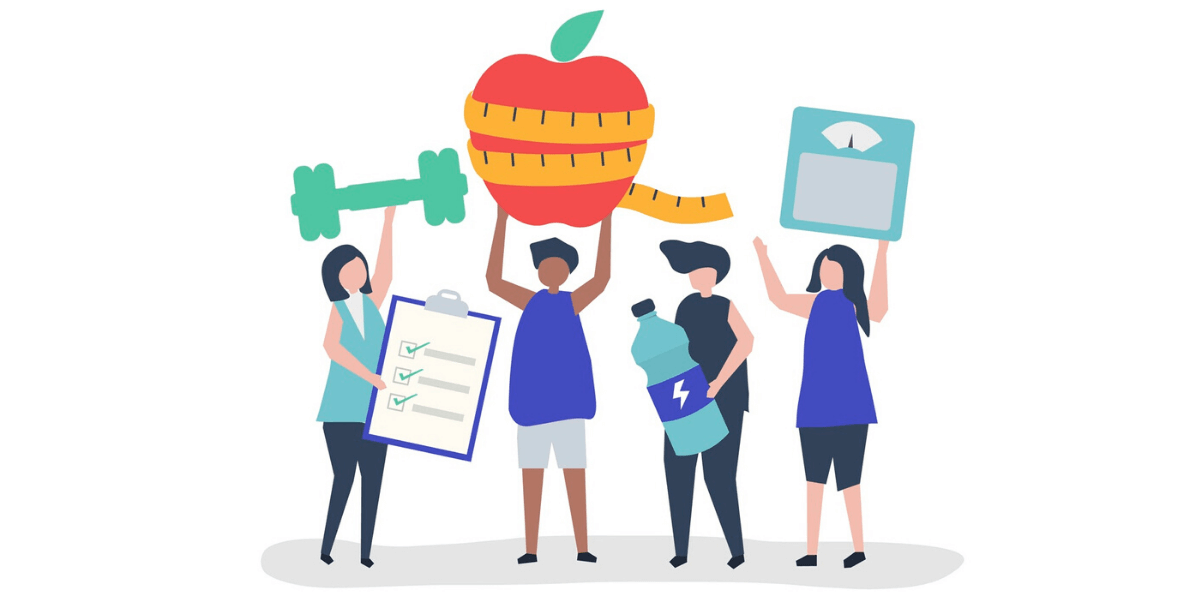
I want to validate those weight loss desires. Those desires to modify your body to fit the “thin ideal” are real and constantly encouraged in a society that is laden with weight stigma and fatphobia. It makes perfect sense that you have that desire and that you think you need to lose weight.
If you find yourself asking the question, “How can I practice intuitive eating and still lose weight?” then this post is for you. And so, I’m writing this blog post to help you understand what intuitive eating is about, how your body maintains a certain weight through your set point, why it’s useless to fight against this mechanism through dieting, and what you can do instead.
You will learn:
Will intuitive eating lead to weight loss?
Homeostasis and happiness set point theory
Identifying and manipulating your set point
How to get started with Intuitive Eating
What is Intuitive Eating?
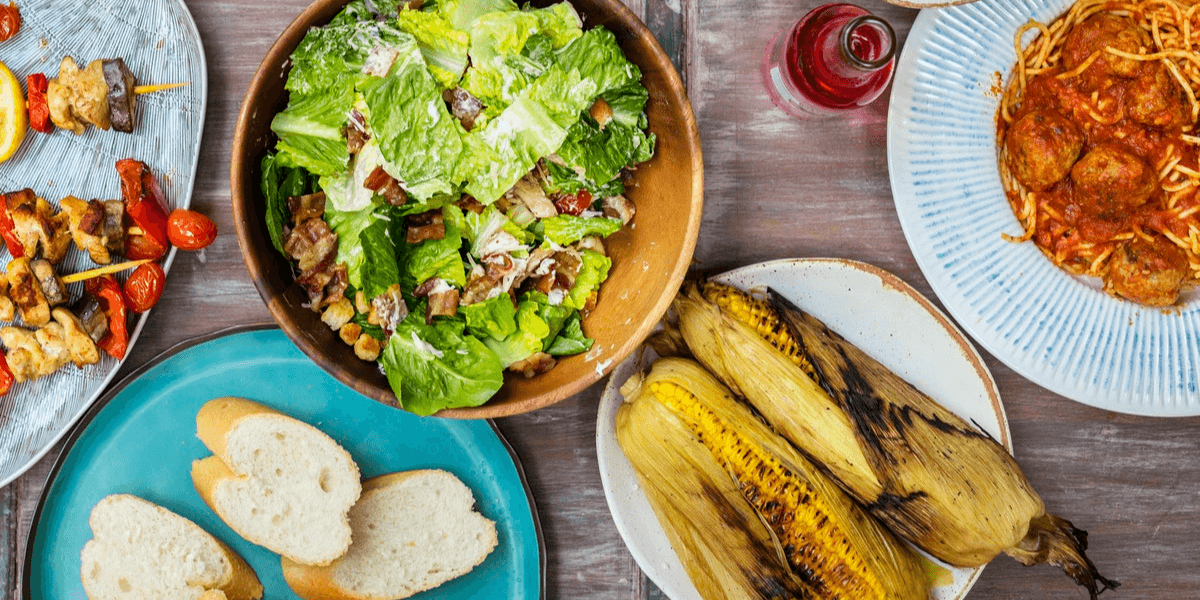
If people ask for an intuitive eating definition, this is what I usually give them: “a self-care eating framework that uses your body’s internal cues of hunger, fullness, and satisfaction to guide your eating behavior.” Notice that this definition emphasizes the body attunement element of intuitive eating, meaning that you need to listen to your body in order to eat intuitively.
This approach to eating allows you to develop a healthy relationship with food and your body. It teaches you to trust your ability to meet your own needs, distinguish between physical and emotional hunger, and ultimately develop body wisdom.
Should you try intuitive eating to lose weight?
If someone who claims to be a health professional tells you that you’ll lose weight with intuitive eating, run the other way! No health professional can rightly claim that Intuitive Eating leads to weight loss. I’ll explain why.
Rejecting the diet mentality is the first principle of intuitive eating. Focusing on weight loss will only hinder your progress as an intuitive eater.
Does that sound surprising? Well, it shouldn’t if you understand what eating intuitively means.
Intuitive Eating is based on interoceptive awareness or the ability to perceive physical sensations inside your body. This means, to be able to eat intuitively, you need to connect with your body and listen to your body’s “messages.”
In contrast, focusing on weight loss is based on external rules. It dulls your interoceptive sense and leads to body-doubt. It makes you think that something is wrong with you just because you’re not losing weight as you expected. Thus, you’re likely to think that intuitive eating “doesn’t work.”
While it’s true that some people lose weight when they eat intuitively, weight loss is more of a side effect rather than the focal point of intuitive eating. Some people who eat intuitively don’t lose weight, and that’s okay. Intuitive eating is weight neutral and is aligned with the Health At Every Size approach. (For more info on this approach, I recommend that you read the Health At Every Size book by Linda Bacon.
Time and again, research has proven that dieting for weight loss is not sustainable. Besides, it causes more harm than good to your body and mind. Dieting increases the risk of eating disorders, binge eating, weight cycling and weight stigma.
Intuitive eating to lose weight? Your set point first.
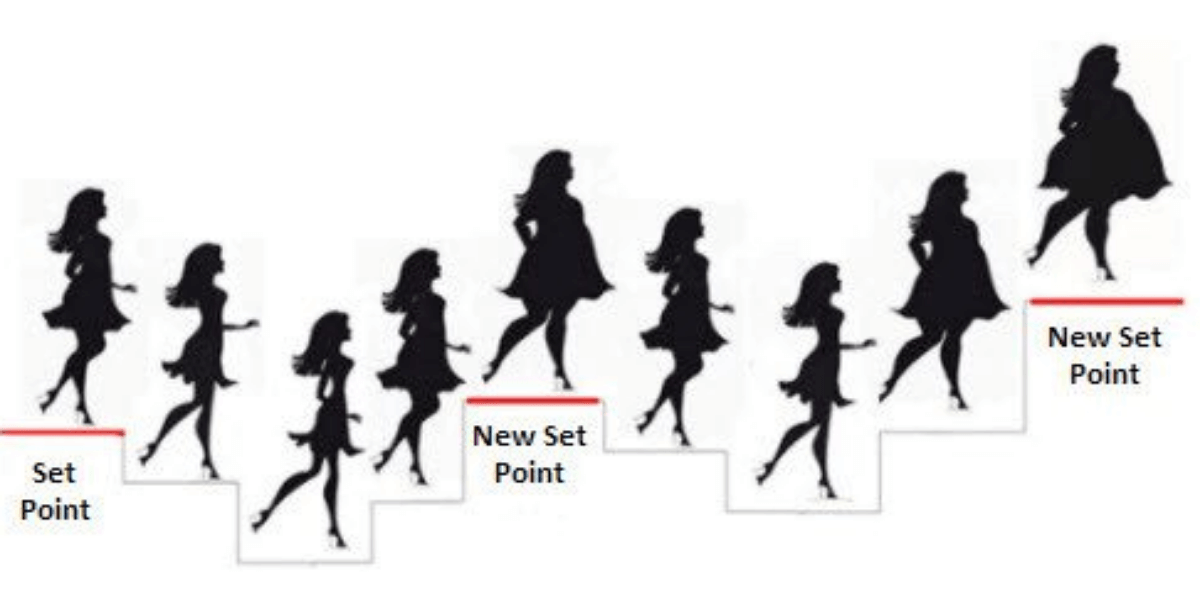
Think of your set point like a natural mechanism that your body uses to maintain a natural weight. This mechanism runs without your intervention. It’s just like how your lungs manage the appropriate amount of oxygen for your body or the way in which your heart manages your blood pressure.
Another fascinating analogy is how your brain automatically gets you steady on a bike even if it’s been 10 years since your last ride. It just happens without you having to think about it. Set point manages your weight in the same way.
In her book Health Every Size, Dr. Lindo Bacon describes our set point as the fat thermostat in our bodies. Your set point acts just like a heat thermostat in a room. When set to a certain temperature, the thermostat will send a message to the heating system to activate when below a determined temperature.
Your hypothalamus is the region of the brain that controls the system in your body that regulates your set point. It sends messages of hunger and fullness to manage your weight. Set point will make you think of the cookies in the cupboard and will also make you say no to the pizza when you’re full.
Our set point manages all the various components in the complex human body that create our body weight. Your set point is your ideal body weight, the body weight you manage naturally without food restriction, deprivation, and over-exercising. It is your weight between diets, the weight at which you can live a non-food or exercise-obsessed life.
The set point is the body’s internal system to maintain healthy weight. One 1970s research study showed that the average weight of a 60-year-old man was only four to five pounds more than the average 30-year-old man. That kind of weight maintenance is no accident and not the consequence of dieting either.
Set Point example
Dr. Bacon has this very powerful example in her book, Health at Every Size:
“Just consider a 50-year-old woman who weighs about five pounds more than she did when she was 20. If she eats about 2,000 calories a day over the course of 30 years, she takes in about 22 million calories. Since five pounds of body fat stores about 17,500 calories, that means that her body was just 0.08% off in balancing energy in versus energy out. This amounts to a difference of about 50 calories per month—less than the calories in one egg!” – Bacon, Linda. Health at Every Size: The Surprising Truth About Your Weight (p. 12).
Our set point can fluctuate during our lifetime. Currently, research estimates the fluctuation to be between 10 to 20 lbs. Set point fluctuates so it can maintain homeostasis.
If you are ready to explore Health At Every Size, you can download Dr. Bacon’s manifesto here.
Homeostasis and happiness set point theory
Homeostasis is the ability of the human body to maintain a stable environment. It’s key to our survival. The body’s magical ability to adapt to its environment at any given condition is what allows us to survive.
This ability to maintain balance is what maintains a stable body temperature, stable blood pressure, stable level of iron, blood glucose…and yes, body weight. All of these biological systems focus on maintaining homeostasis, a.k.a. balance, so we can survive and thrive in our environment.
It even goes beyond the physical body. Homeostasis is also what creates your thoughts and emotions. Your mind responds to its emotional environment as well.
The happiness set point theory is almost similar as the body weight set point theory. It suggests that our level of subjective well-being is determined primarily by heredity and by personality traits ingrained in us early in life. As a result, it remains relatively constant throughout our lives. Our level of happiness may change temporarily in response to life events. However, it almost always returns to its baseline level.
For humans, homeostasis means survival. Our bodies will do anything to bring us back to homeostasis so we can survive, including the dreaded weight gain.
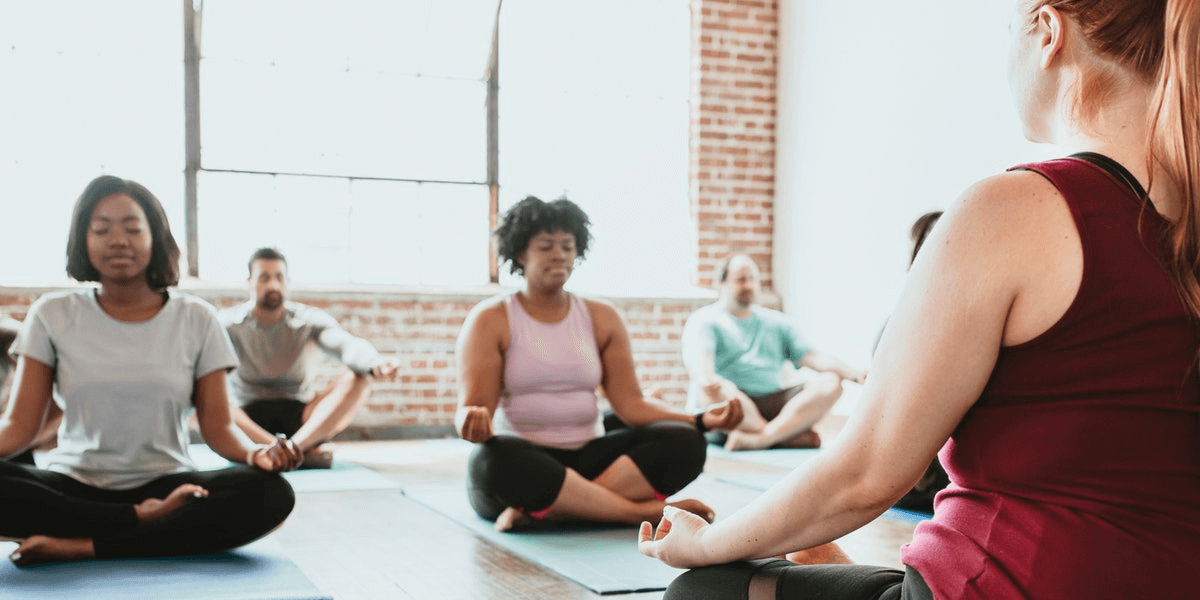
Identifying and manipulating your set point
Are you at your set point right now?
That’s a very good question which unfortunately is not that easy to answer. How much fat protection your body requires (your set point) is the result of a complex interplay of genetics and the lifestyle choices you made today as well as in the past.
You see, at this time, we do not have a tool that will allow us to determine an individual set point. We also don’t have the knowledge on how to manipulate someone’s set point either. As of today, the complexity of the human body and the number of elements involved in managing one’s set point exceed our scientific capacity.
So to be clear, if you see a headline claiming to have the secret trick to lower your set point, like the 21-day set point reset detox, which I just saw recently, that’s 100% diet culture in action. It’s a lie! Don’t buy into it because it’s a scam. It’s just another gimmick from someone who wants to make money from your despair about your body weight.
What we do know is that if we want our body to settle at a natural weight that is effortless and healthy, we must make our brain feel safe. When the brain feels safe, it will send messages to the body that it’s safe. Will you lose weight? We do not know. No one actually knows. But what we know is that health arises or is maintained in a safe physical and psychological environment.
Why dieting is not the answer
When you go on a diet or when you exercise, you create an unsafe condition for your body.
The human body perceives intentional weight loss as a threat. That’s the reason diets don’t work. Your body will adapt to the starvation/deprivation period while you’re dieting and trying to lose weight.
But as soon as you release the pressure of the unsafe condition (i.e. you stop dieting or over-exercising), your body will come right back to your set point. In many cases, it will ensure complete protection from any further threat of weight loss.
So, what can we do? Based on all the current research that I’ve read, I’d like to suggest focusing on creating a relationship of trust and respect with the innate wisdom of your body. Create a safe environment, both psychologically and physically, in which you and your body can thrive in, not just survive.
The best place to get started is to educate and understand what could be perceived by your body as unsafe especially when it comes to food and body weight.
I would encourage you to get started by listening to episode 214 of the Going Beyond The Food podcast right up to the part where I recommend a tool to help you determine what could be impacting your set point.
Here’s a free checklist and resource to help you understand the set point theory and get started on your journey into a more trusting and respectful relationship with your body.
How to get started with Intuitive Eating
In all the years that I’ve been helping women as a clinical nutritionist, I’ve found that intuitive eating is the best starting point for developing a healthy relationship with food and one’s body. I’ve also made a part of my life. The women I’ve helped, as well as I, can attest that it’s positively life-changing!
I invite you to start your own intuitive eating journey and experience the same benefits that we’ve enjoyed from it. I have put together some resources that will help you get a good head start.
First, you can download my Get Started with Intuitive Eating Guide for free. It will teach you a 3-step process that will help you get started with intuitive eating right away.
Also, you can listen to the intuitive eating podcast episodes. Here, I share my best tips and interview experts who give their valuable insights on eating intuitively.
What is Diet Culture and 4 Steps to Navigate It
If you’ve been following me on social media or reading my blog, you certainly have come across the term “diet culture.” I’ve mentioned it many times before. But what is diet culture? How does it impact your life? And what should you do about it?
This article tackles this topic and teaches you how to opt-out of it. Also, I offer some resources that will help you start a new life outside of this oppressive belief system. Here’s what you’re going to learn from this blog post:
How to navigate the diet culture
Diet culture educational resources
Now, let’s begin exploring the diet culture so you can take your first steps to freedom!
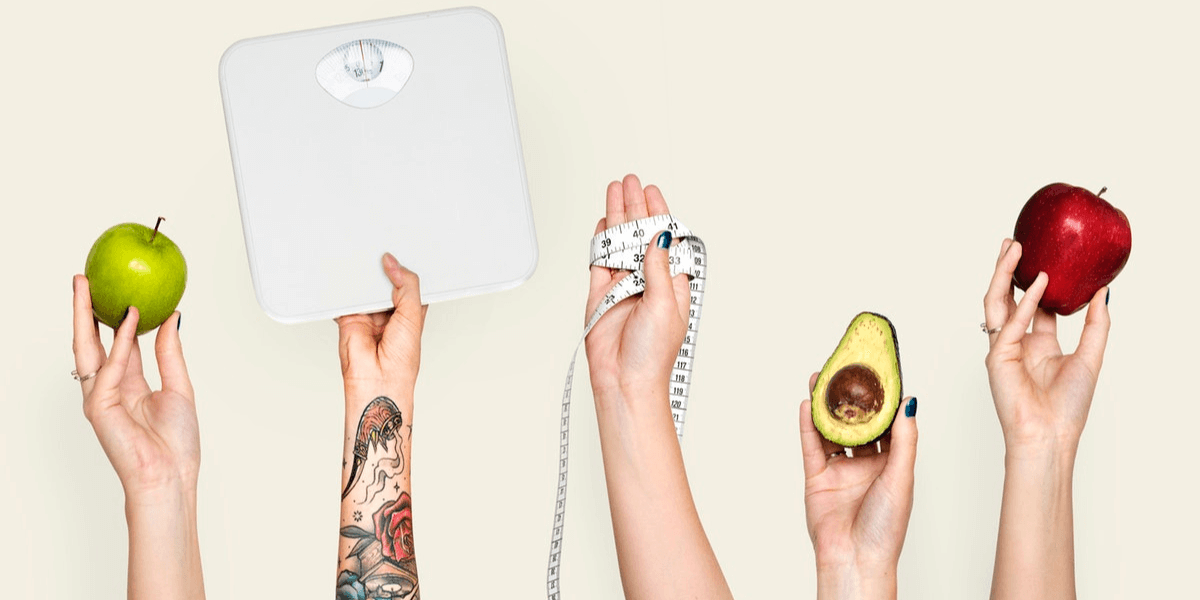
What is diet culture?
From the sound of it, you might think the term “diet culture” refers to a group of people who are on a diet. But it actually has a different meaning.
Christy Harrison, a colleague of mine, has the best diet culture definition. She defines it as a system of belief that worships thinness and equates it to health and moral virtue. It’s now prevalent in our society and oppresses women from all over the world!
How does this impact your life?
This means you may have spent your entire life thinking that you’re broken just because you don’t look like the impossibly thin ideal.
That’s just one angle. You can also look at the diet culture from three other angles:
The second angle is that it promotes weight loss as a means of attaining higher status. It makes you feel compelled, almost obligated, to spend massive amounts of time, energy, and resources, trying to shrink your body so you can fit into this thin ideal. Now, research is very clear that the dieting model has a 95 percent failure rate, so it might as well be an exercise in futility.
The next angle is it demonizes certain ways of eating while elevating others. It forces you to be hyper-vigilant about your eating, shames you for making certain food choices, and distracts you from the pleasure of eating as well as from your purpose and power.
Last but not least, it oppresses people who don’t match the supposed picture of health or the thin ideal. This affects us most particularly as women, although it’s starting to affect men.
My 25-year journey inside diet culture
As you probably know, I used to have a love-hate relationship with food and my body. A 25-year career in dieting left me obsessed, frustrated and confused about food. I was also at a loss on how to take care of my body.
Dieting was stealing my life and at 39. Then I decided that I had enough… I finally chose to take my power back and free myself from dieting and body shaming. The Going Beyond The Food Method™️ was born out of my personal journey.
Now, as a health professional, I’ve helped hundreds of women work their way out of this oppressive culture and develop a healthier relationship with food using intuitive eating and body neutrality.
Is diet culture affecting you, too? I invite you to consider its impact on your life. Take our quick self-assessment tool we created to help women determine if intuitive eating is the right solution for them.
How to navigate the diet culture
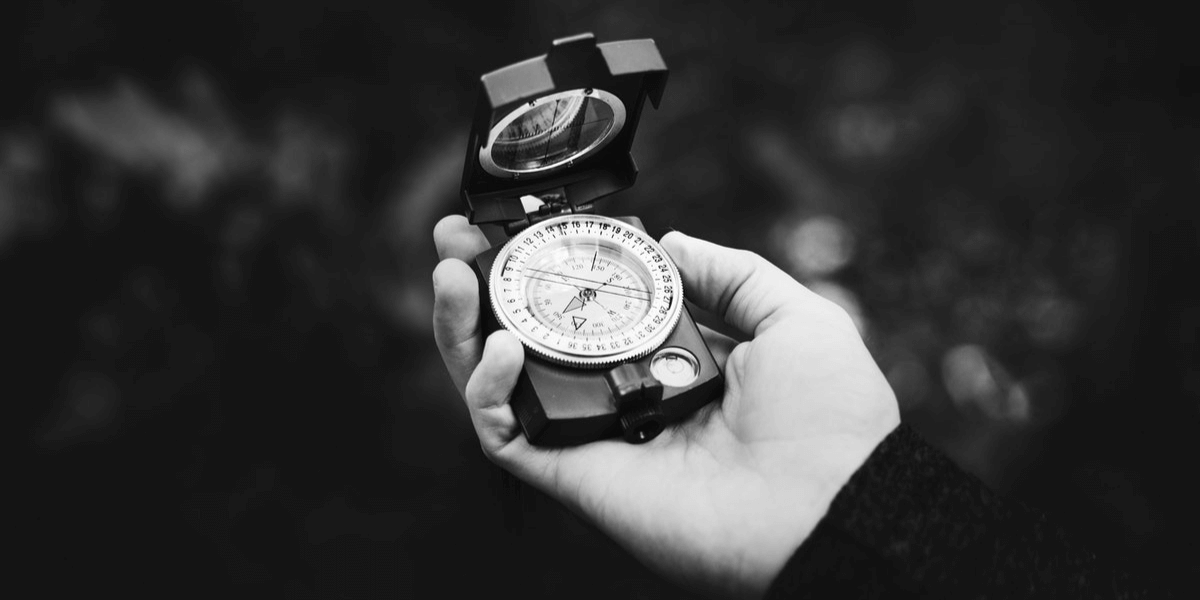
I invite you, and honestly all women, to become diet culture dropouts! Below are the four steps you need to take in your journey towards freedom:
Understand that you have a choice.
Now is the best time to be a woman. Unlike the generations before us, we’re liberated and empowered! You have to understand that diet culture is a tool that the patriarchy uses to keep us from being in our power. It keeps us busy minding our calories and macros. It induces guilt and so we feel inclined to punish ourselves when we fail.
Whether you want to stay in the diet culture and be oppressed or to break away from it and change your life, it’s totally up to you. But you should know that you have the power to make that choice.
Take responsibility.
With great power comes great responsibility. Now, that sounds like a quote from a Spiderman movie, but as an empowered woman, you are responsible for your life. No one else is!
Now, you can be the victim of diet culture and drown yourself in self-pity and helplessness. Or you can say, “Screw this! I’m going to take responsibility, and I’m going to work myself out of it and change my life.”
It’s your call.
Educate yourself.
Read books and blogs. Listen to podcasts. Consume content that supports the choice that you’ve made for yourself. Be on guard against the content that might suck you right back into the diet culture. As I’ve said before, beware of diet culture programs disguised as wellness practices.
I’ve made it my personal mission to empower women by educating them so they don’t allow themselves to be oppressed. And so, I have put together some resources for you.
We have anti-diet culture podcast episodes on the Going Beyond the Food Show, where I interview health professionals. I invite you to listen as they share their expert insights and opinions on our relationship with our bodies and with food.
You can also read our anti-diet culture blog posts on this website. Here, we go deep into the research and the studies around diet culture as well as dieting and its impact on health.
If you’re looking for an anti-diet culture book, I recommend Health At Every Size by Linda Bacon, PhD. Dr. Bacon does research around health and dieting. It’s a book that gave me a lot of “aha moments” and subsequently changed my life.
Find a framework to help you reconstruct your relationship with food and with your body.
You’re going to shift from the way of life that diet culture has taught you to a more empowering way of thinking and doing things. This means there’s a lot for you to unlearn and relearn, so you’re going to need all the support you can get.
The Going Beyond The Food Method™️ is a 5-step strategic process to help women move out of diet mentality and into self-care. Our 5 pillars are: mindset, emotional wellness, mindfulness, body neutrality and intuitive eating.
Diet culture educational resources

As a clinical nutritionist, I’ve found that intuitive eating is the most effective tool for developing a healthy relationship with food and your body. Intuitive eating teaches you to tap into your innate hunger and fullness cues. It requires you to relearn how to engage with food without restriction and without labeling food as “good” or “bad.”
The trauma around body image is more powerful than the one around food. What I have found over the years is that when we work through our relationship with food, it’s a lot easier and faster to heal body image issues.
We offer a variety of programs that will help you should you decide to opt-out of diet culture:
You can access all of our services on our work with us page. We have a number of programs and service levels enabling us to serve most women:
Free Resources and Masterclasses: Get started and get to know us better!
Private coaching with Stephanie and her team Stephanie and her team of Certified Non-Diet Coaches are waiting to support you in a one-to-one setting with an individualized plan.
Undiet Your Life group coaching program is for women to learn how to eat intuitively, become body neutral, and learn self-coaching at their own pace while being supported in a group setting by Stephanie and her team of Certified Non-Diet Coaches.
Non-Diet Coaching Certification for professionals ready to integrate the Going Beyond The Food Method™️ in their practice and for women wanting to become Certified Coach and build a business coaching other women beyond the food.
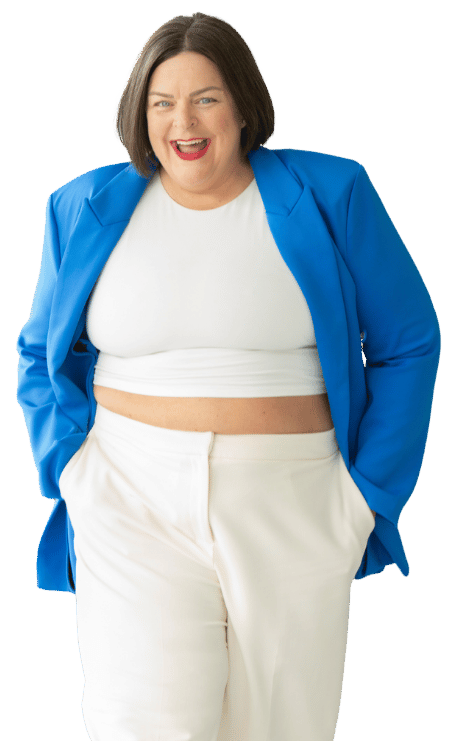
Welcome!
I’m Stephanie Dodier
I am a non-diet nutritionist, educator, and feminist business leader challenging everything we’ve been taught about food, health, and coaching.
I help health professionals confidently coach food and body without co-opting diet culture.
Join me in leading the health coaching revolution!
Ready? Let’s do this!
FREE ASSESSMENT TOOL
Let’s start coaching client with confidence!
Use this free intake forms kit and evaluate your client with food, body image and mindset and set the foundation for transformative coaching relationships, rooted in trust and client empowerment.

